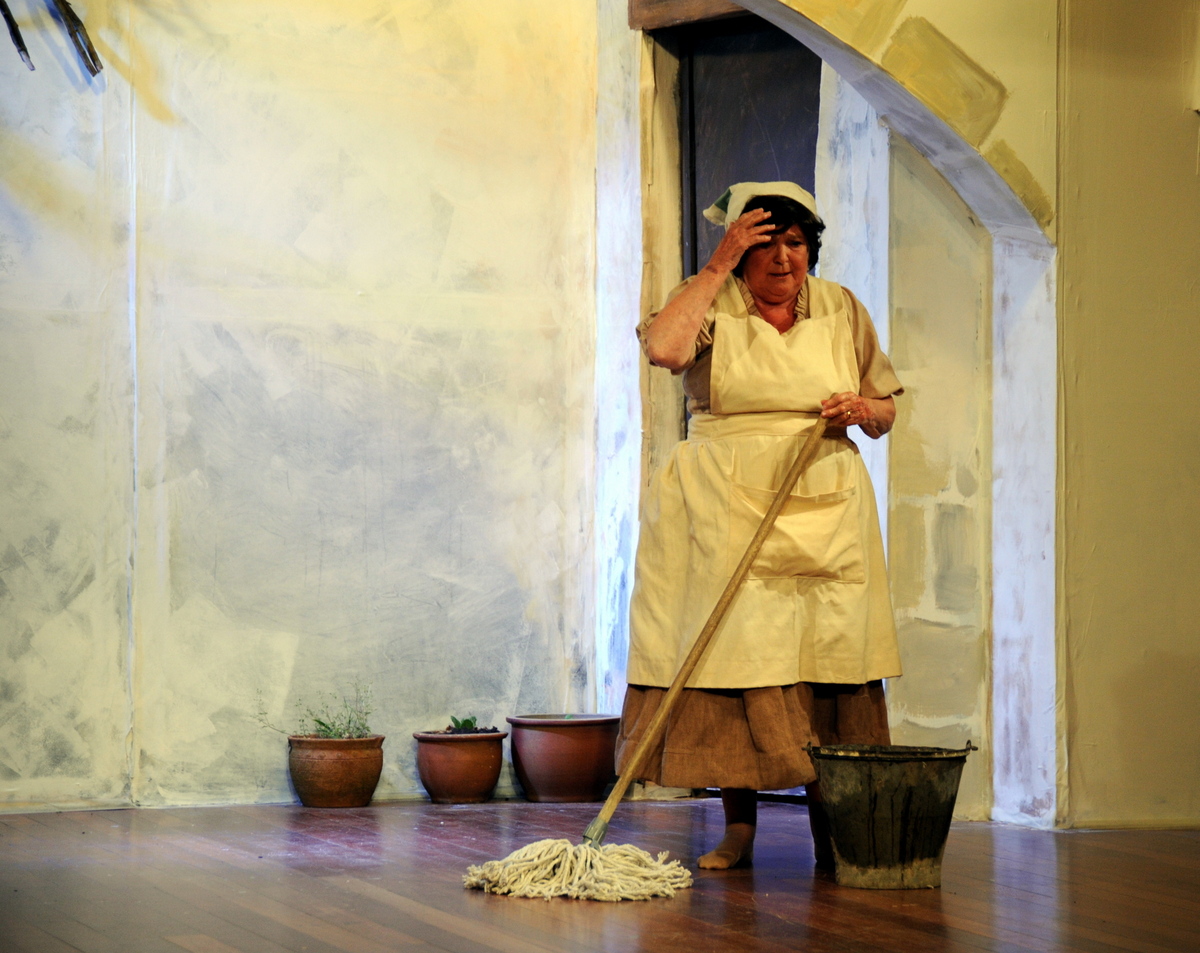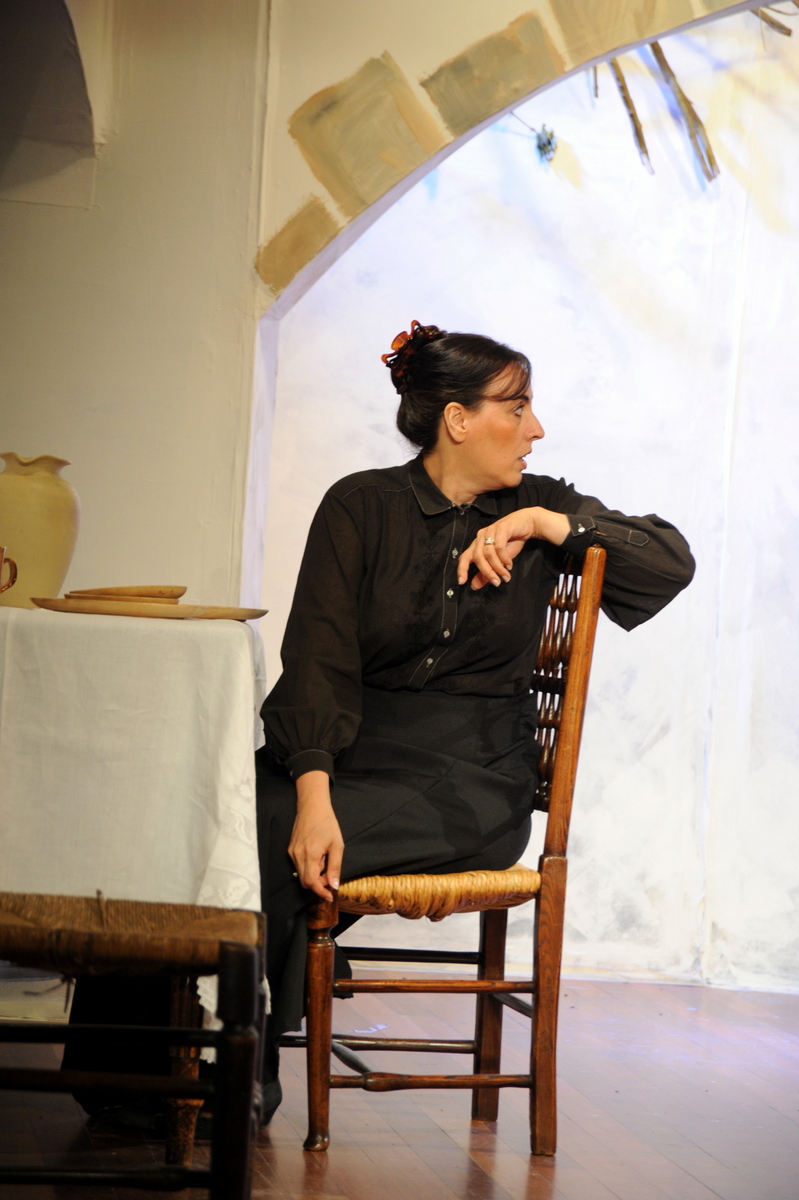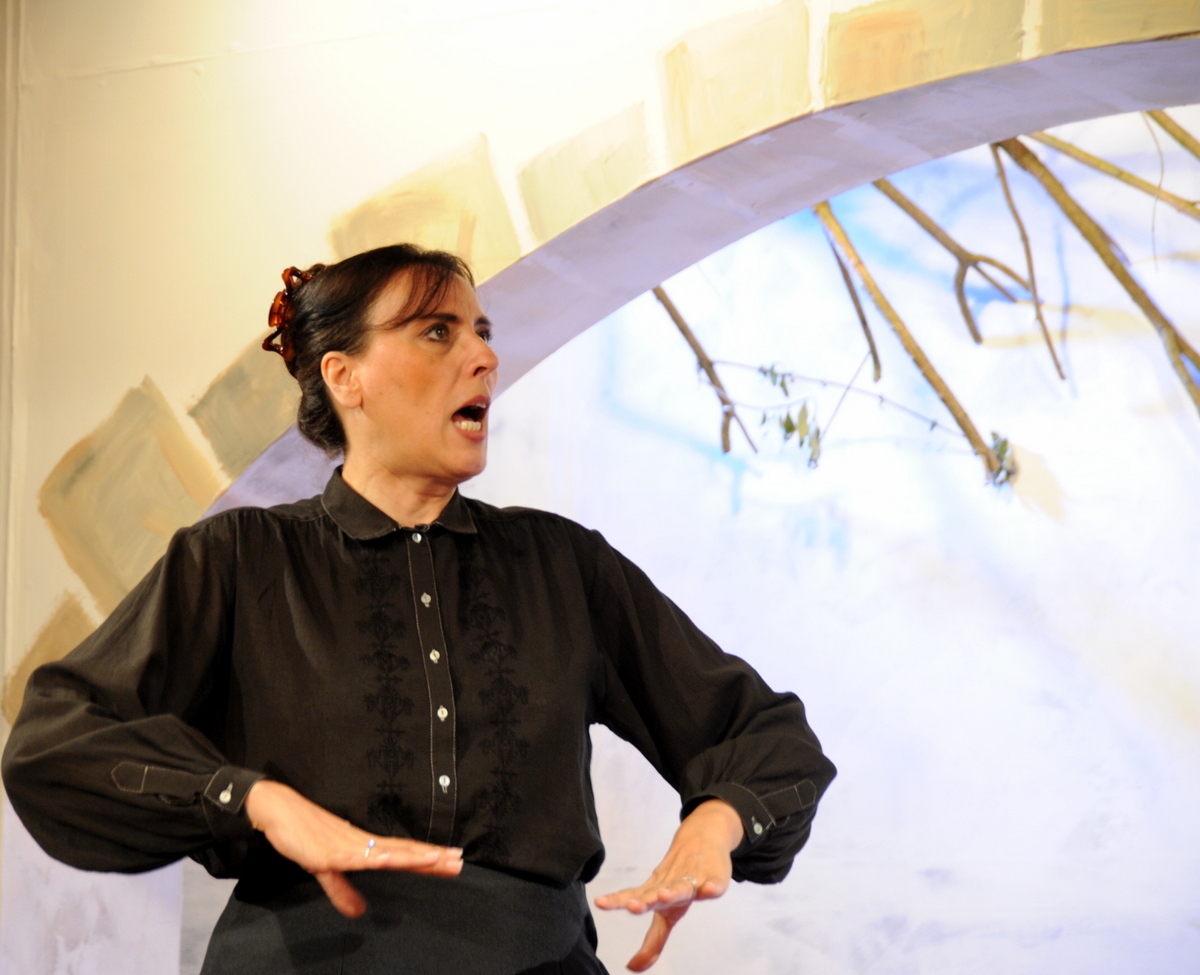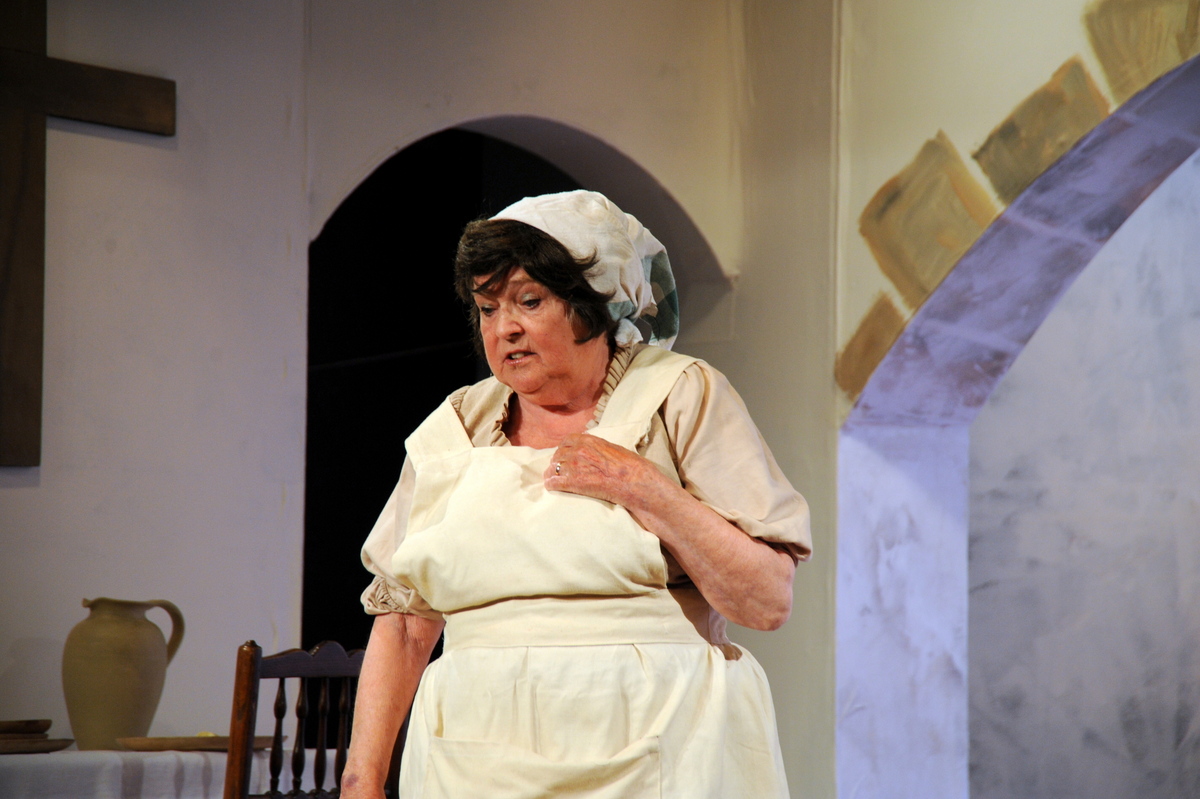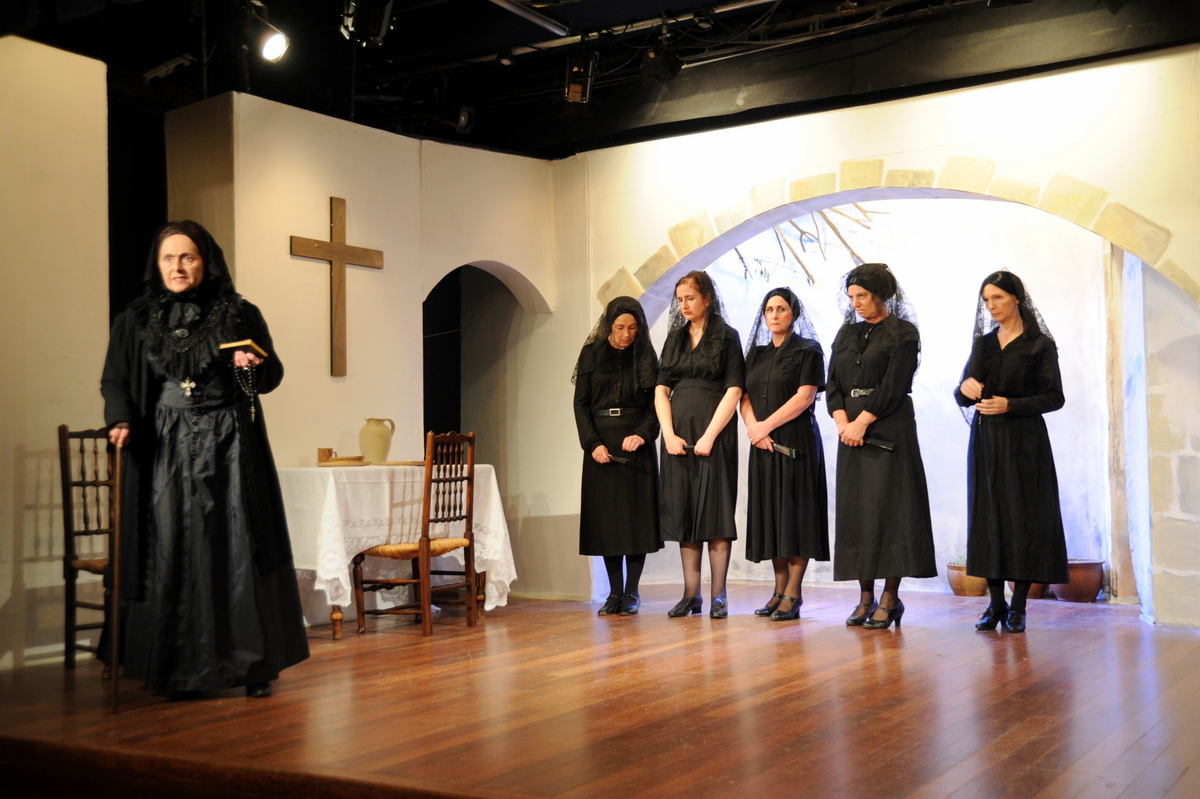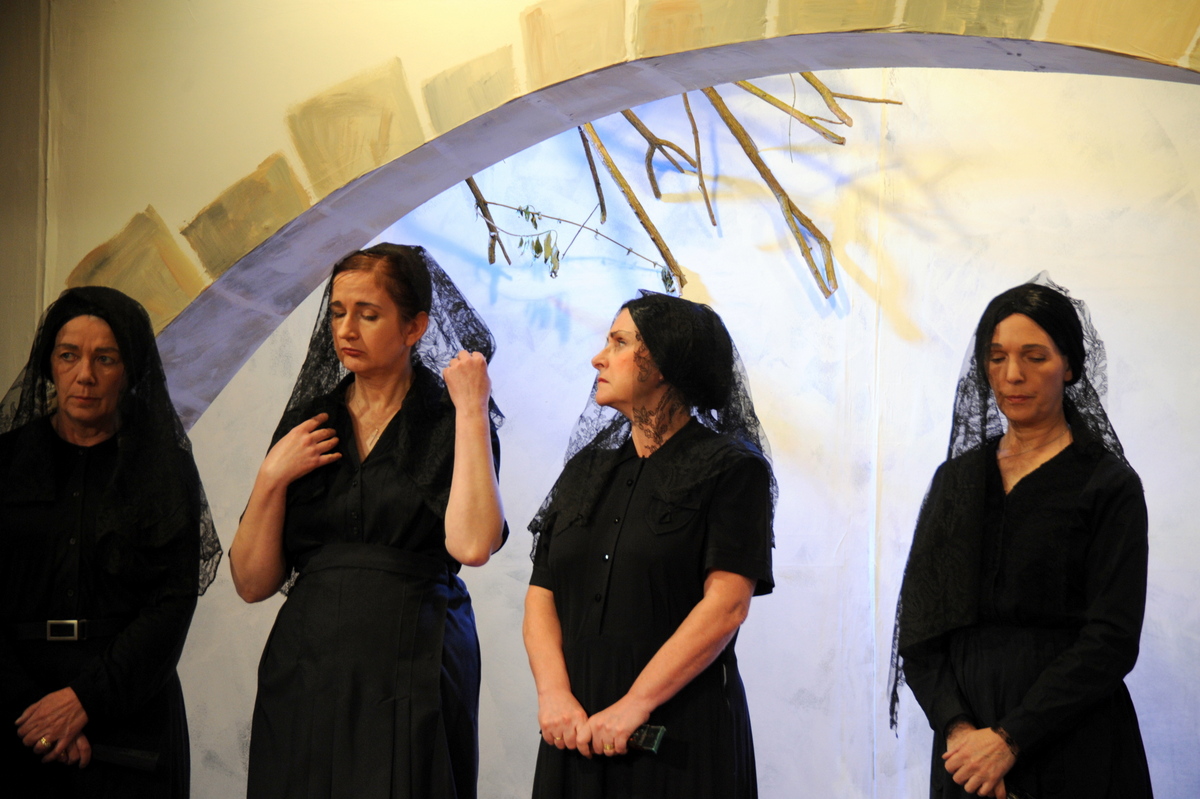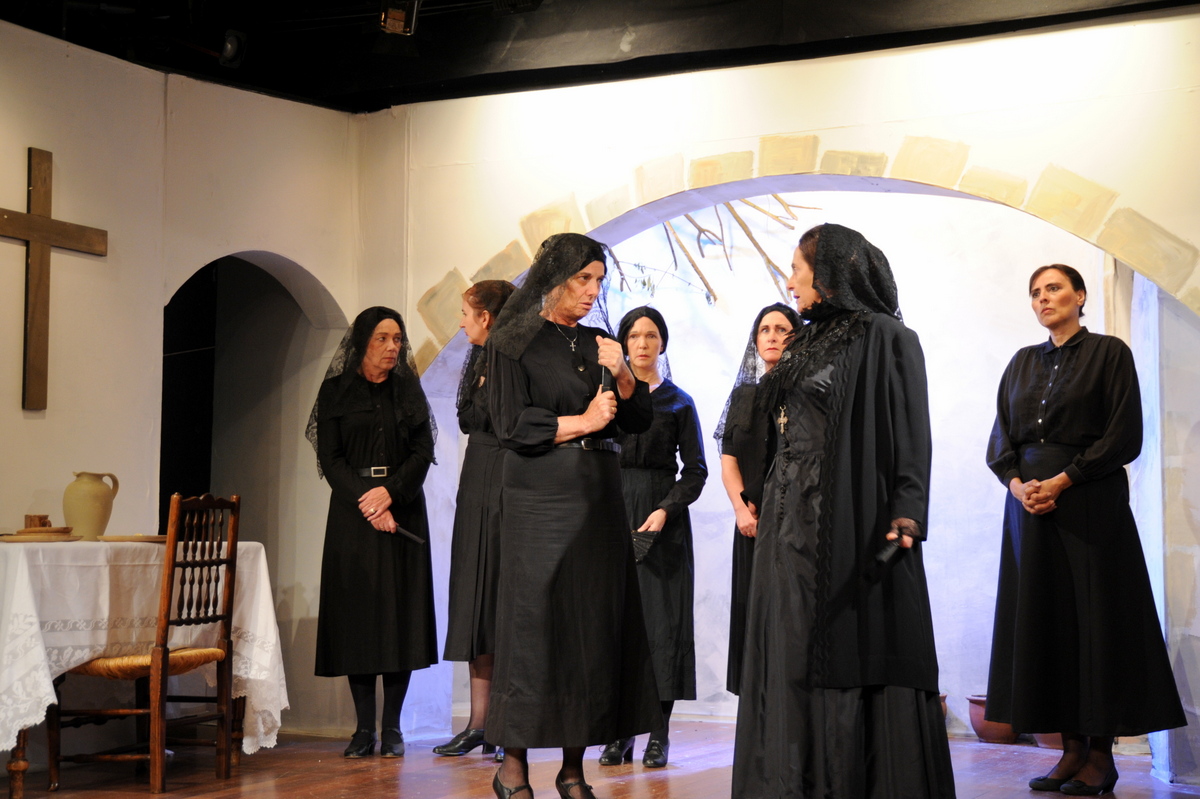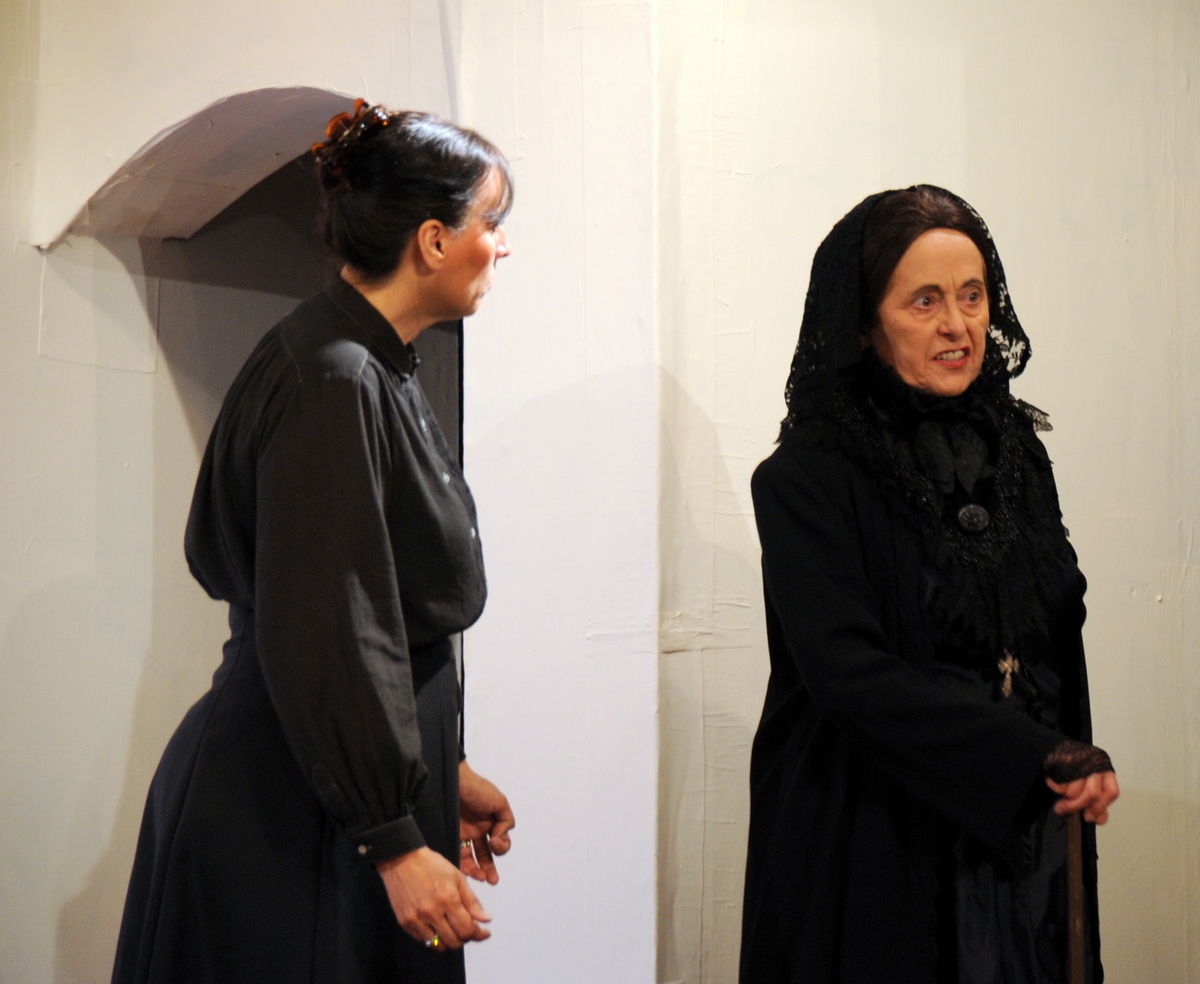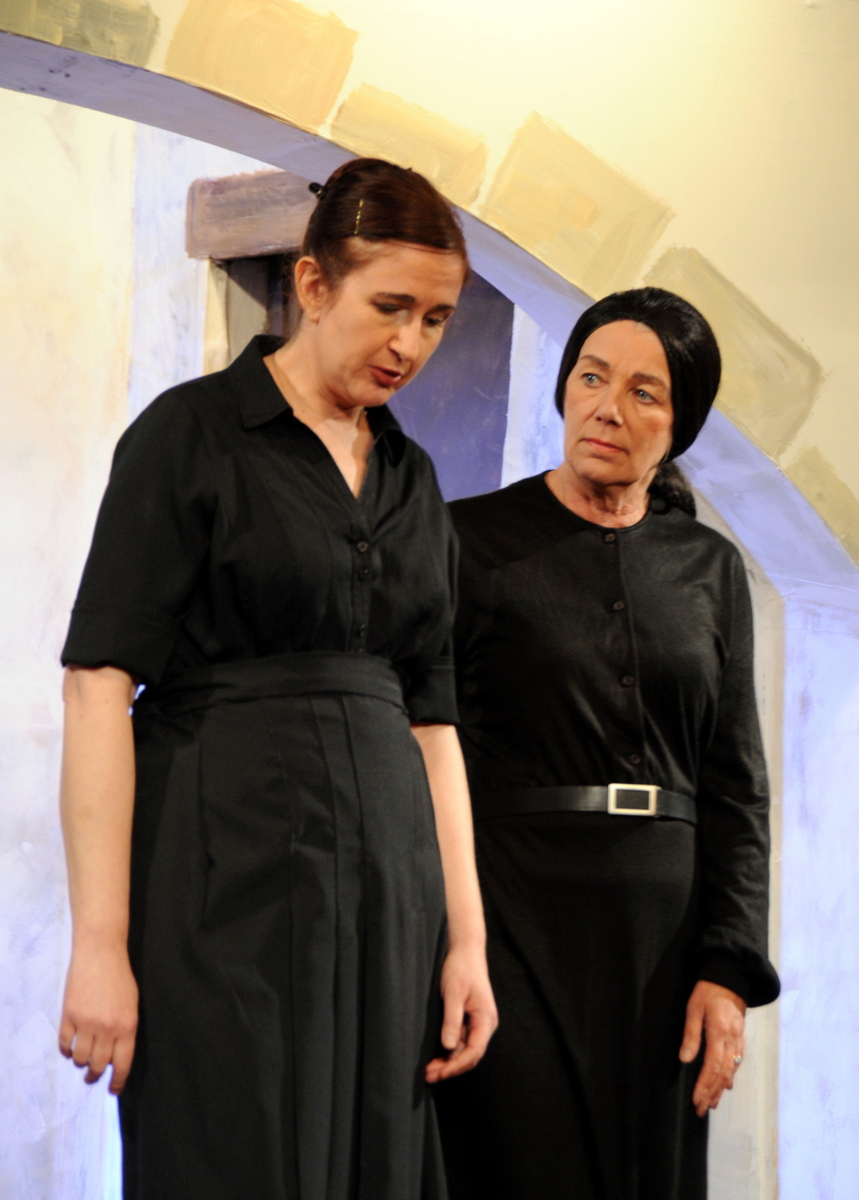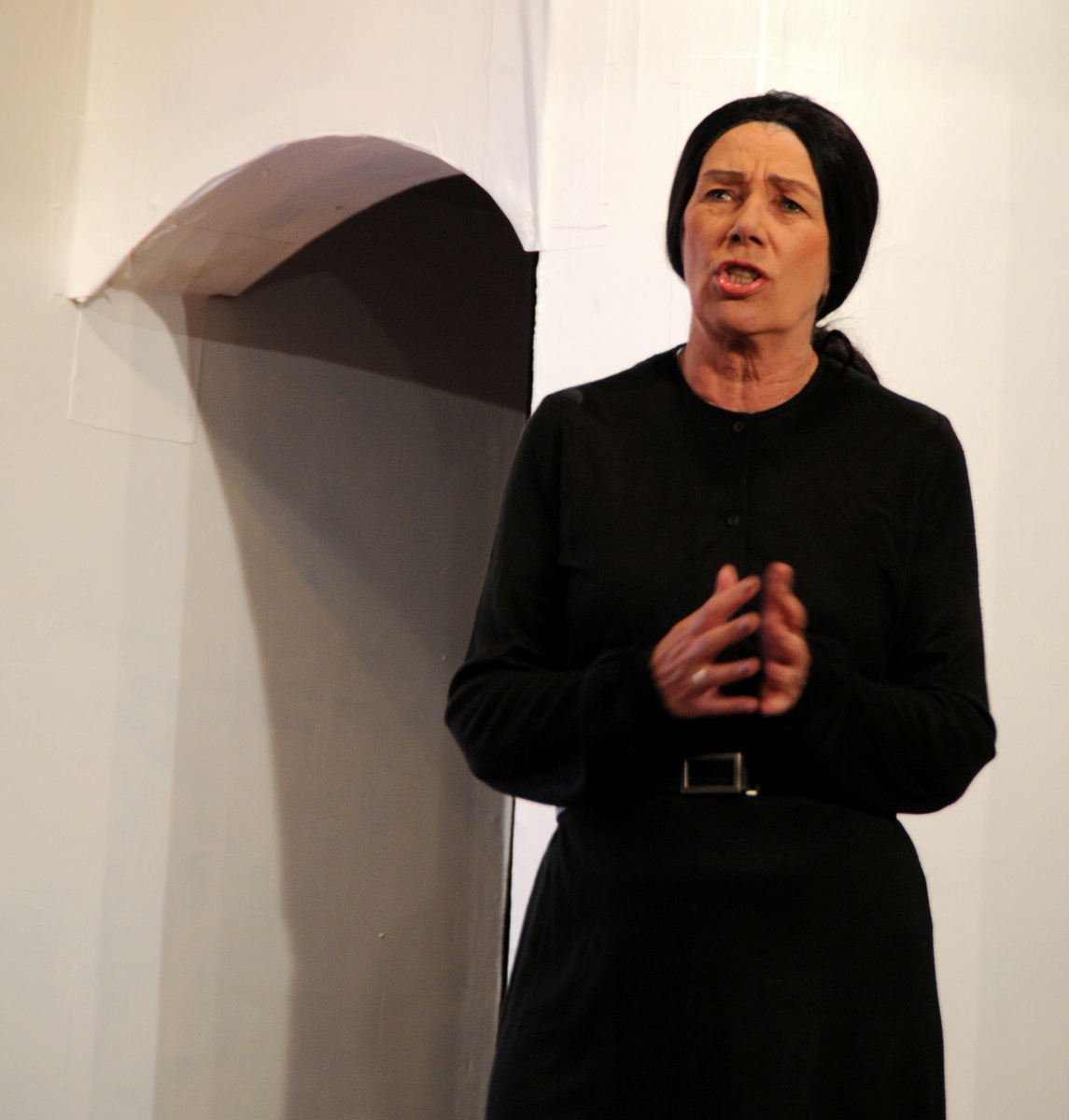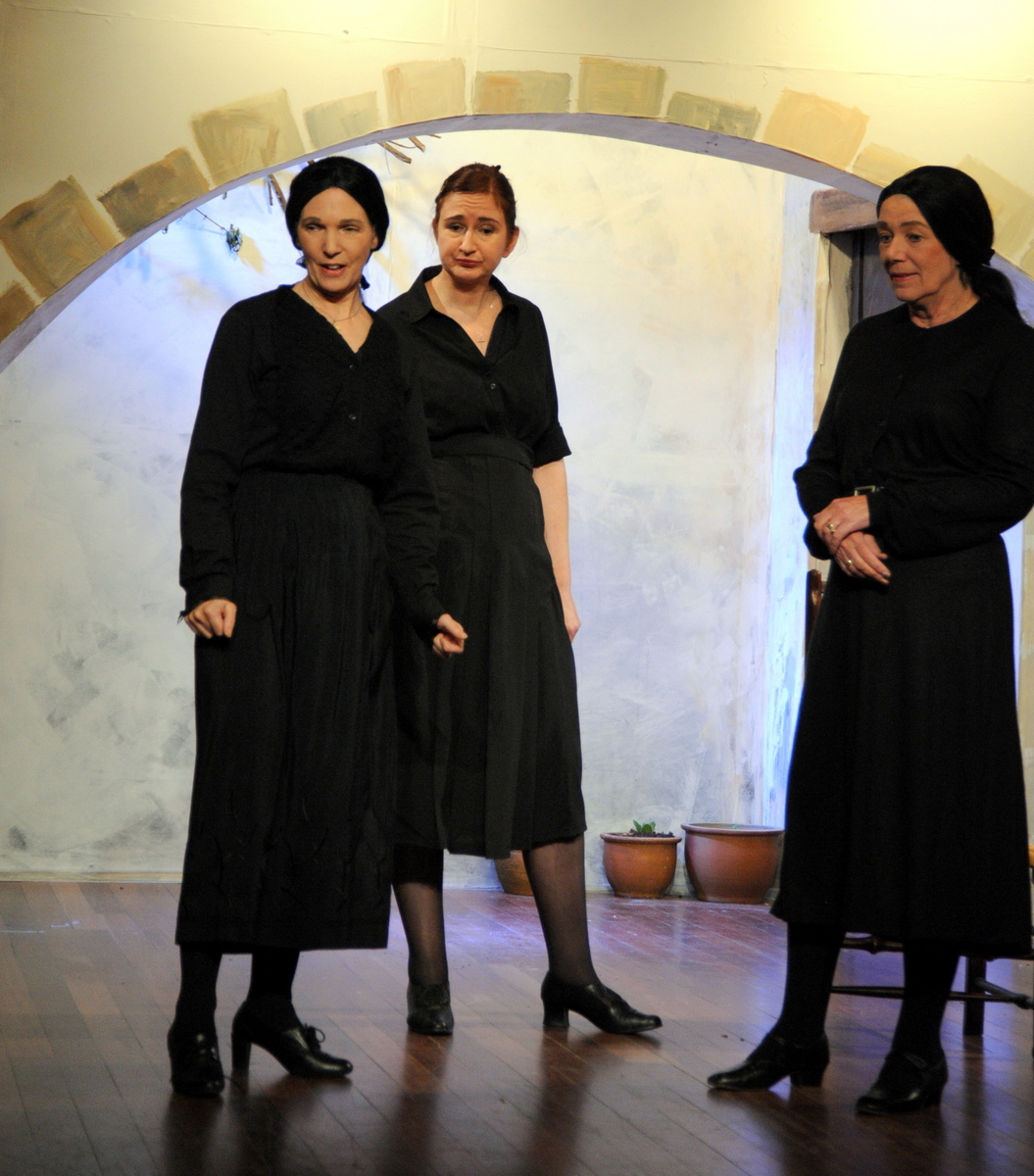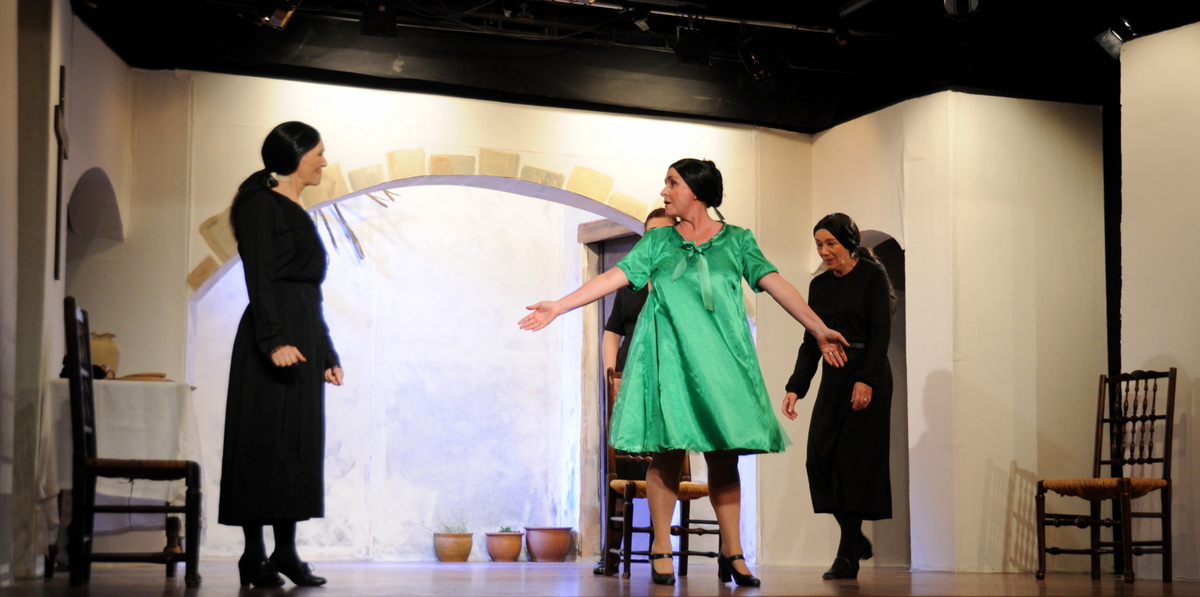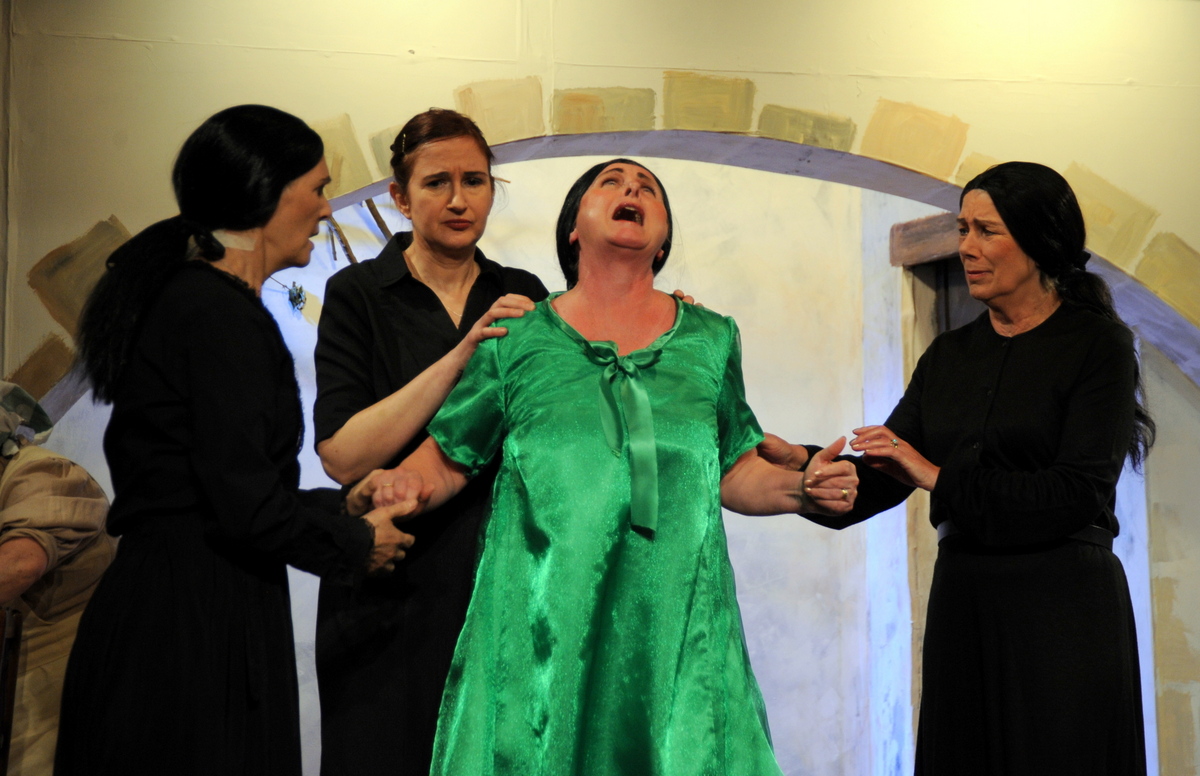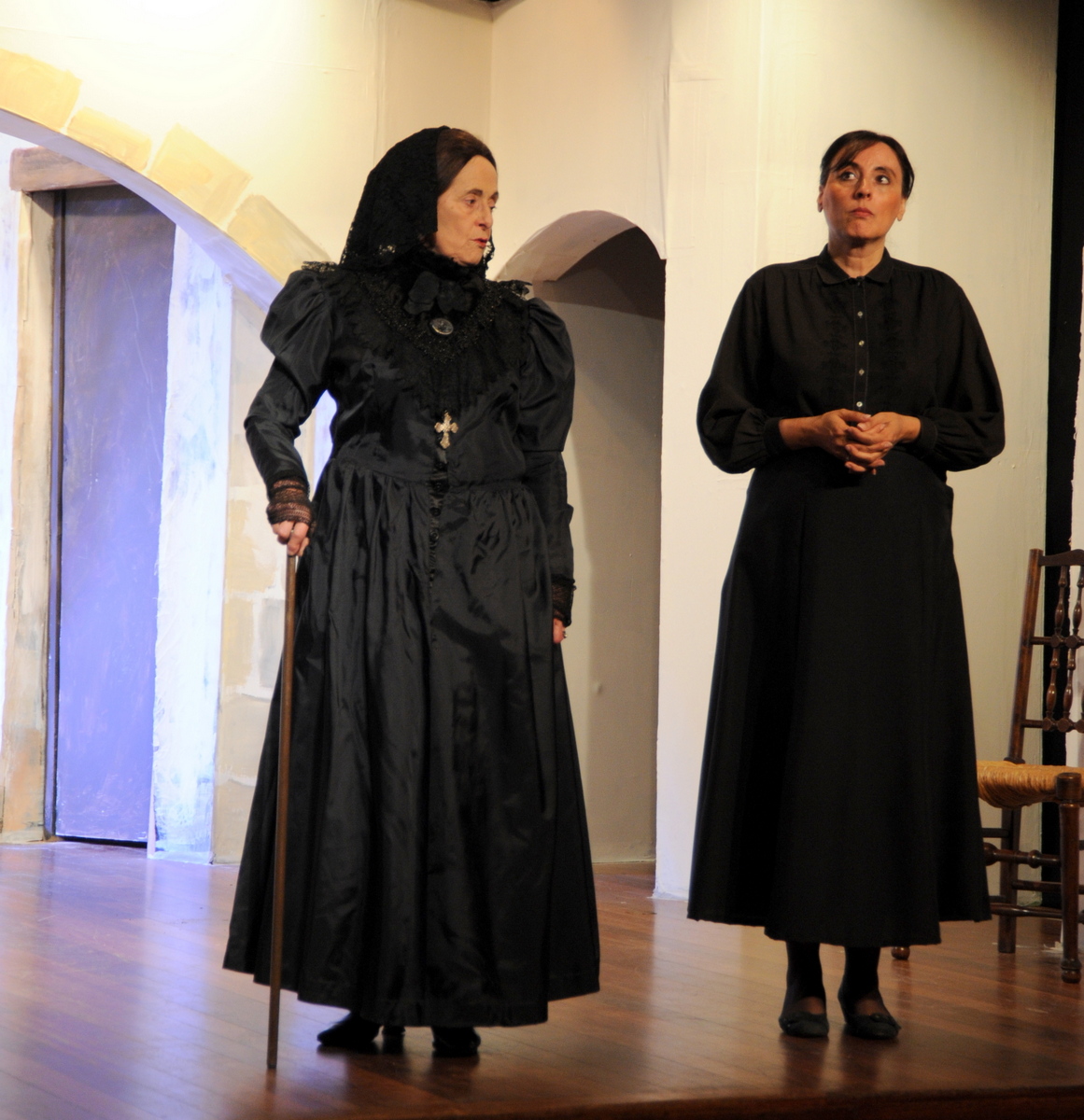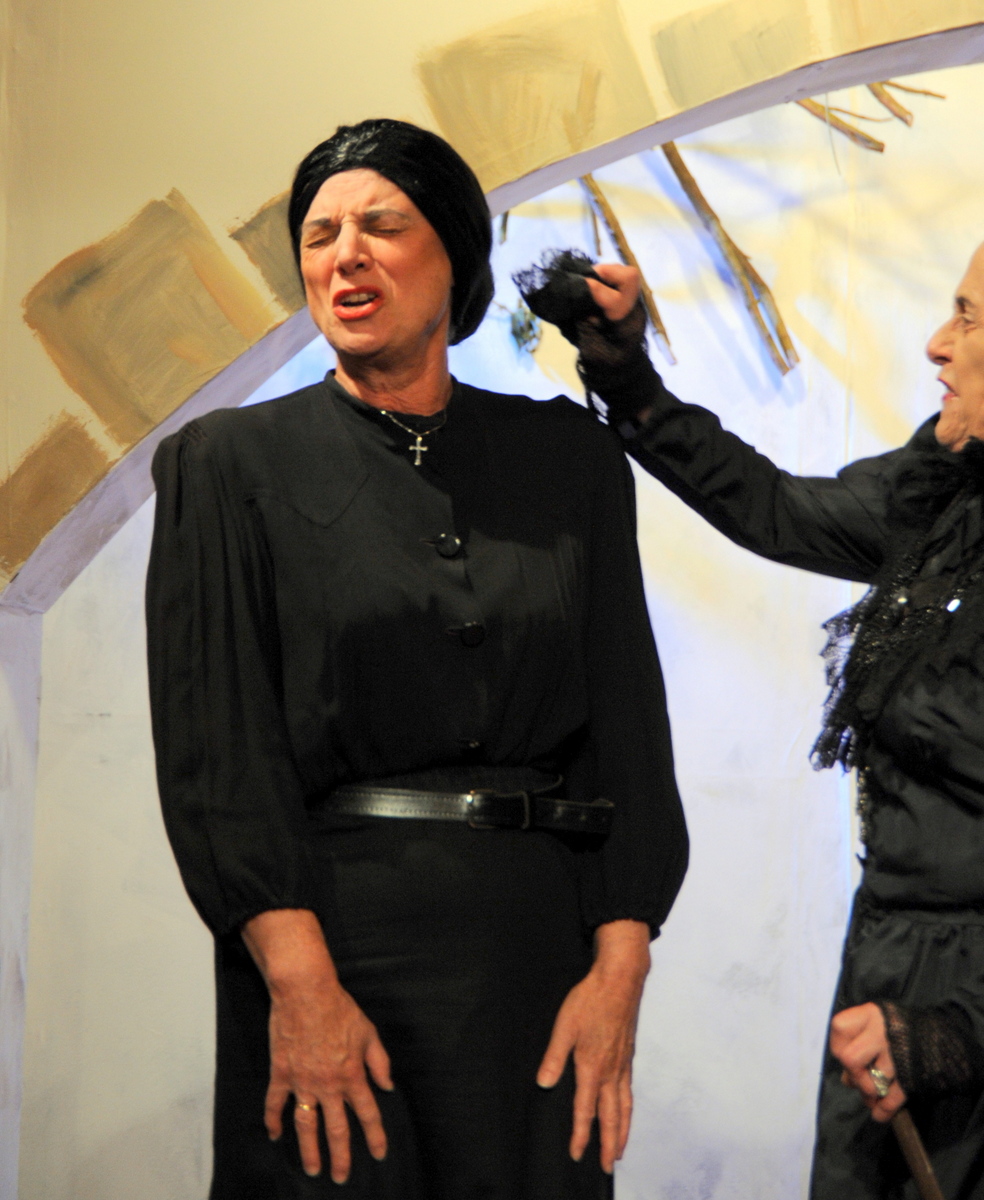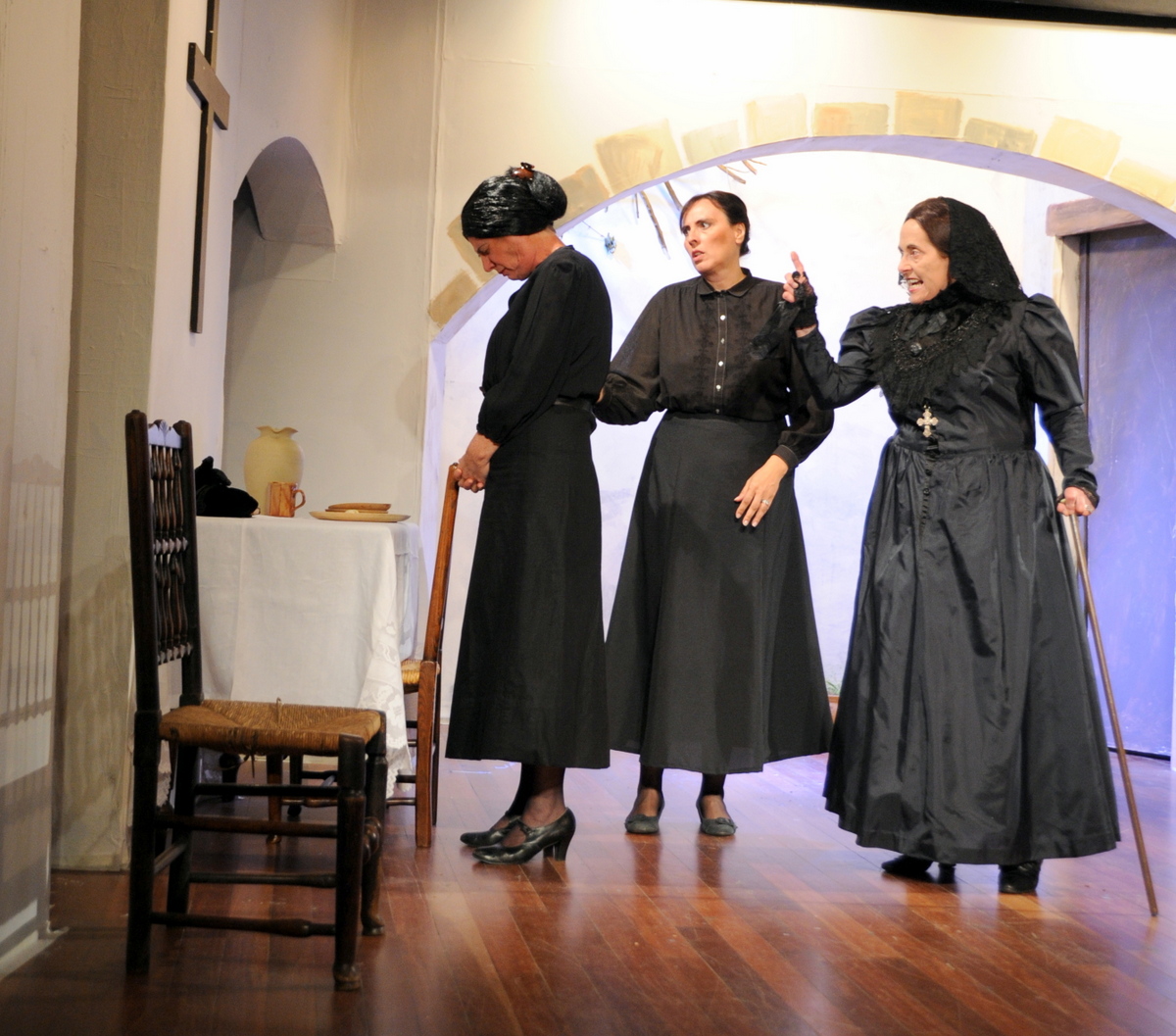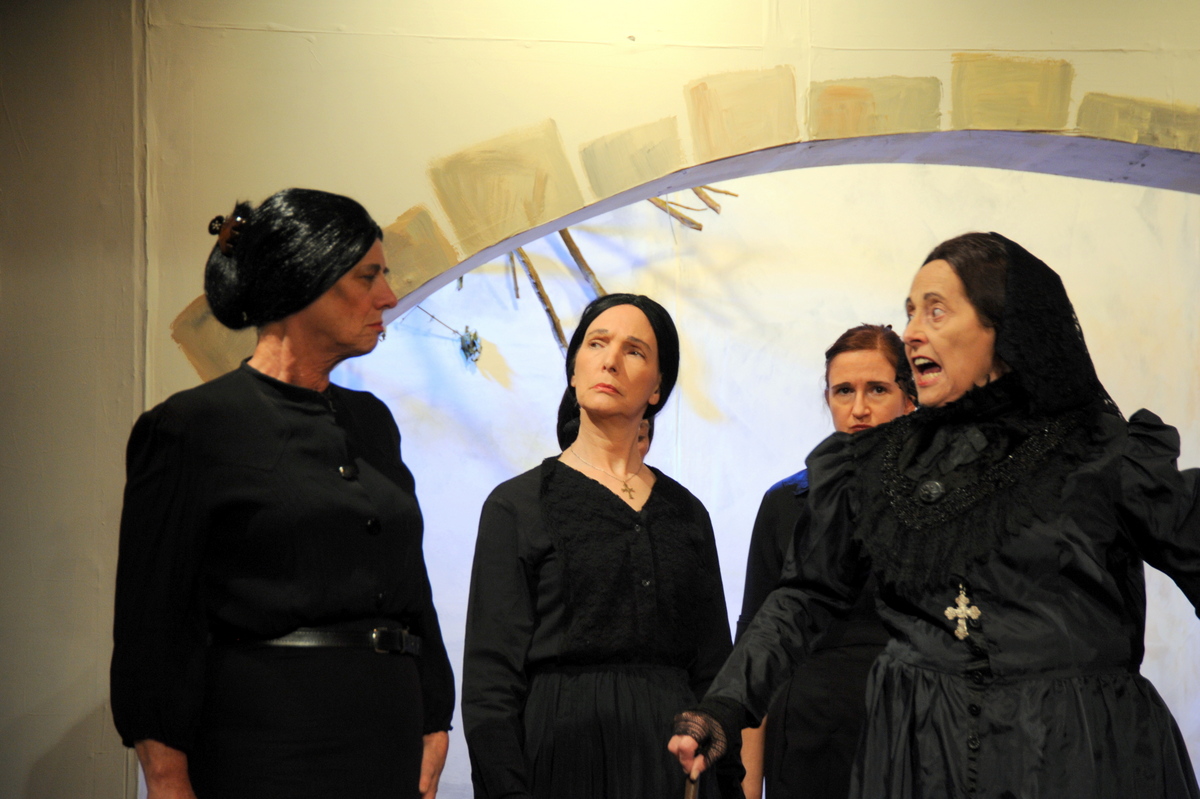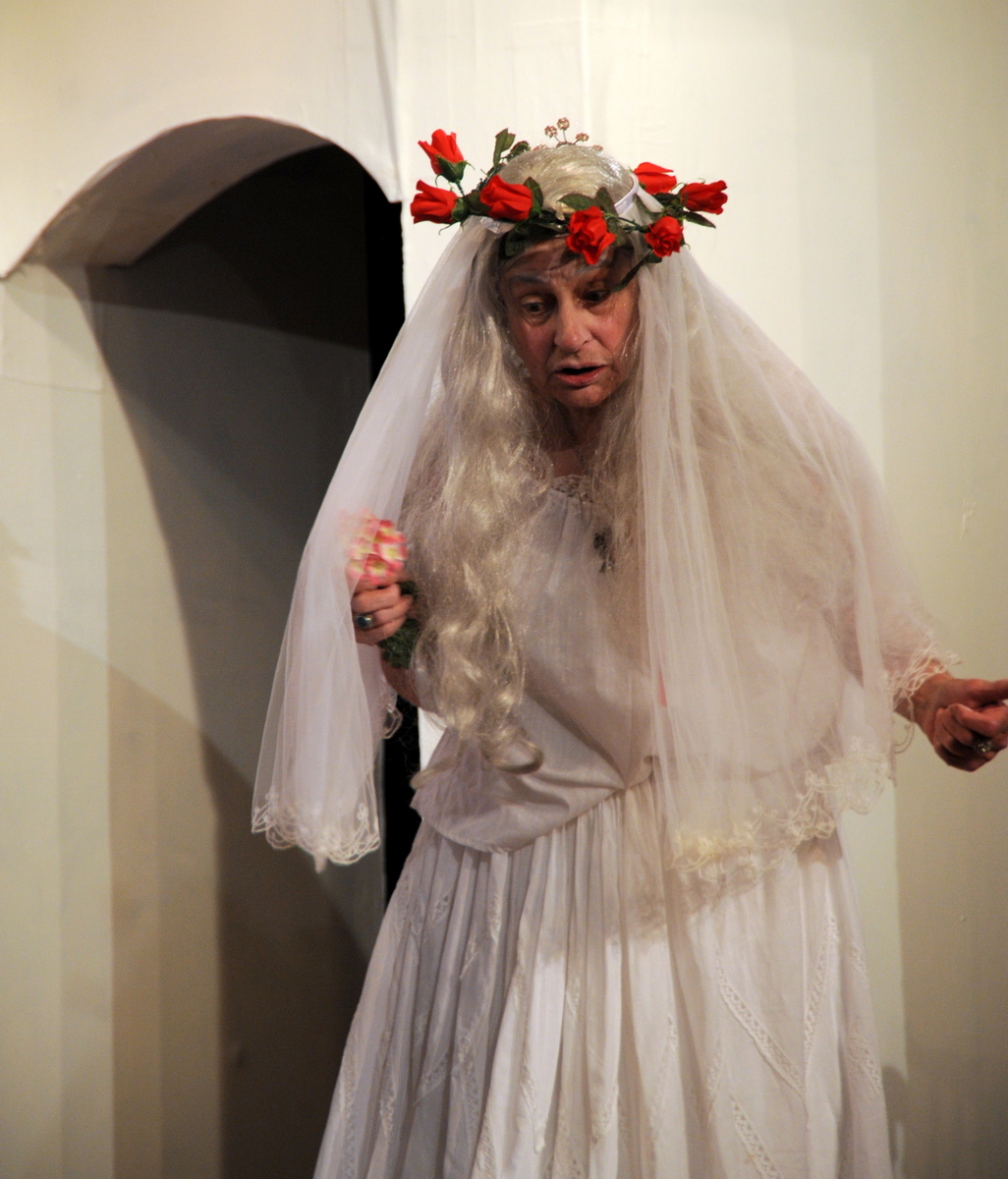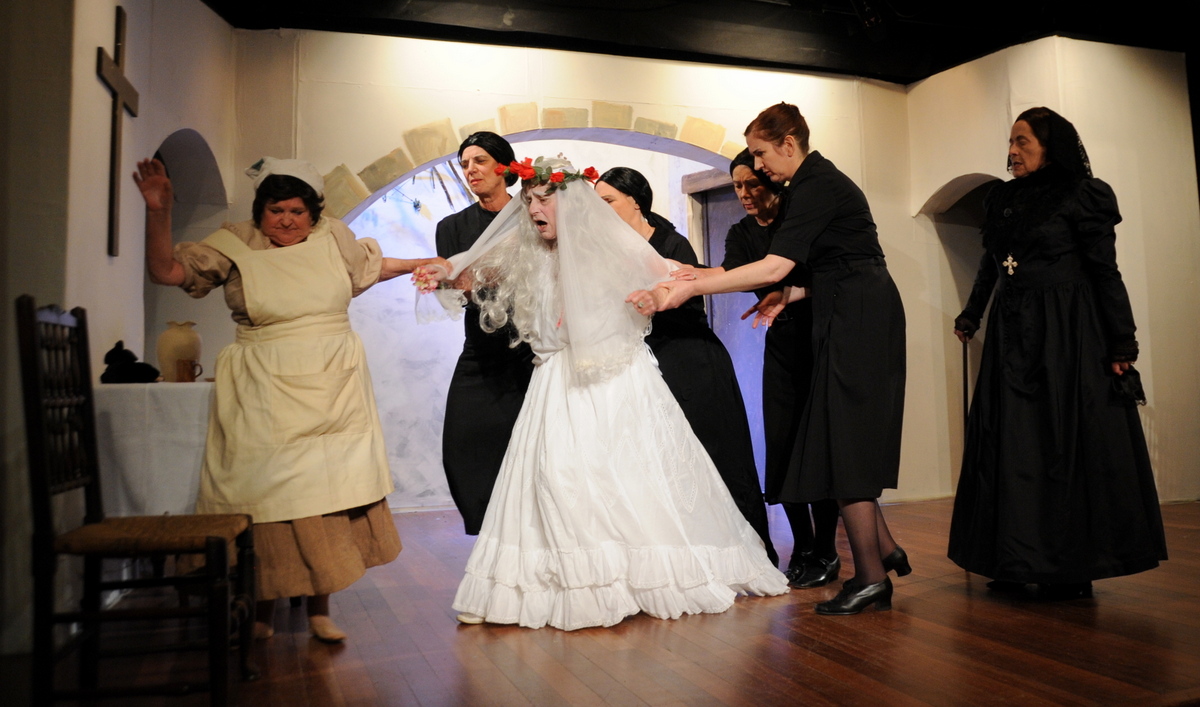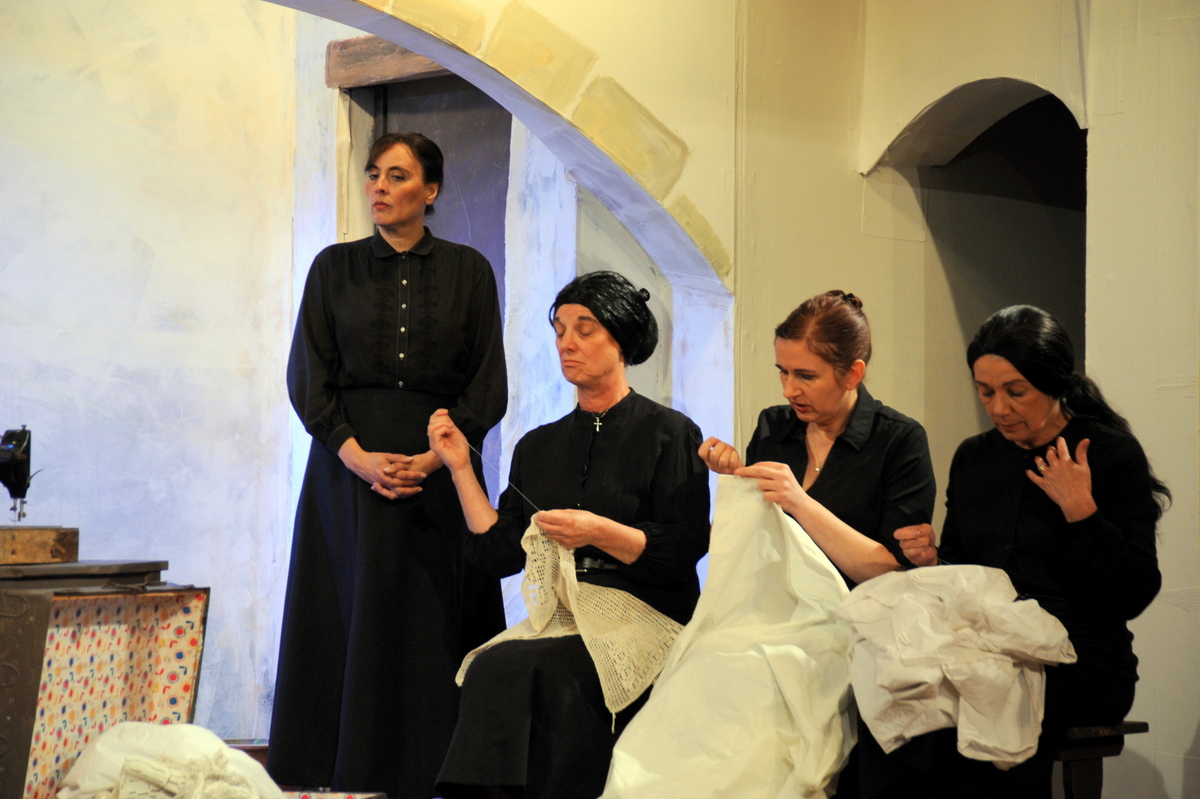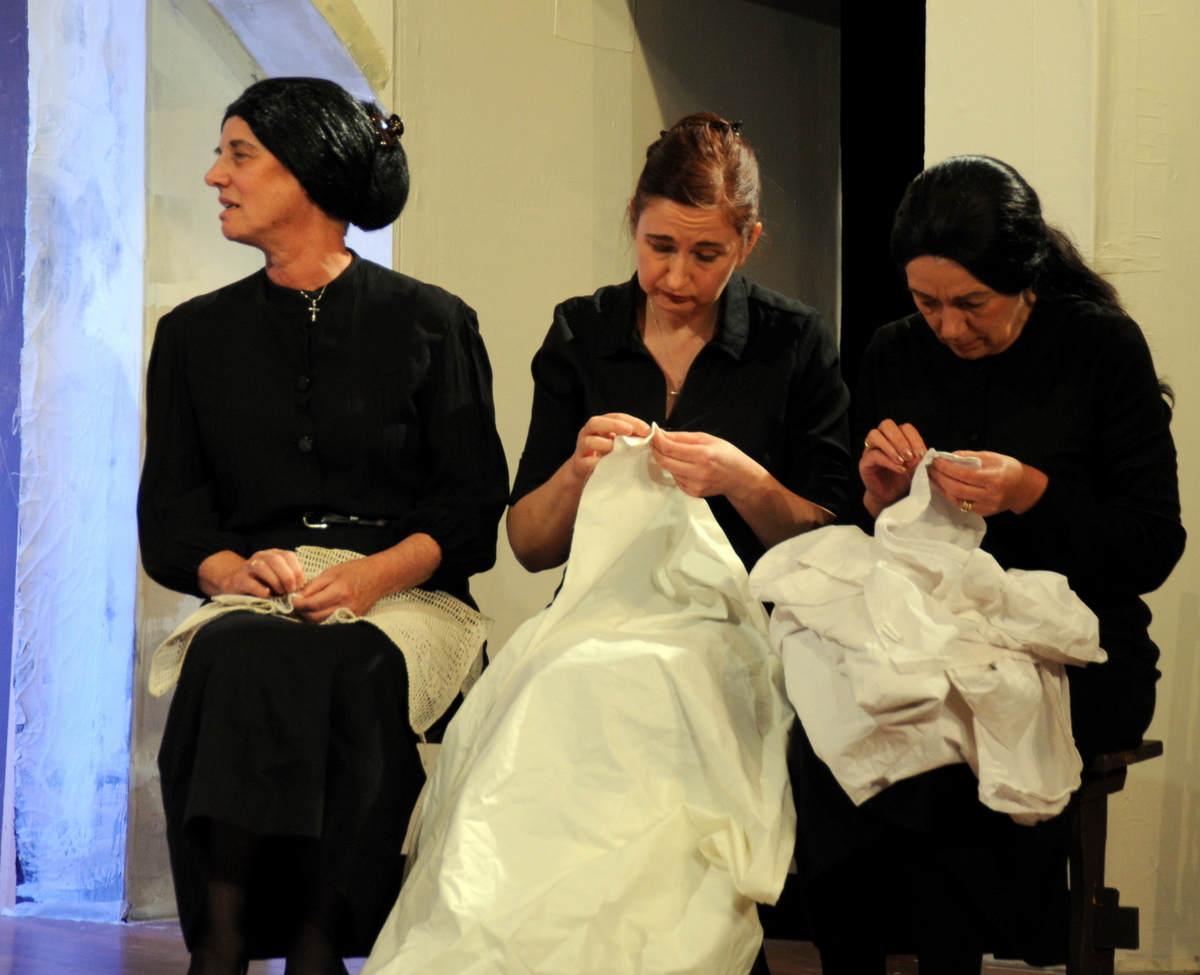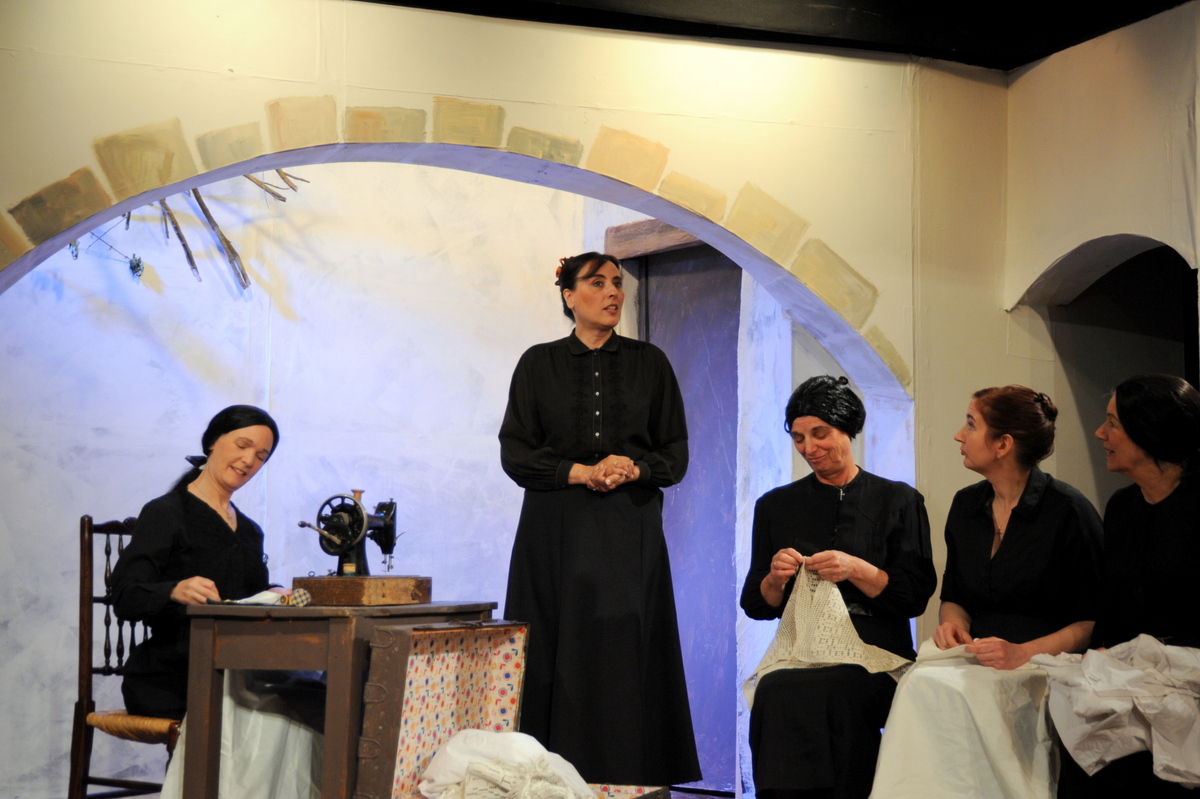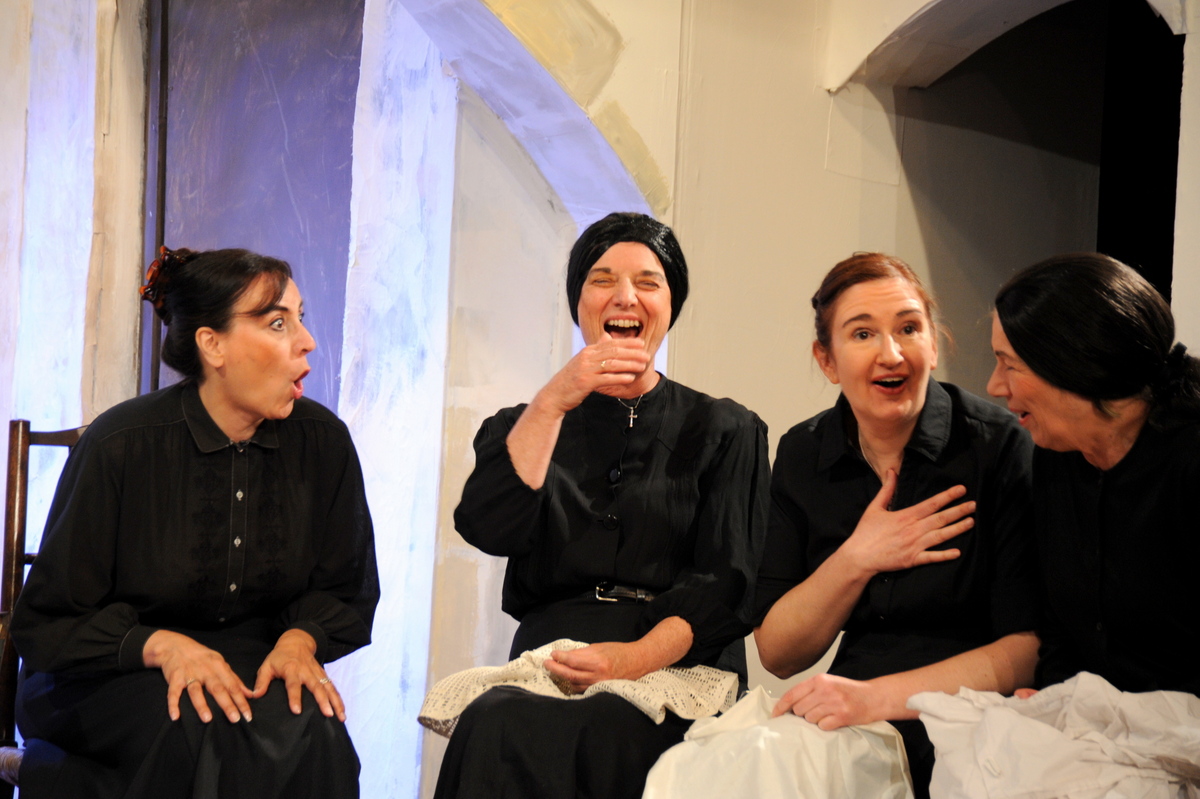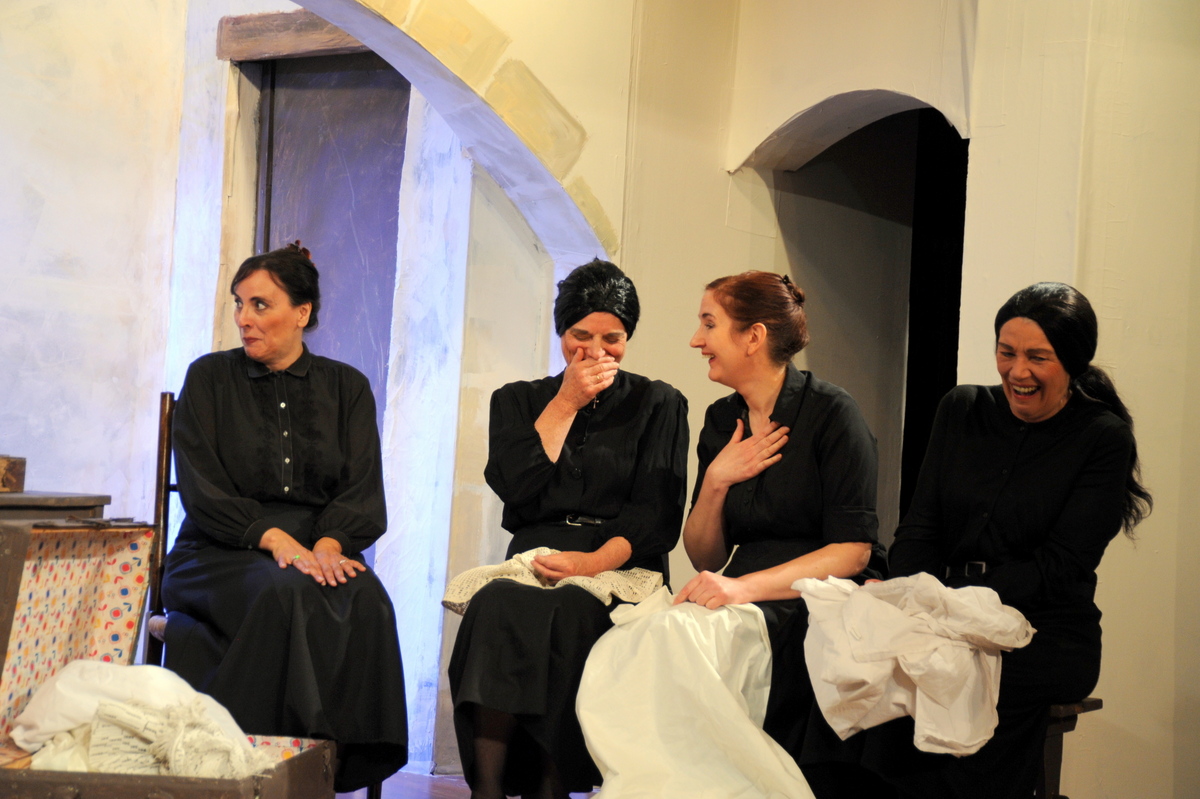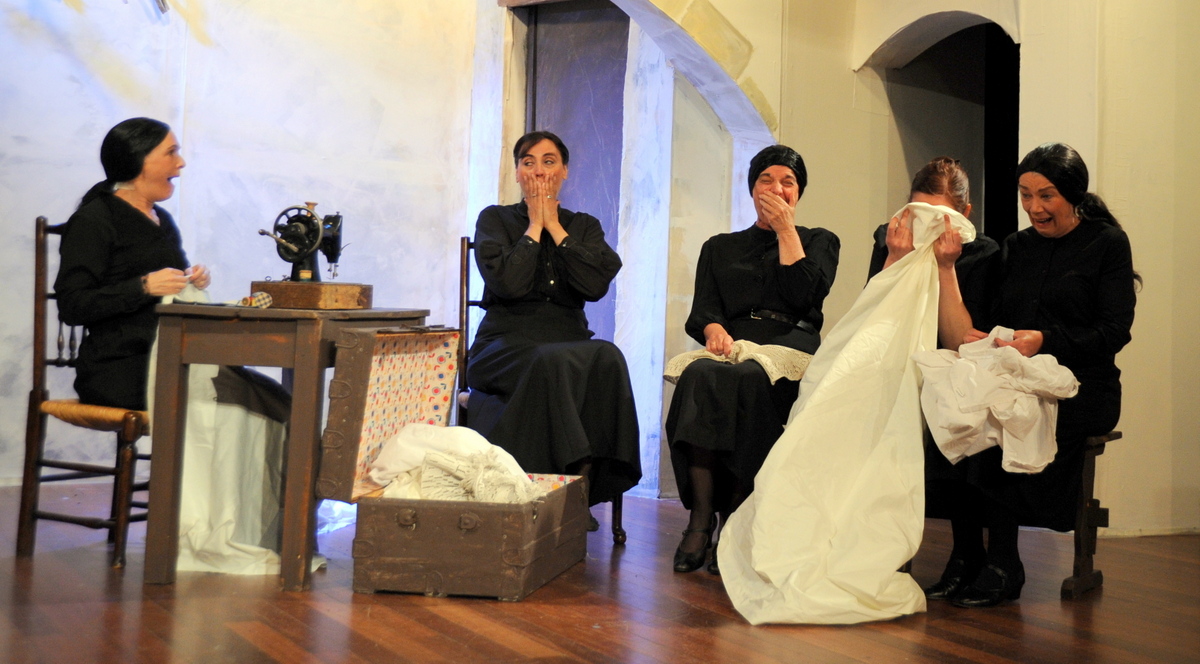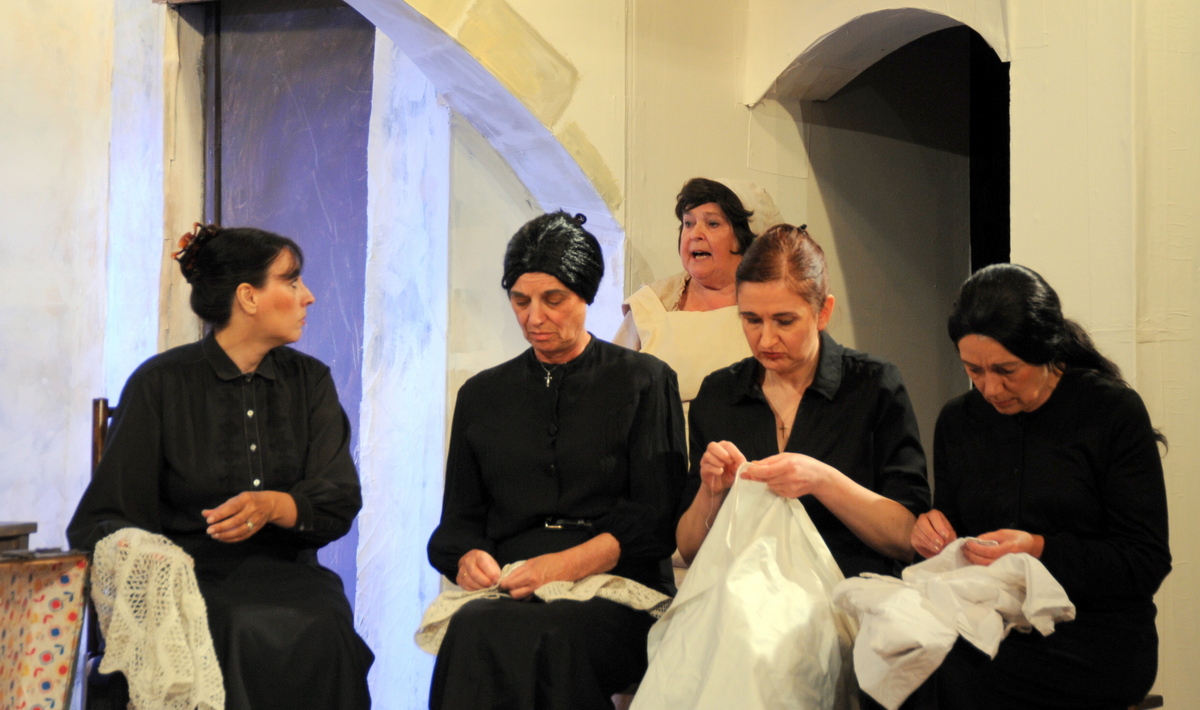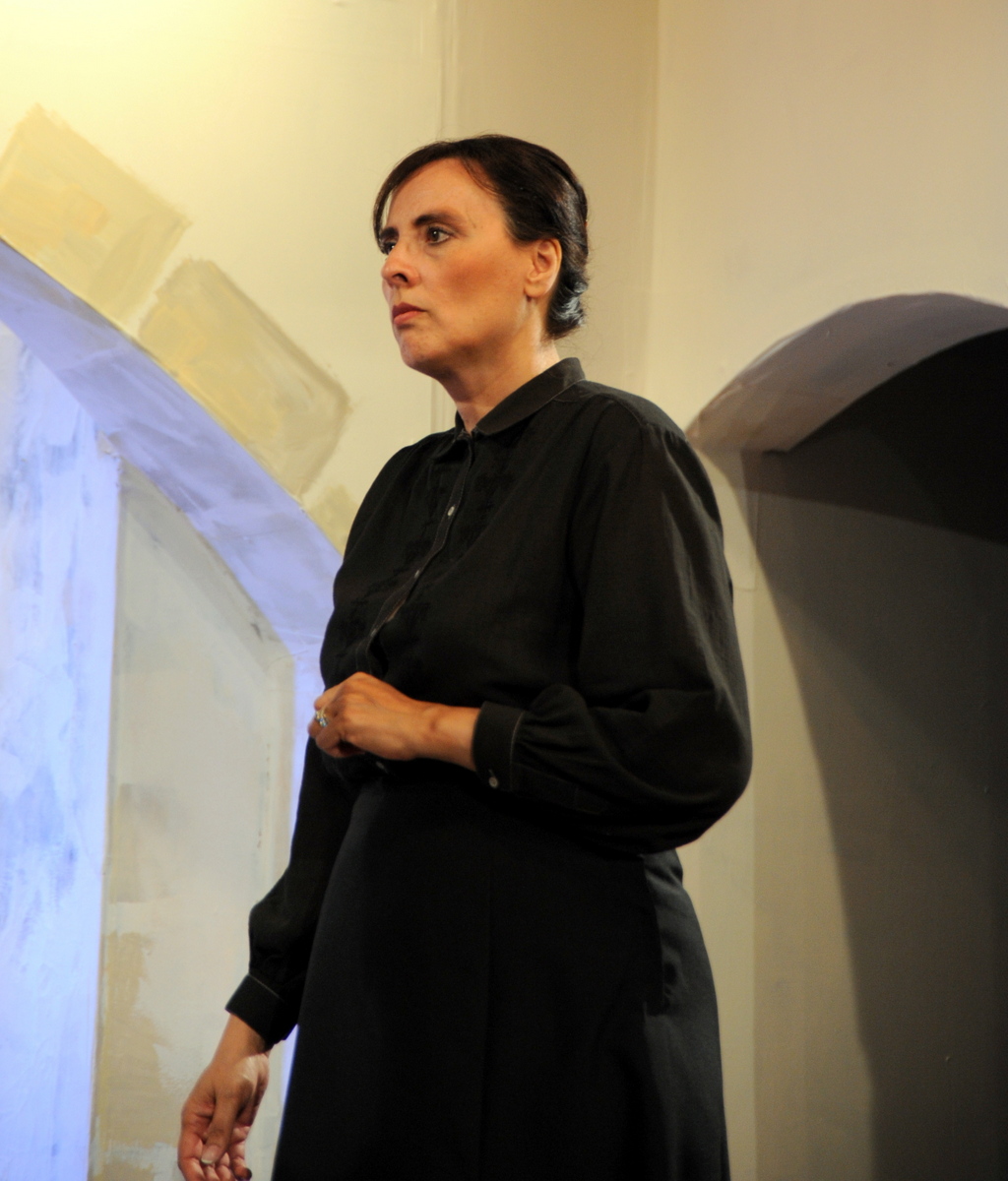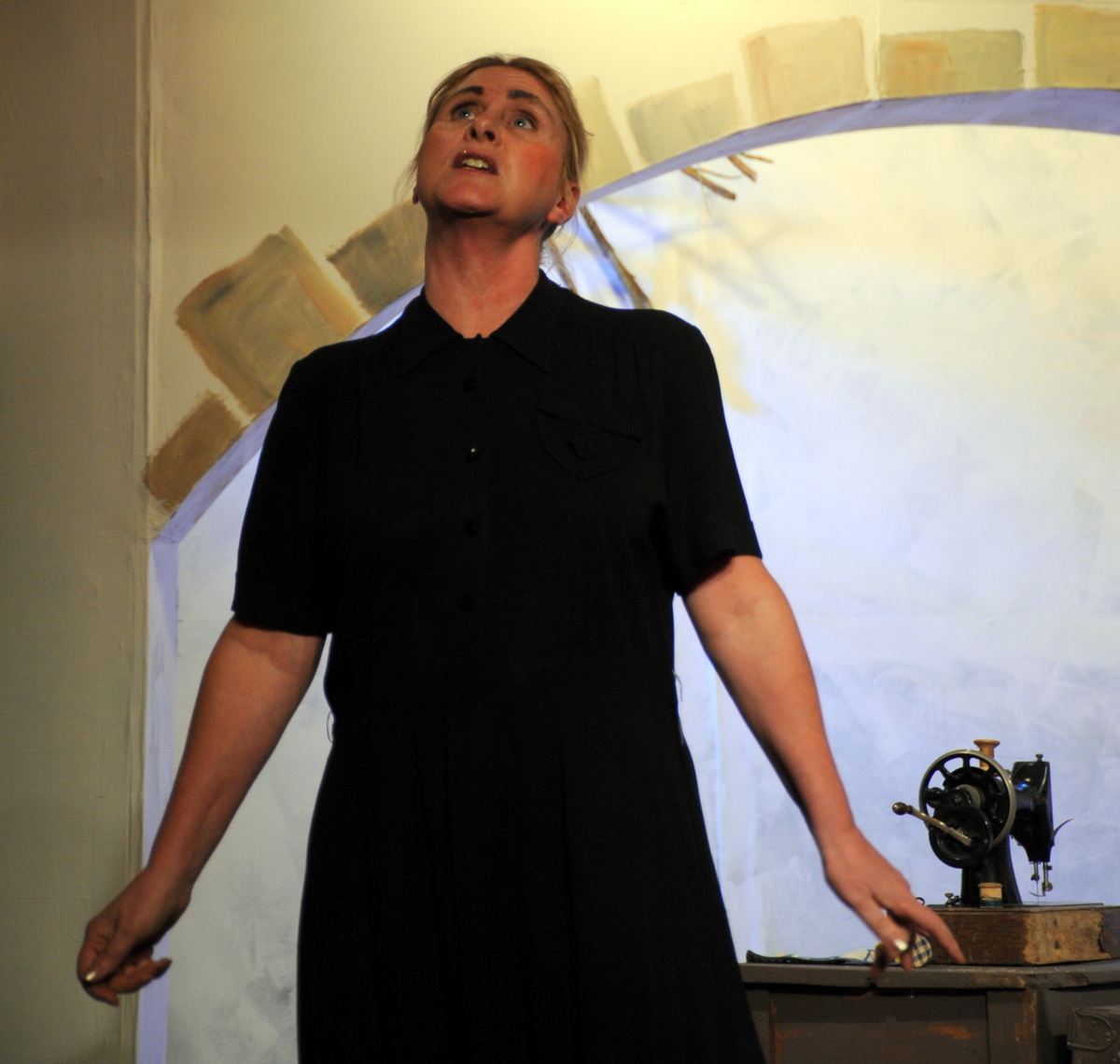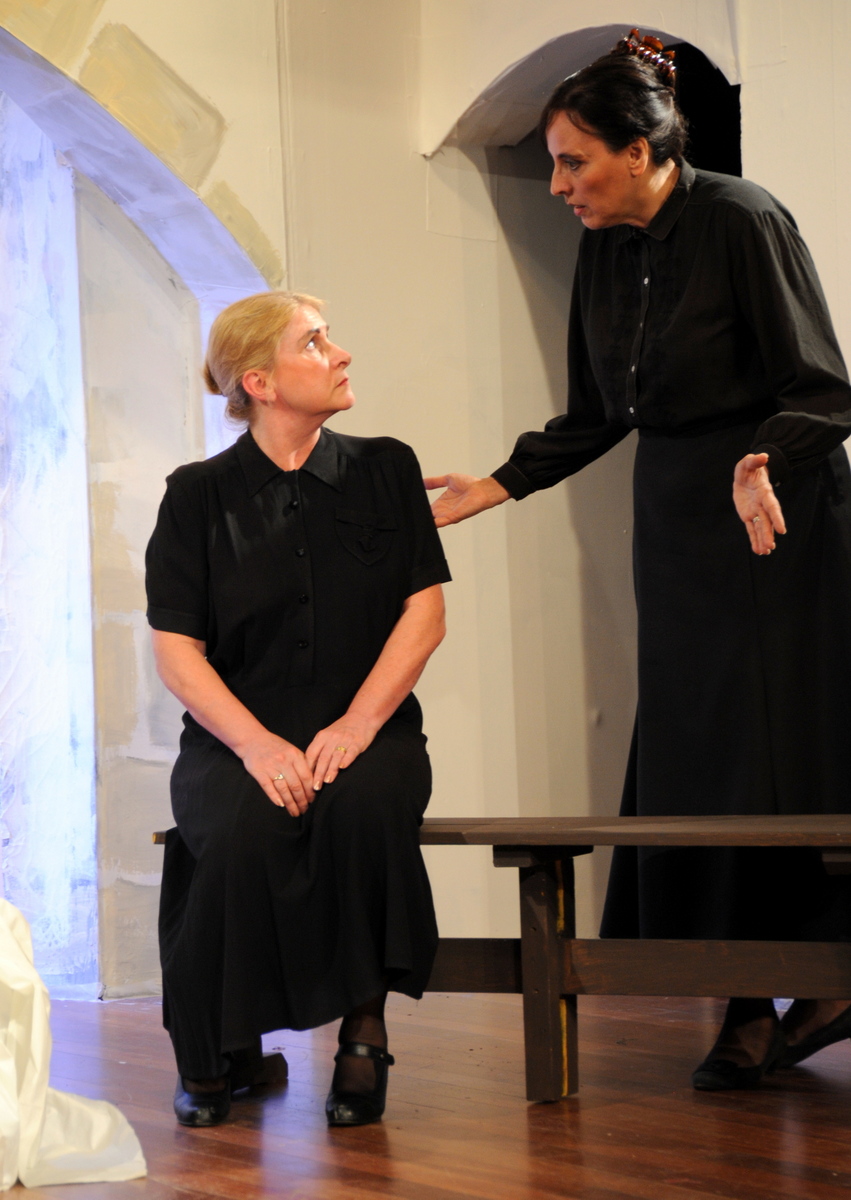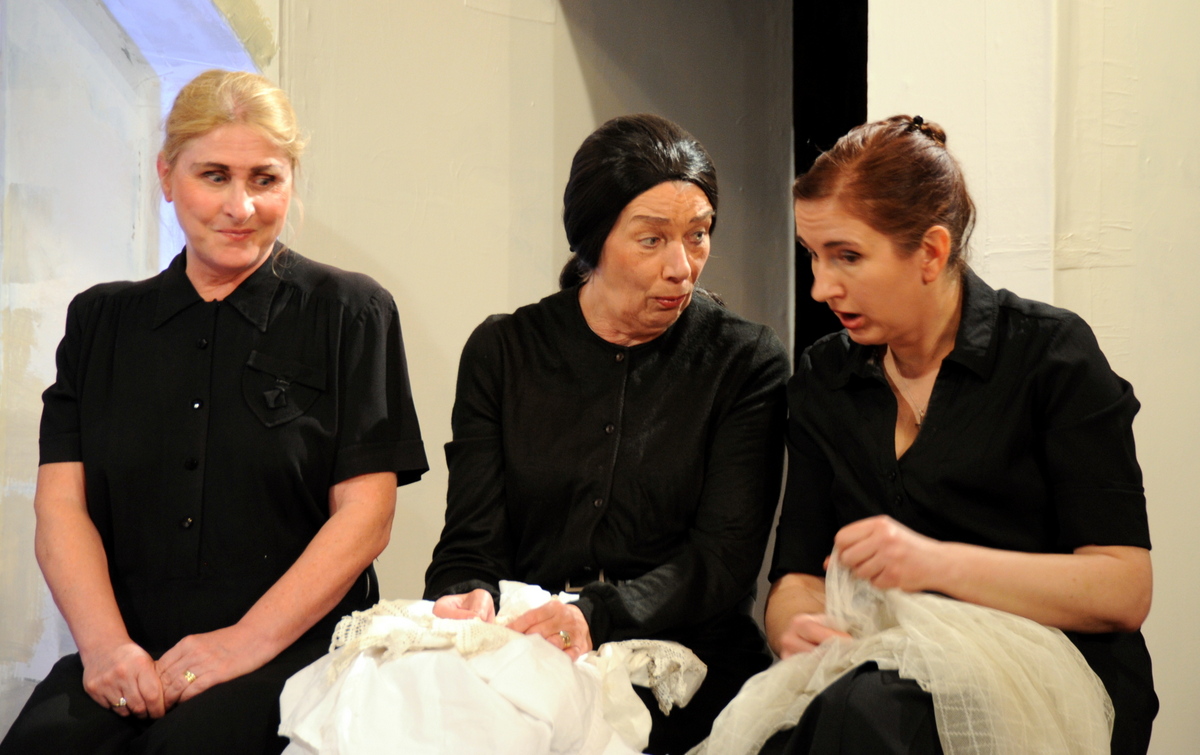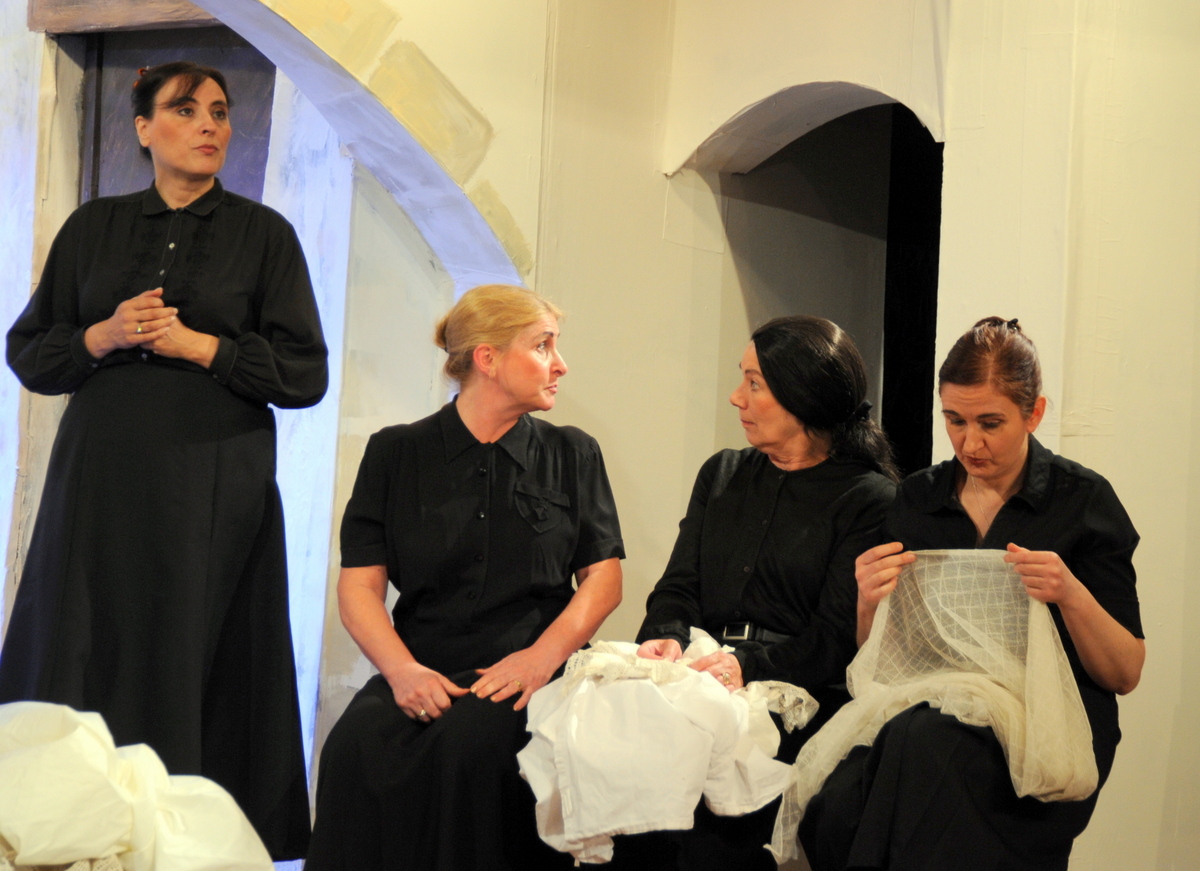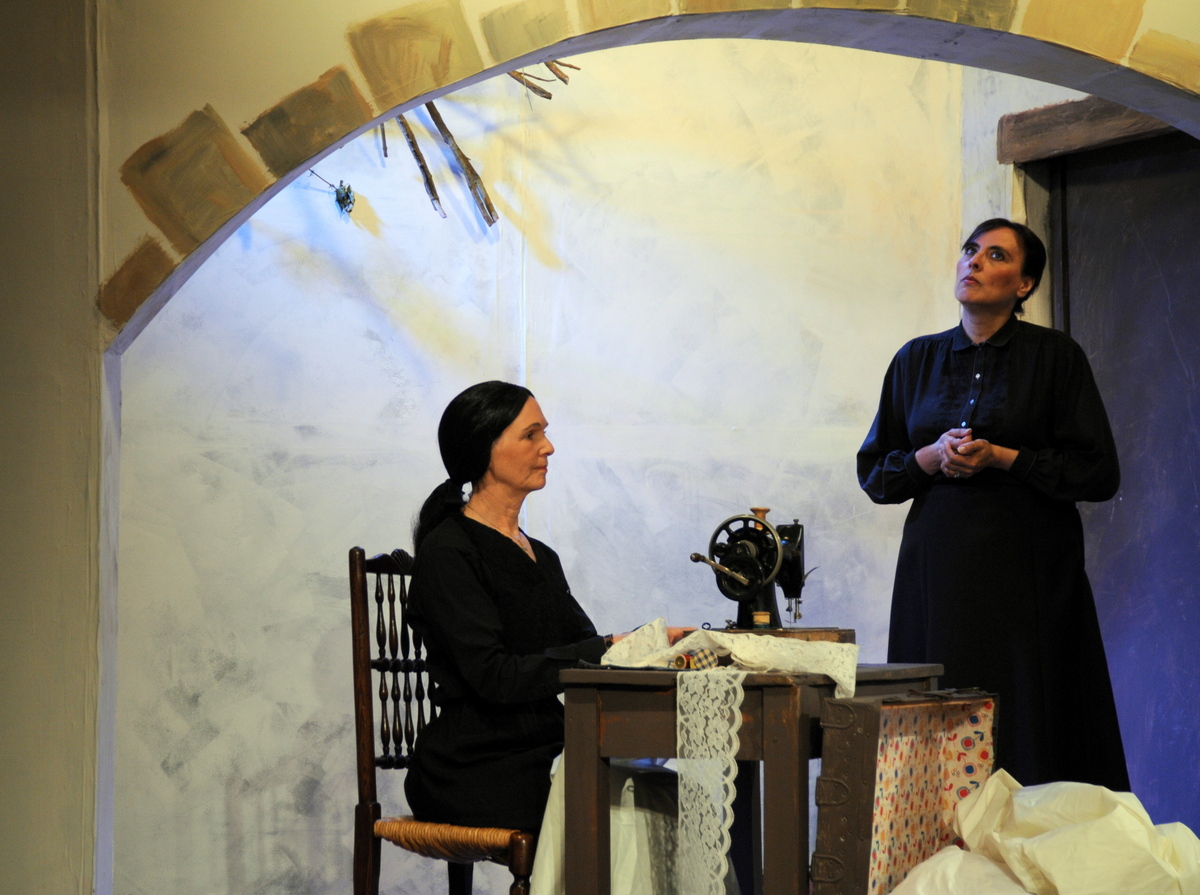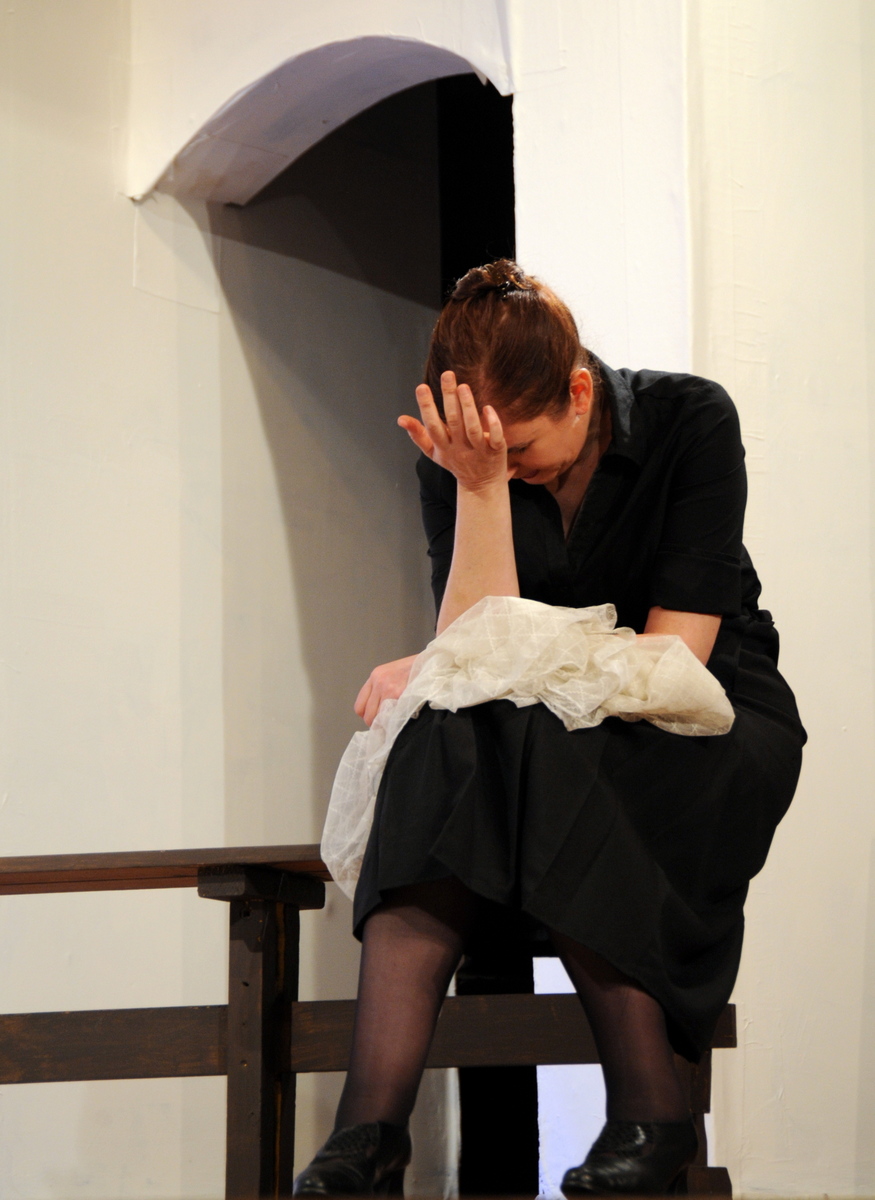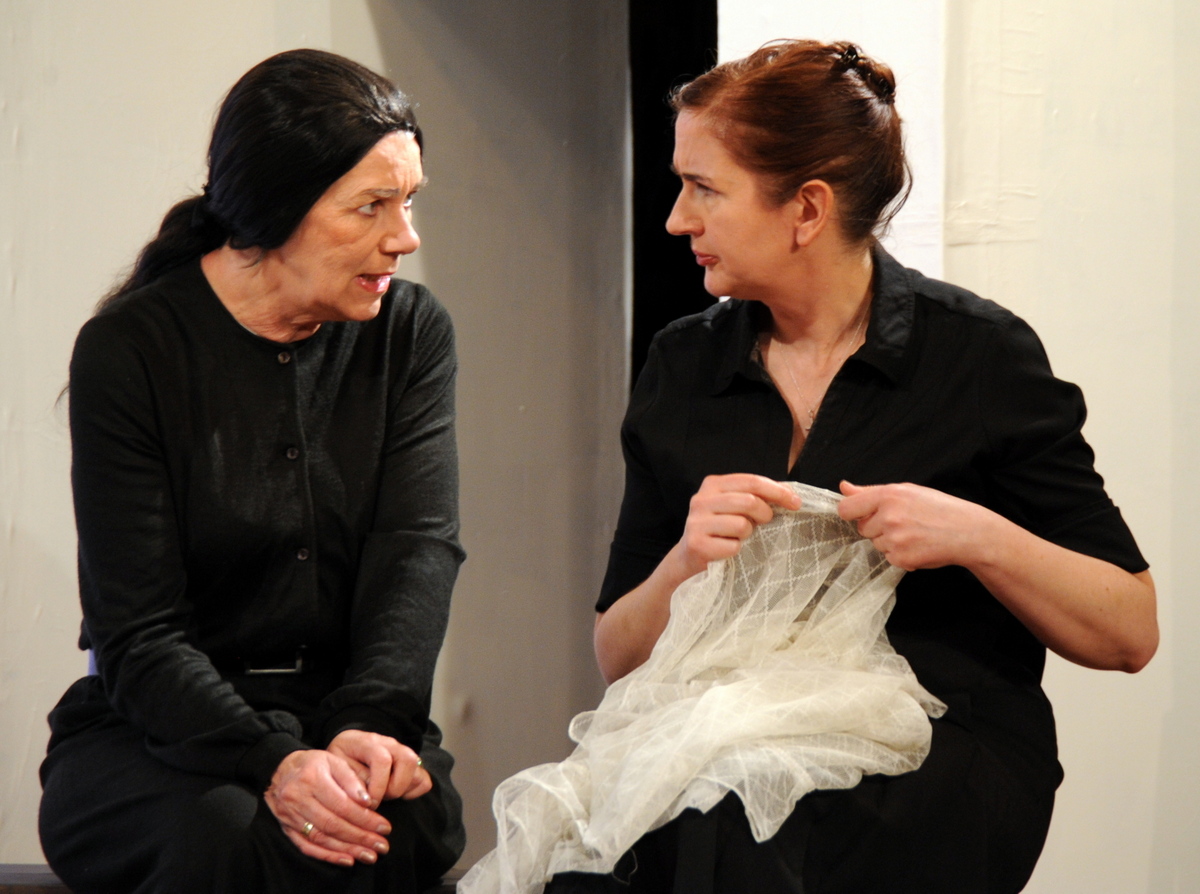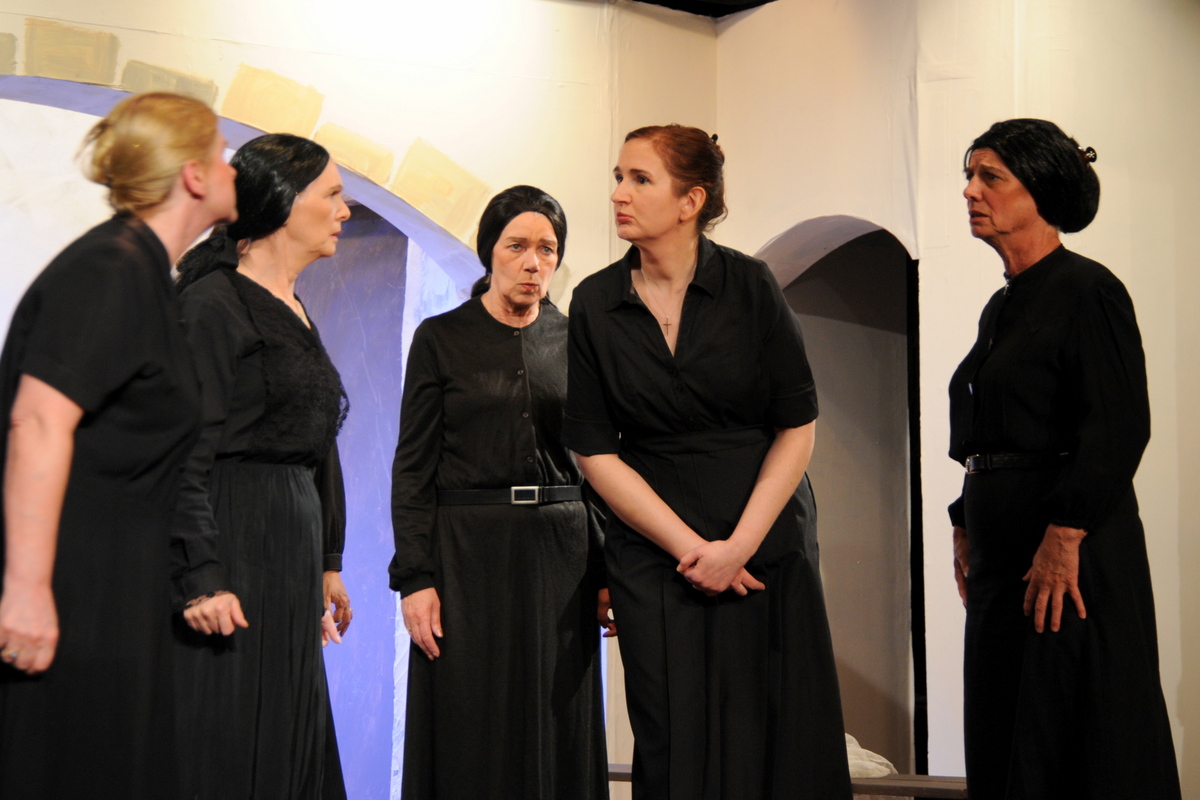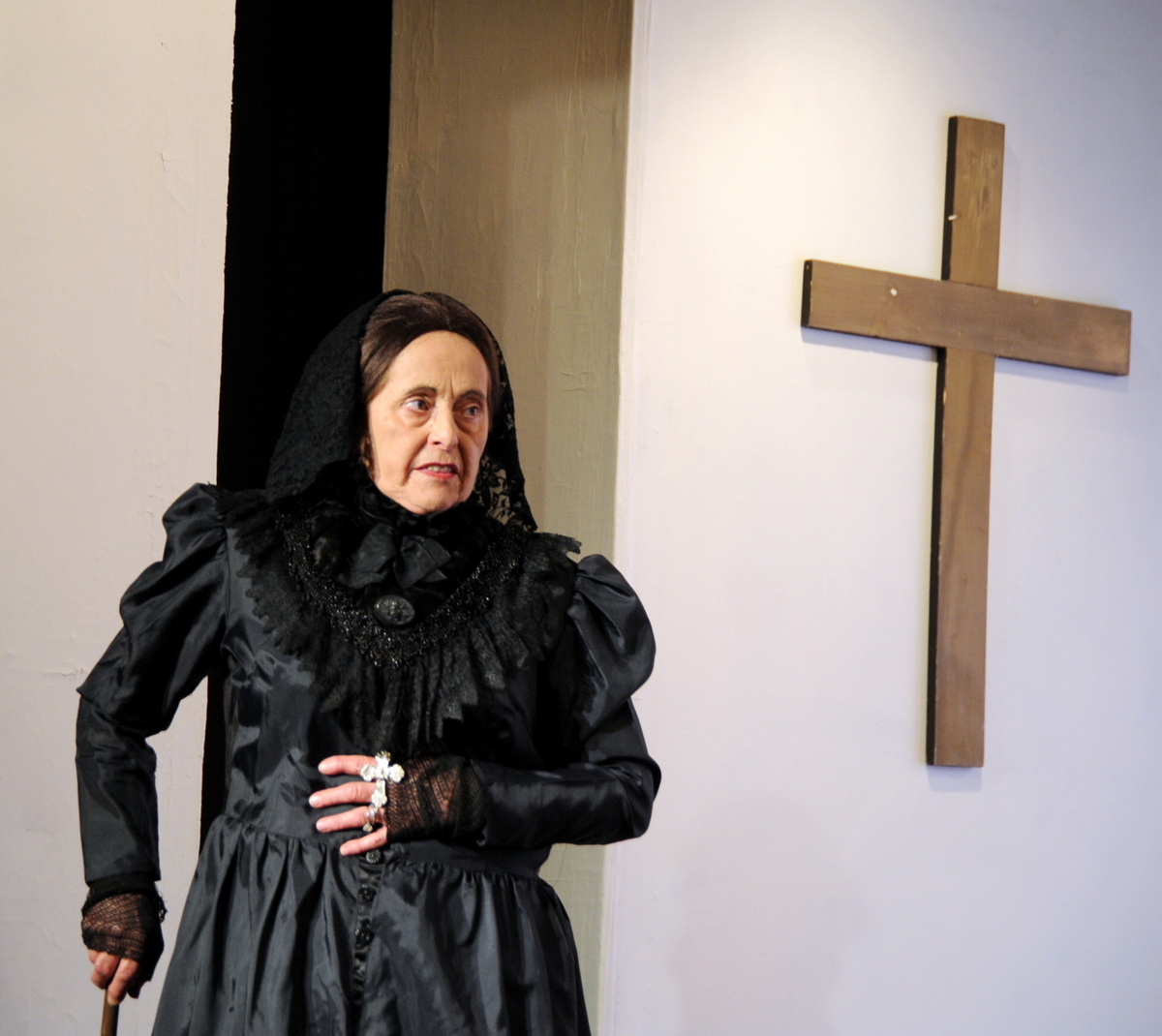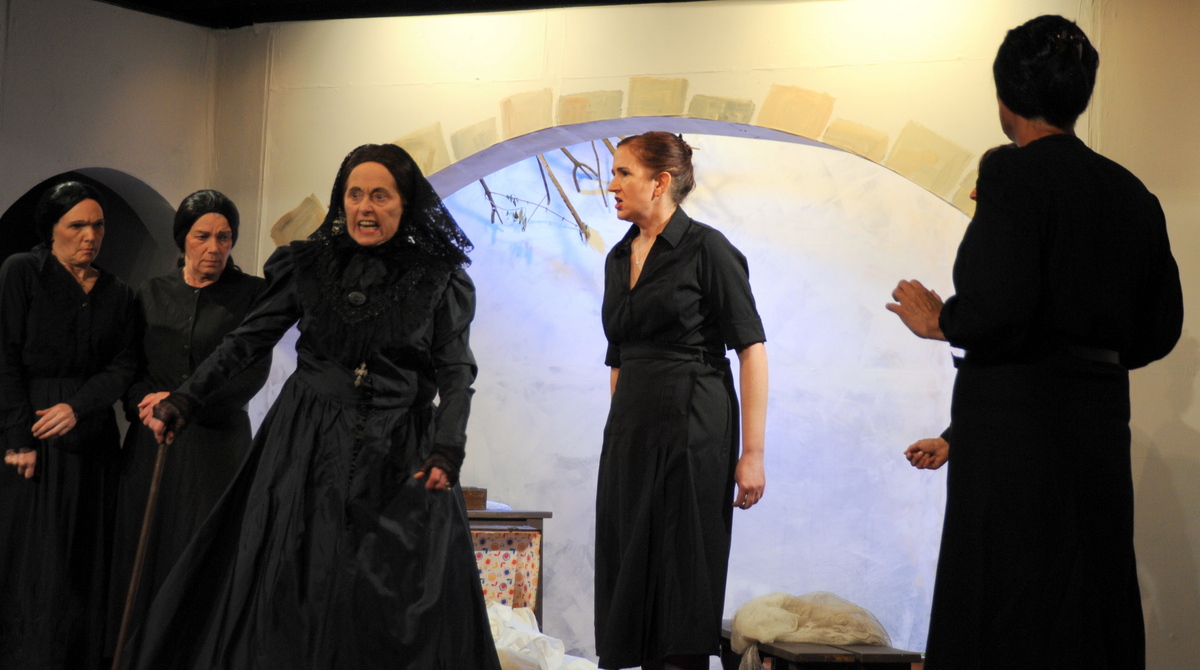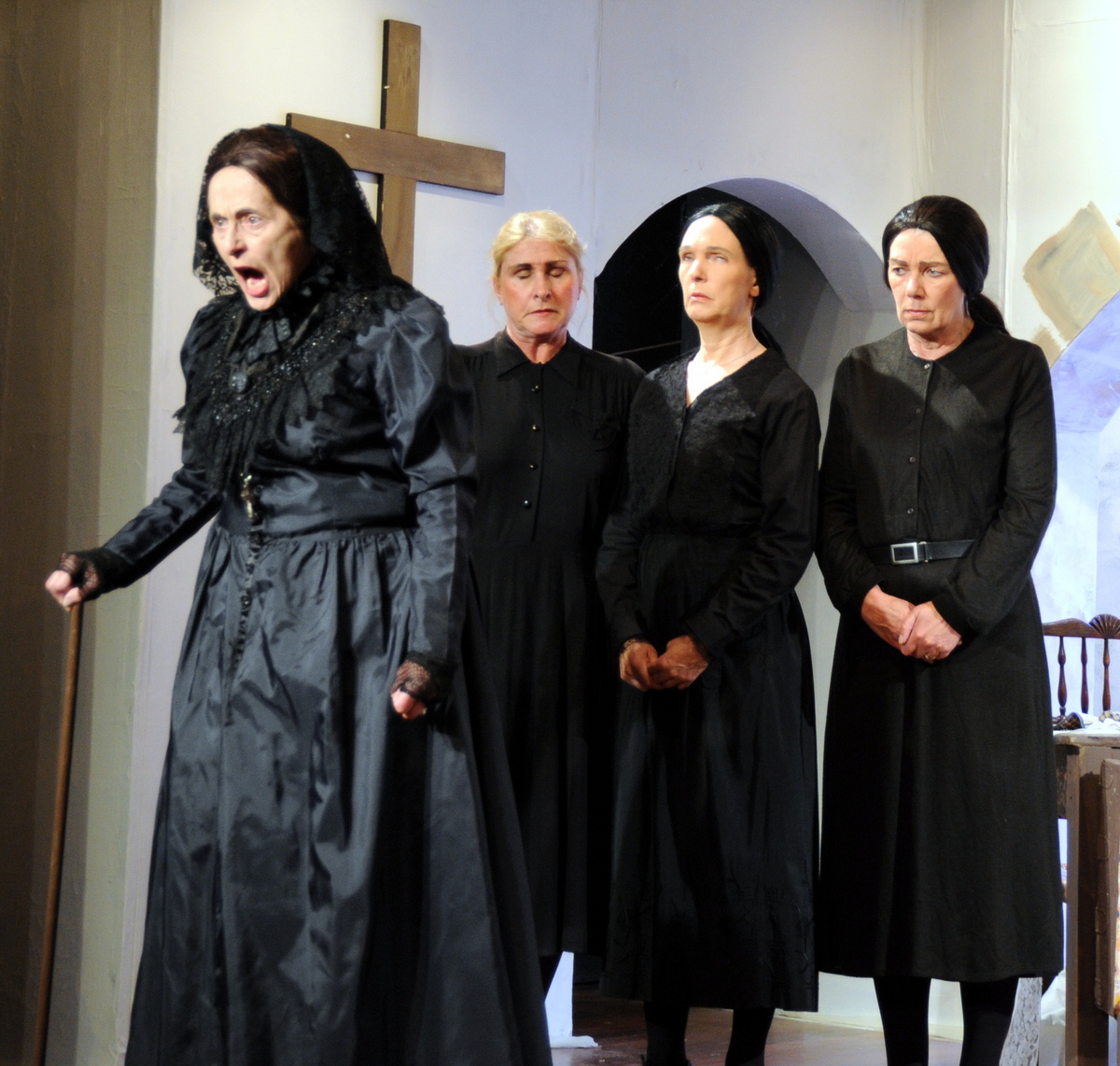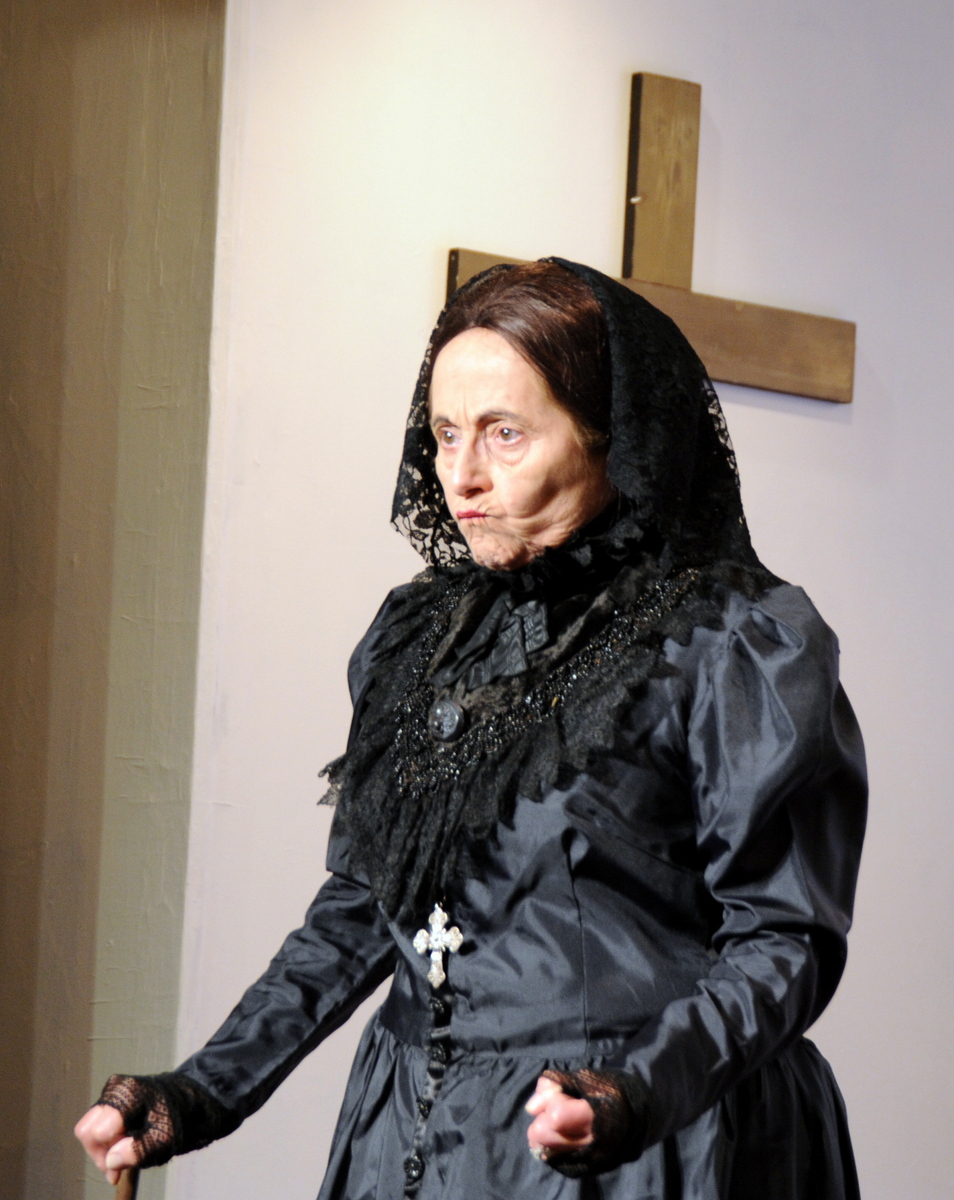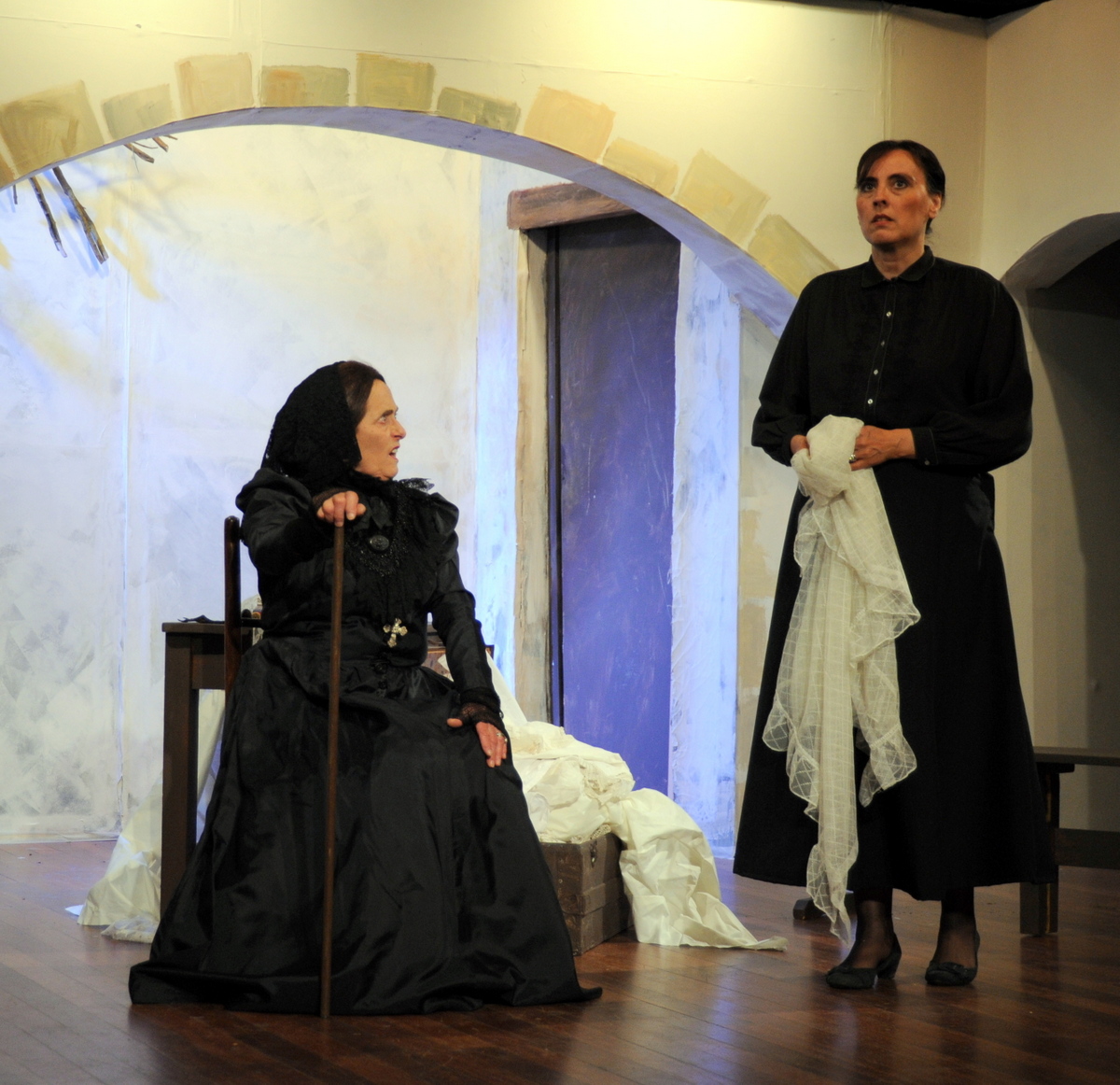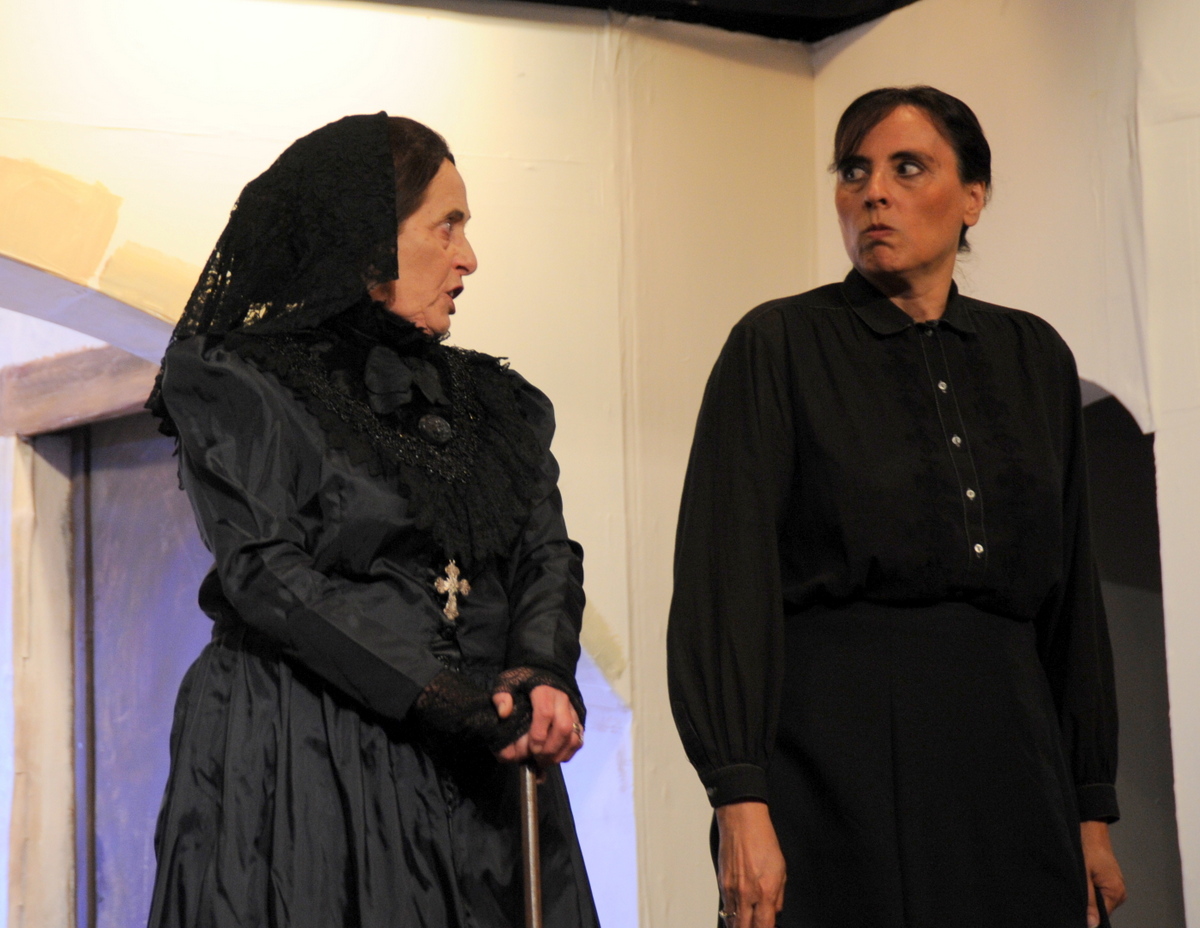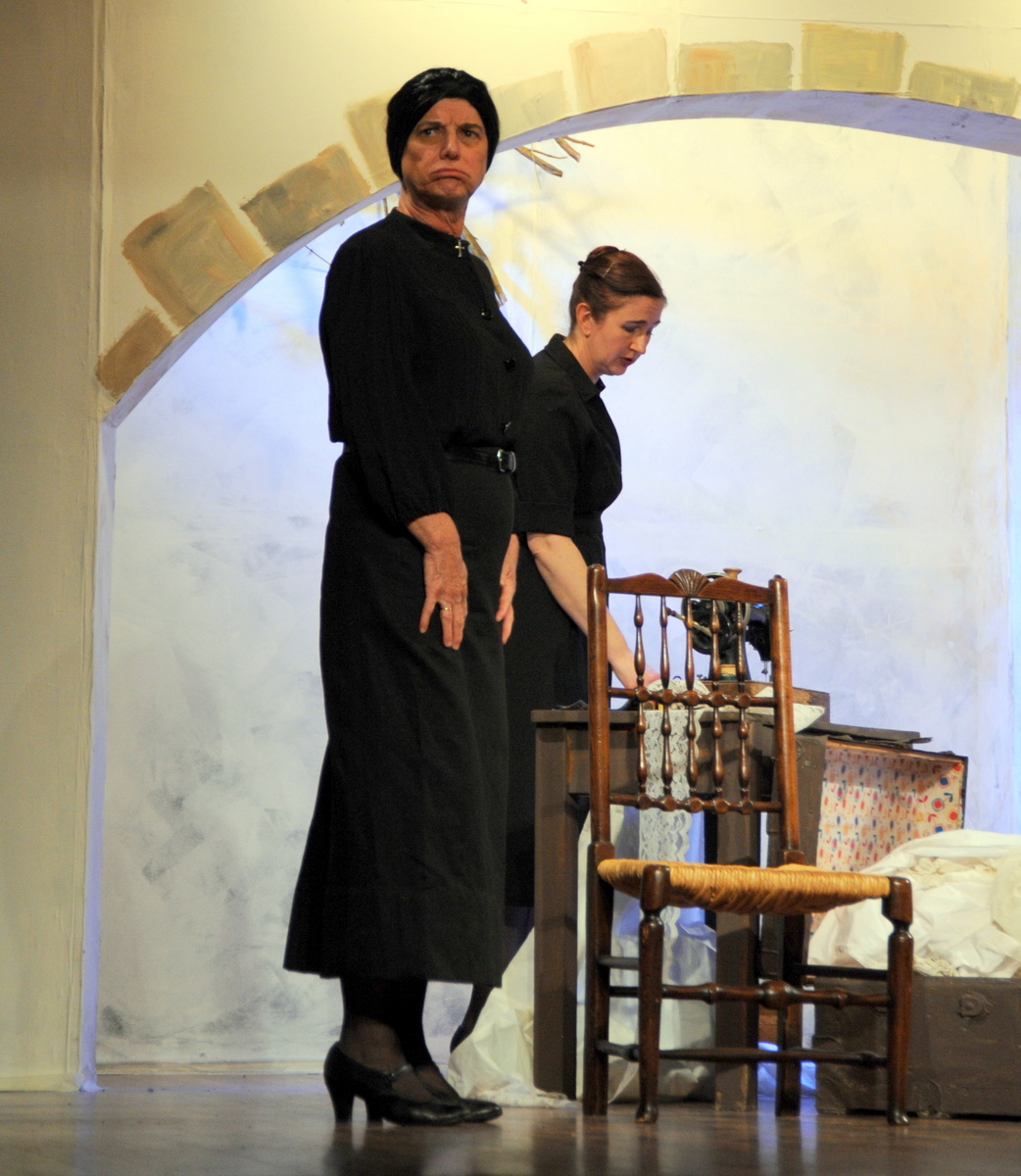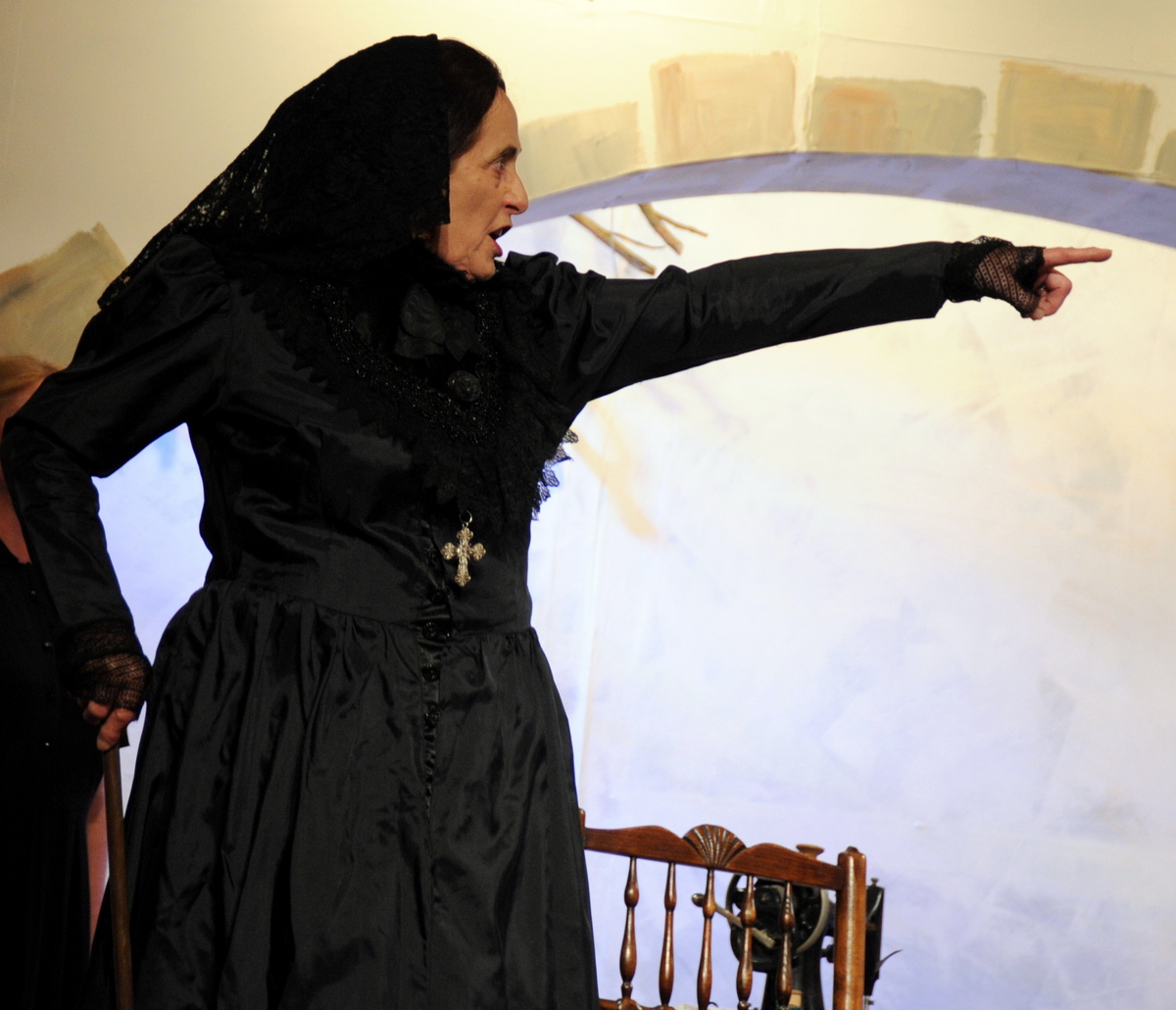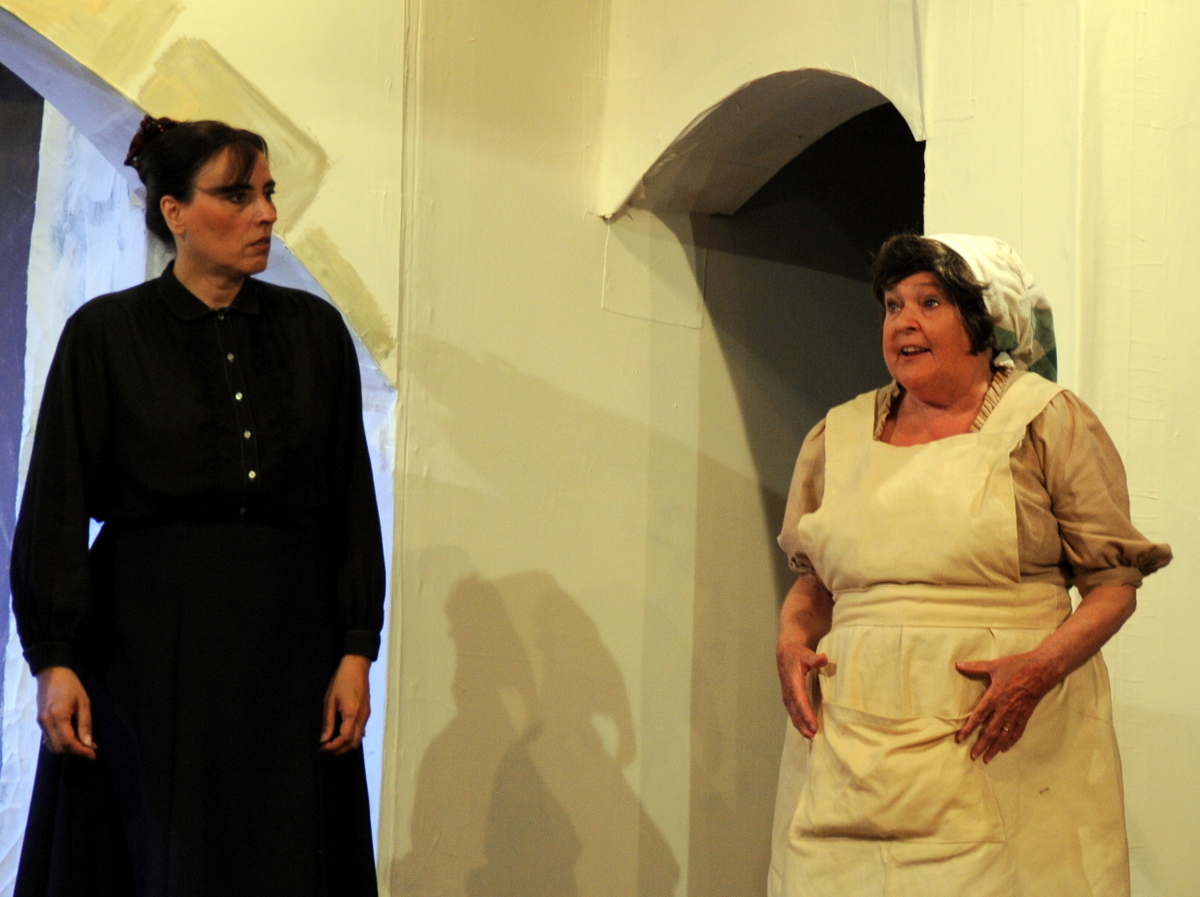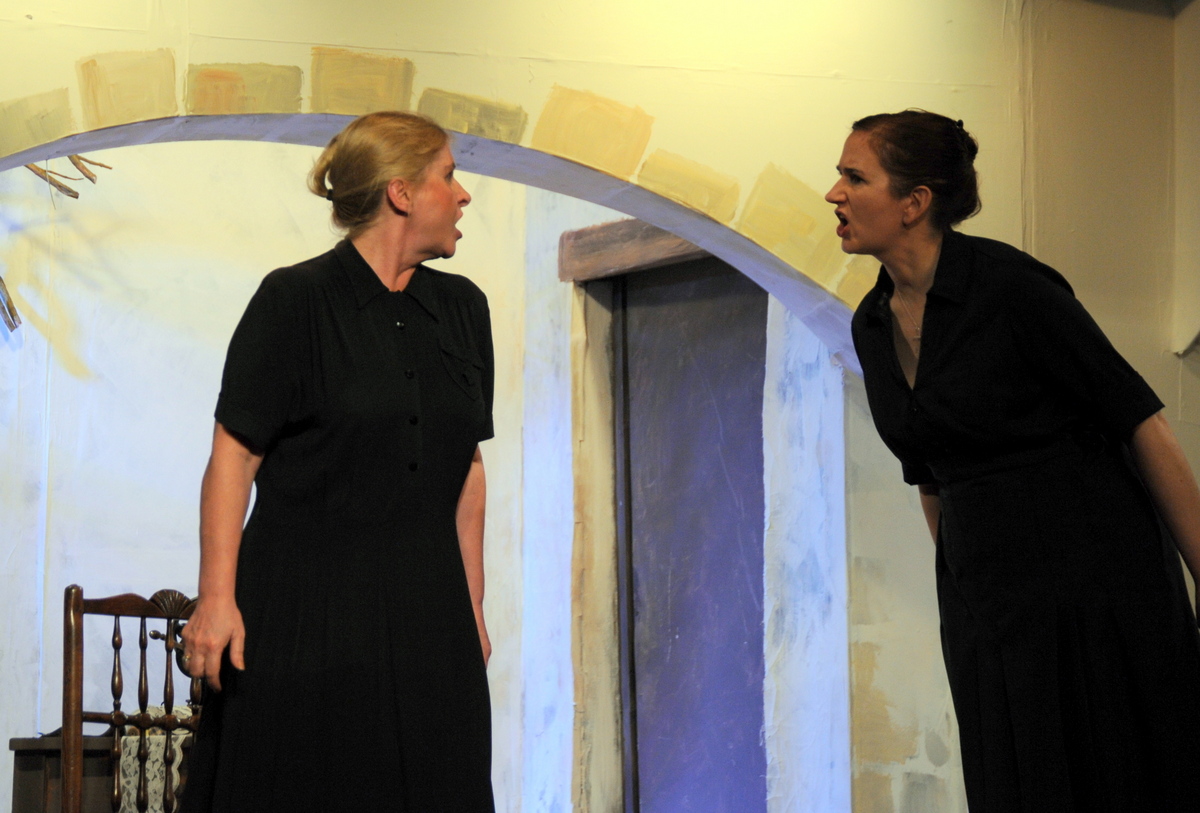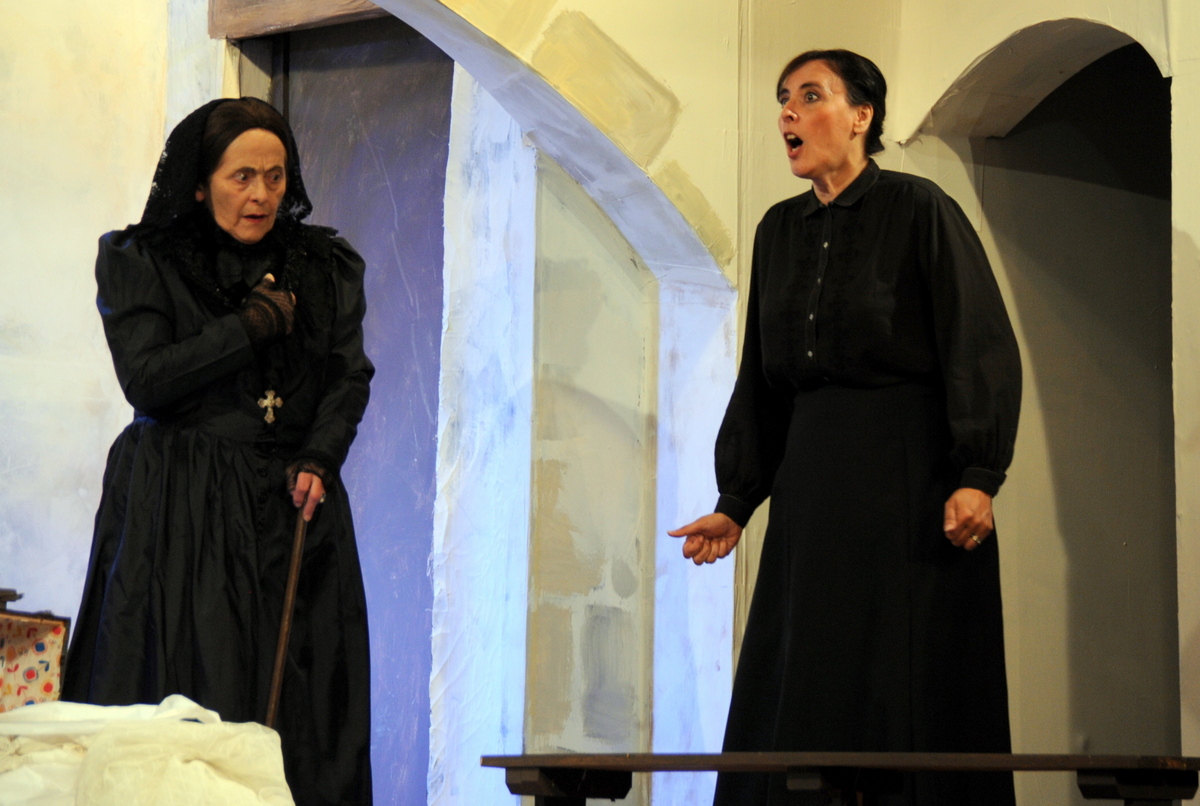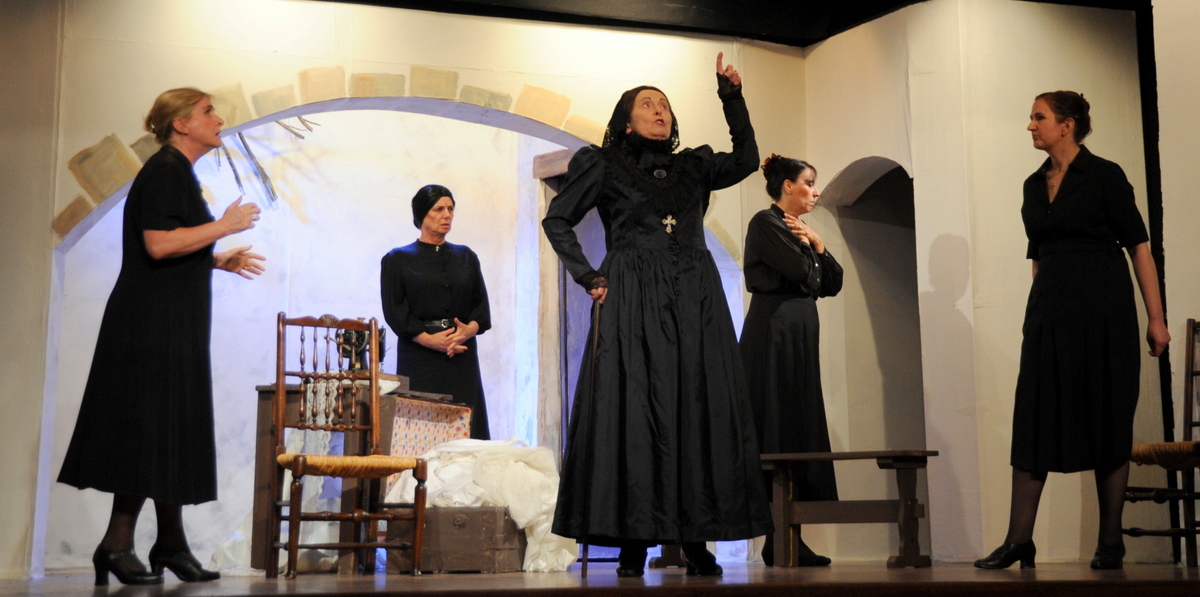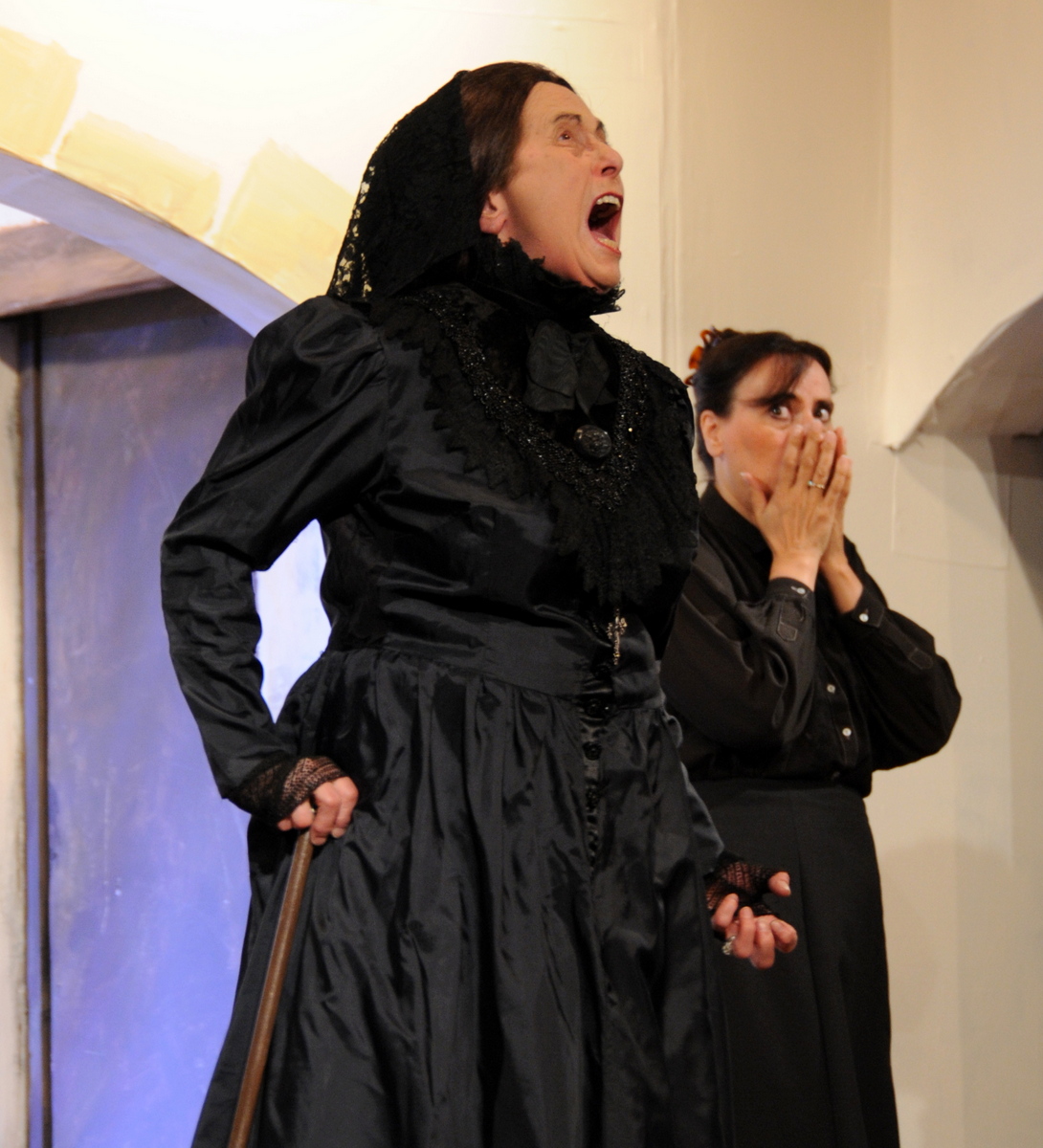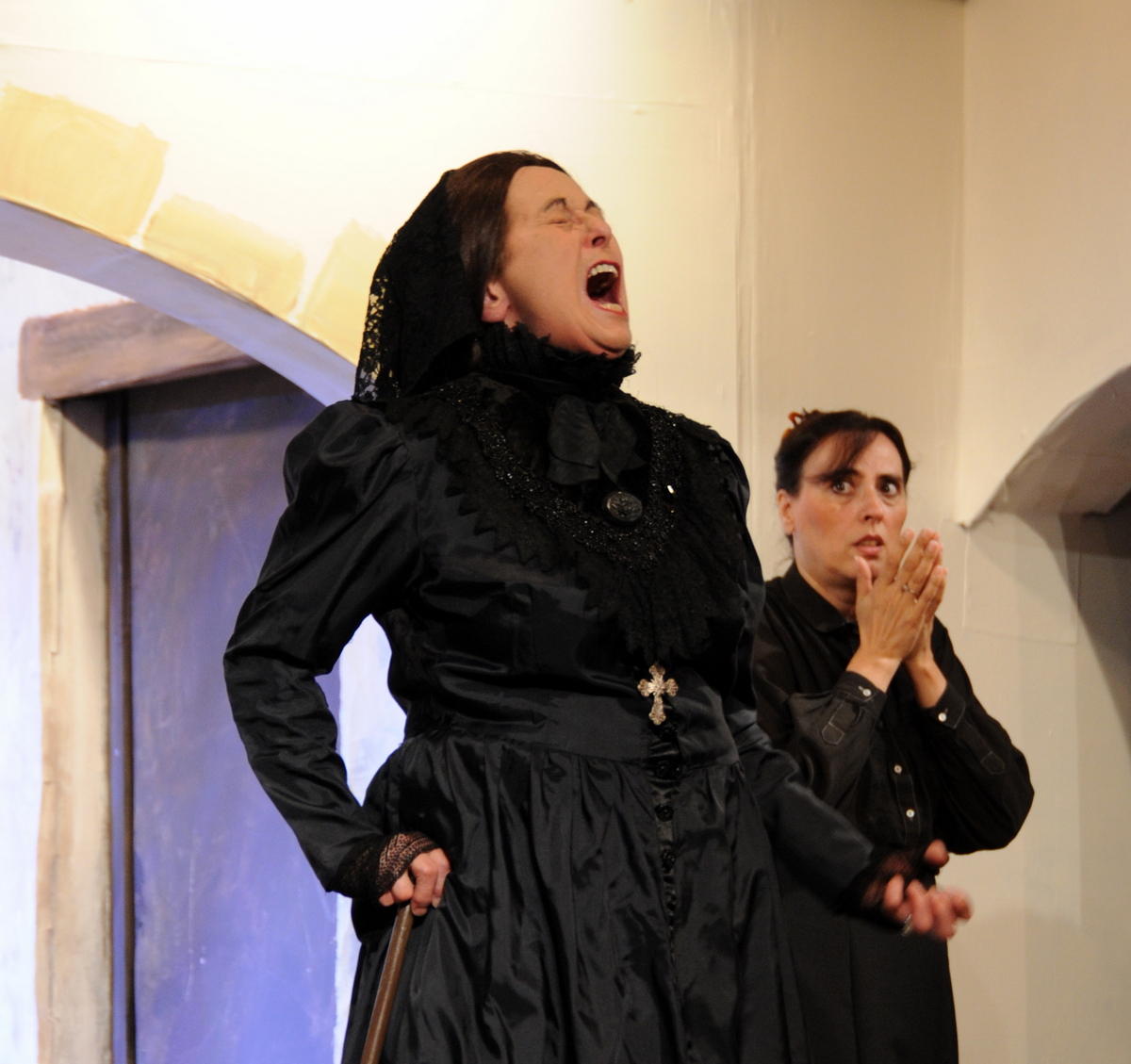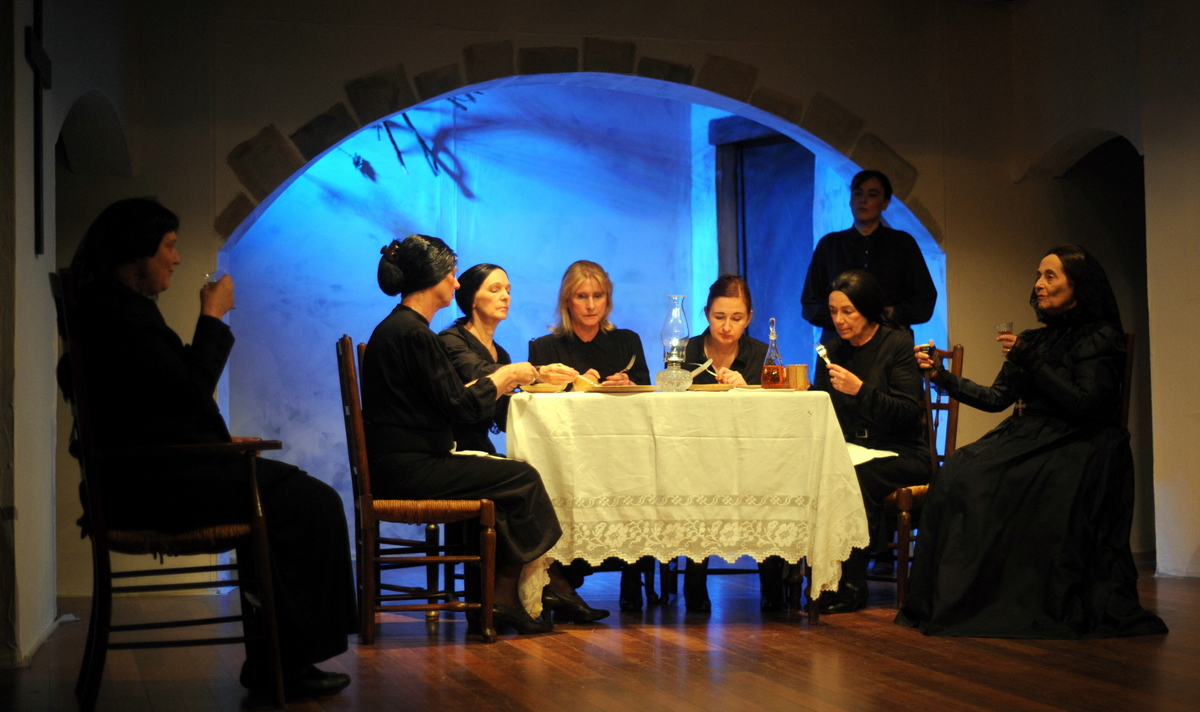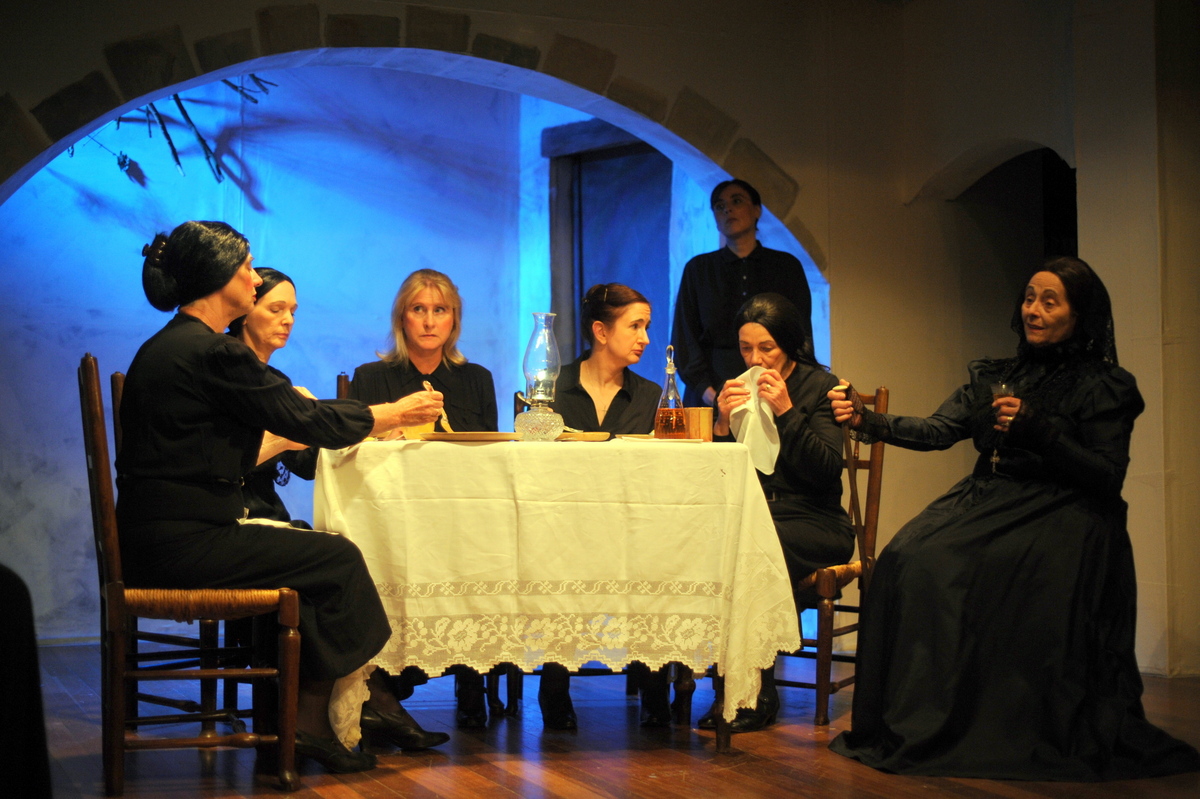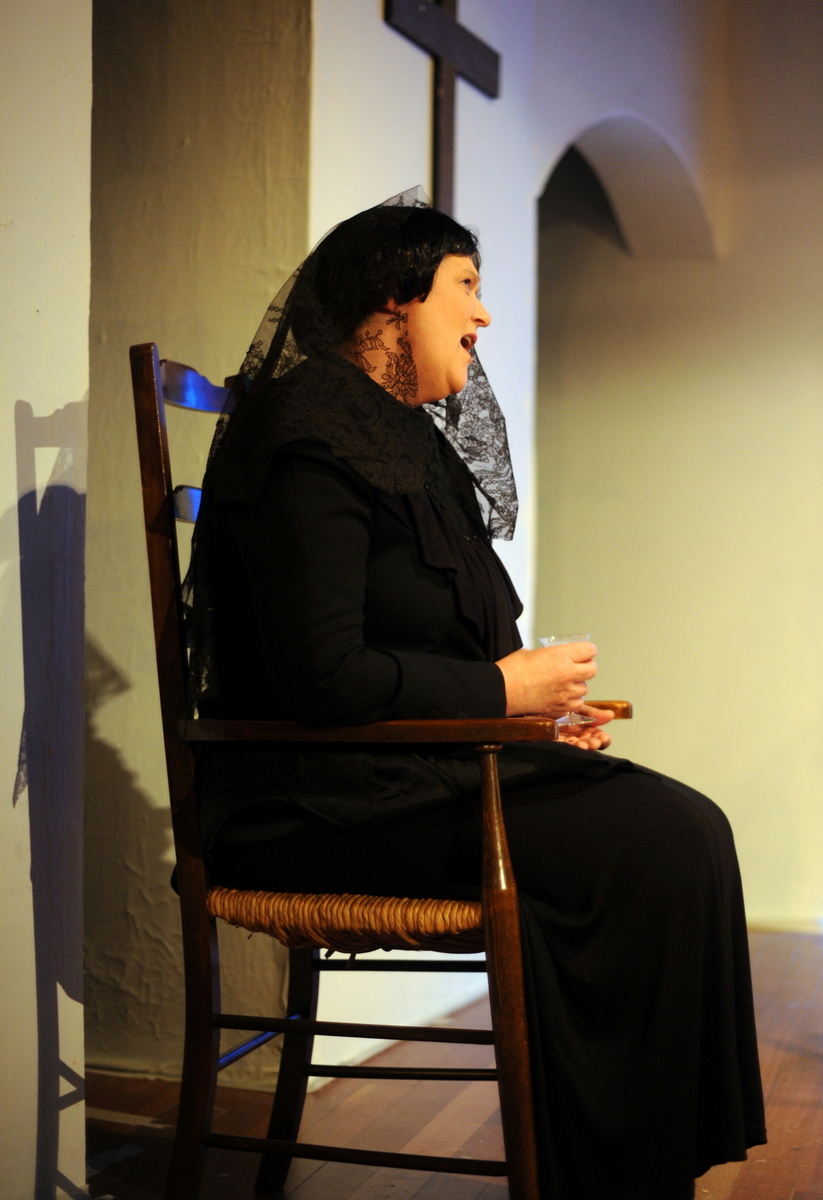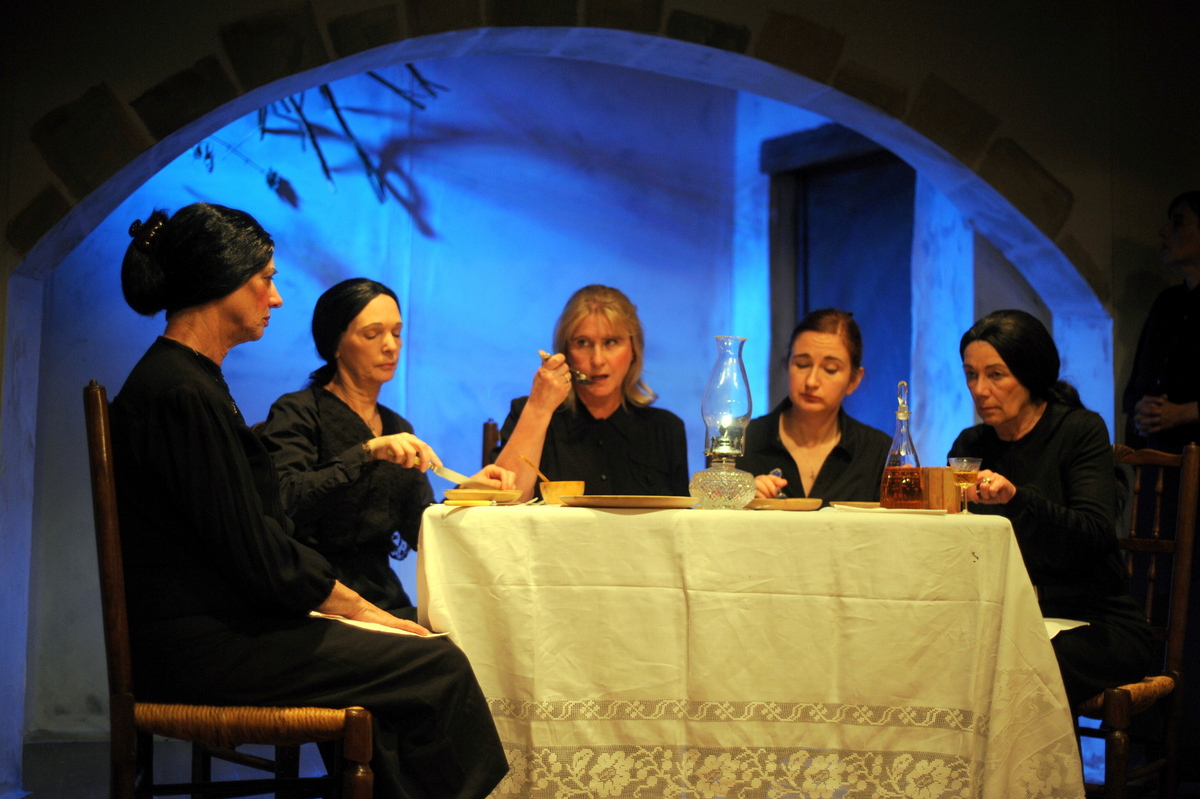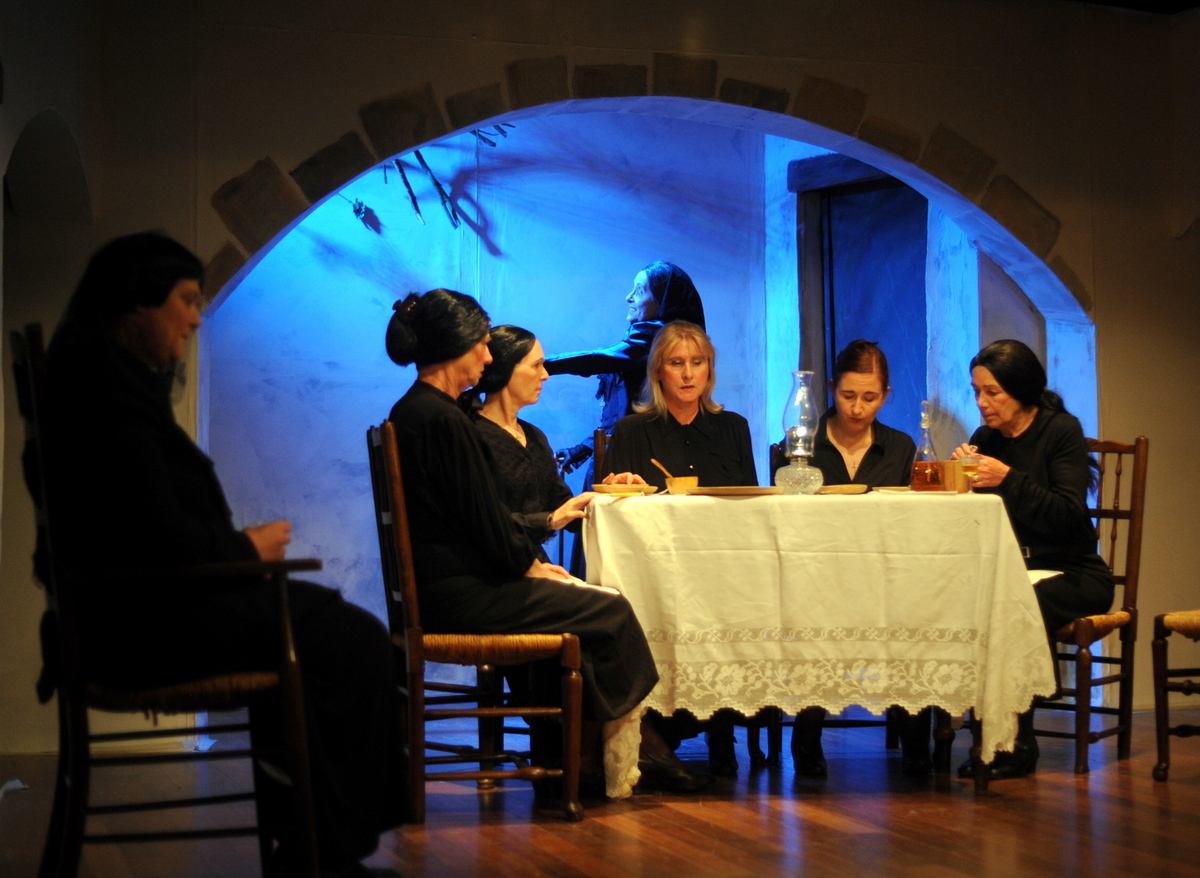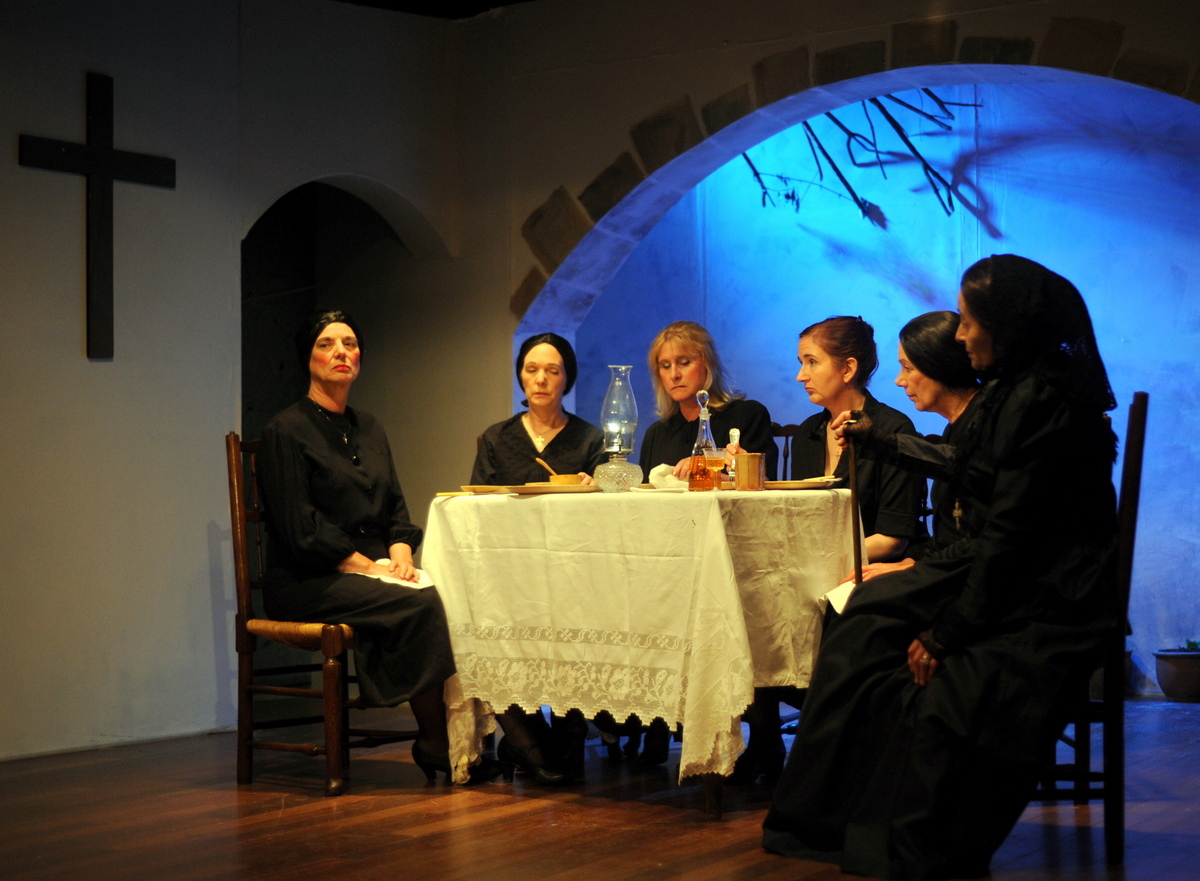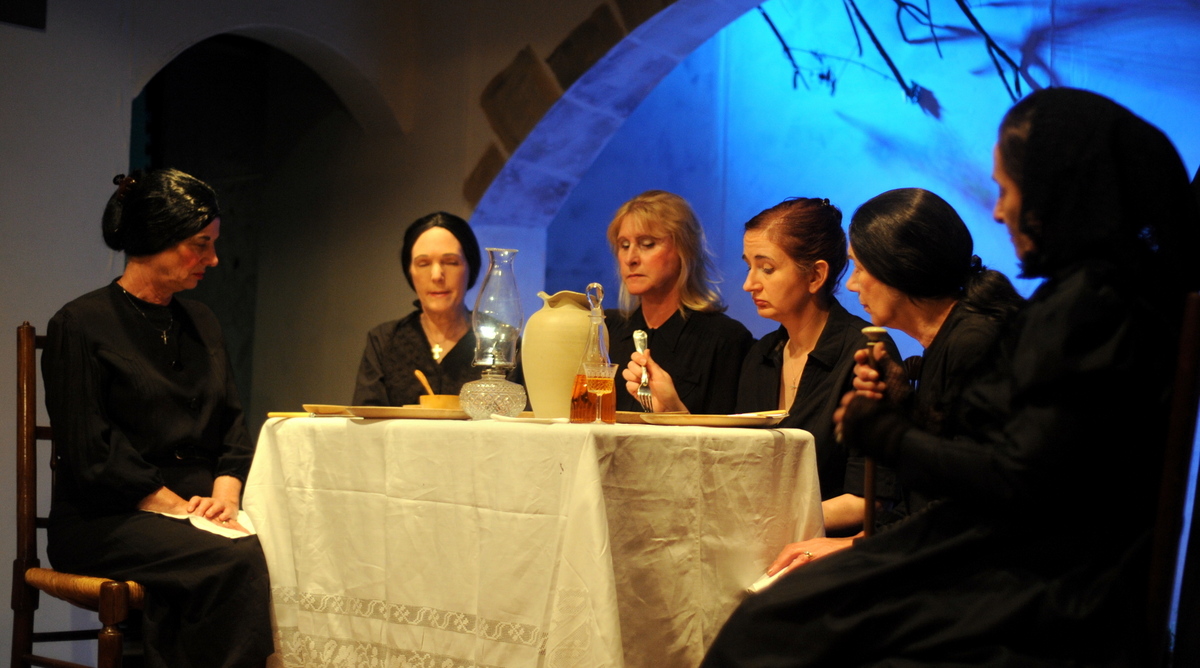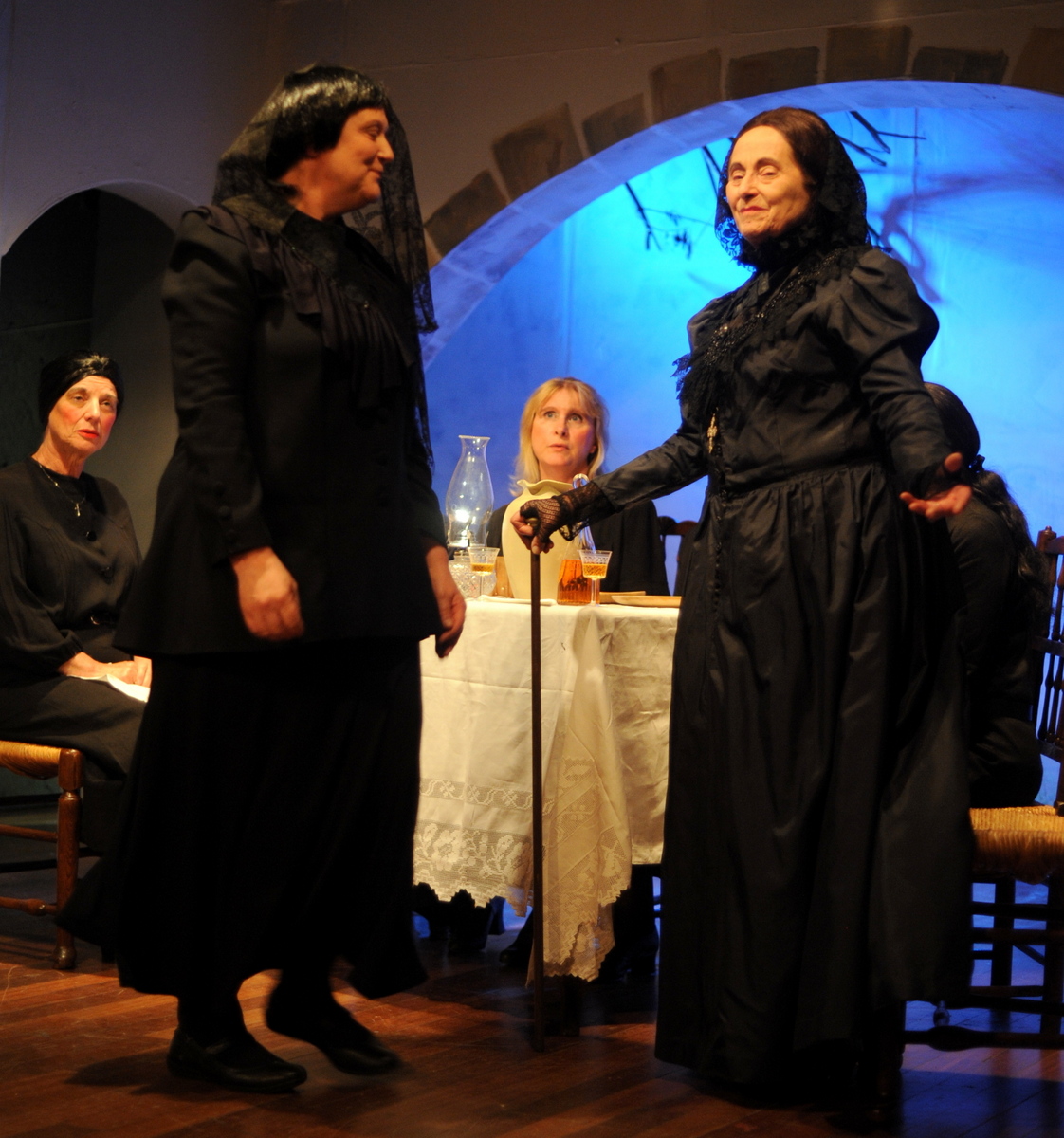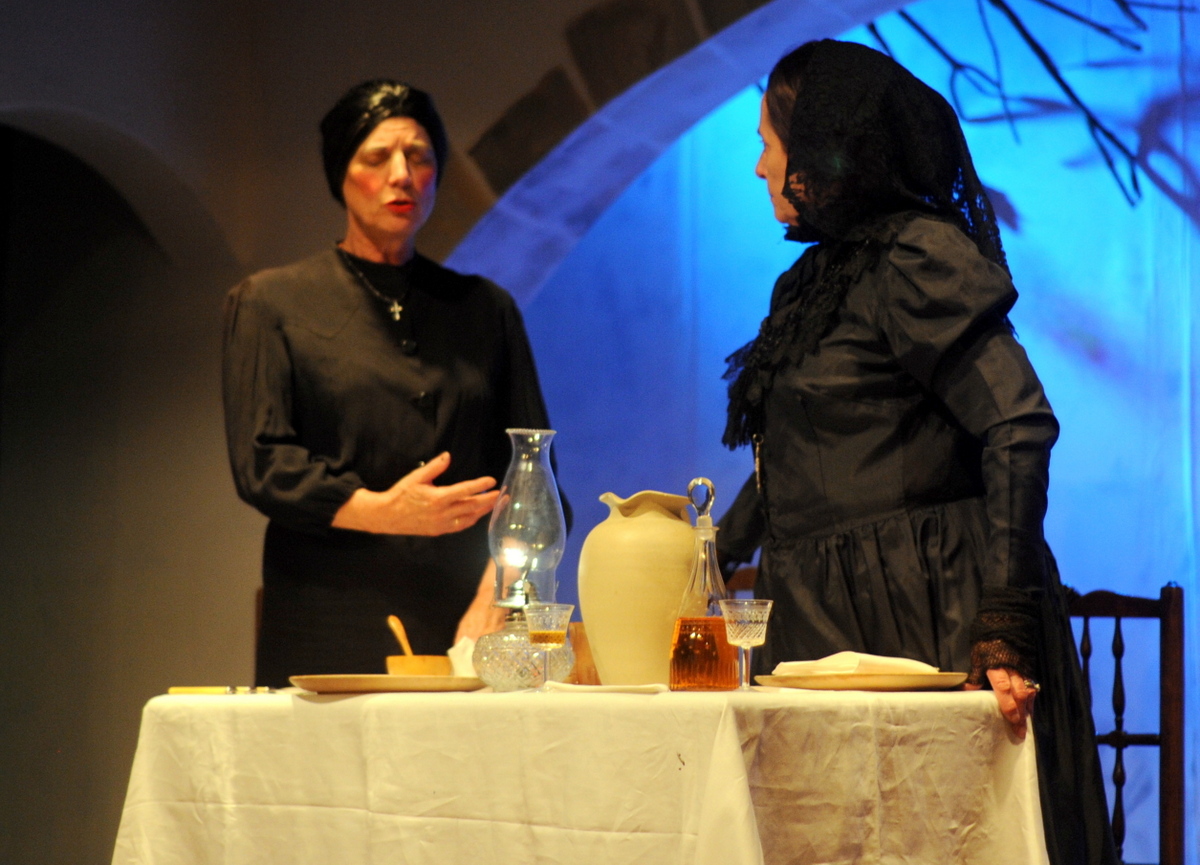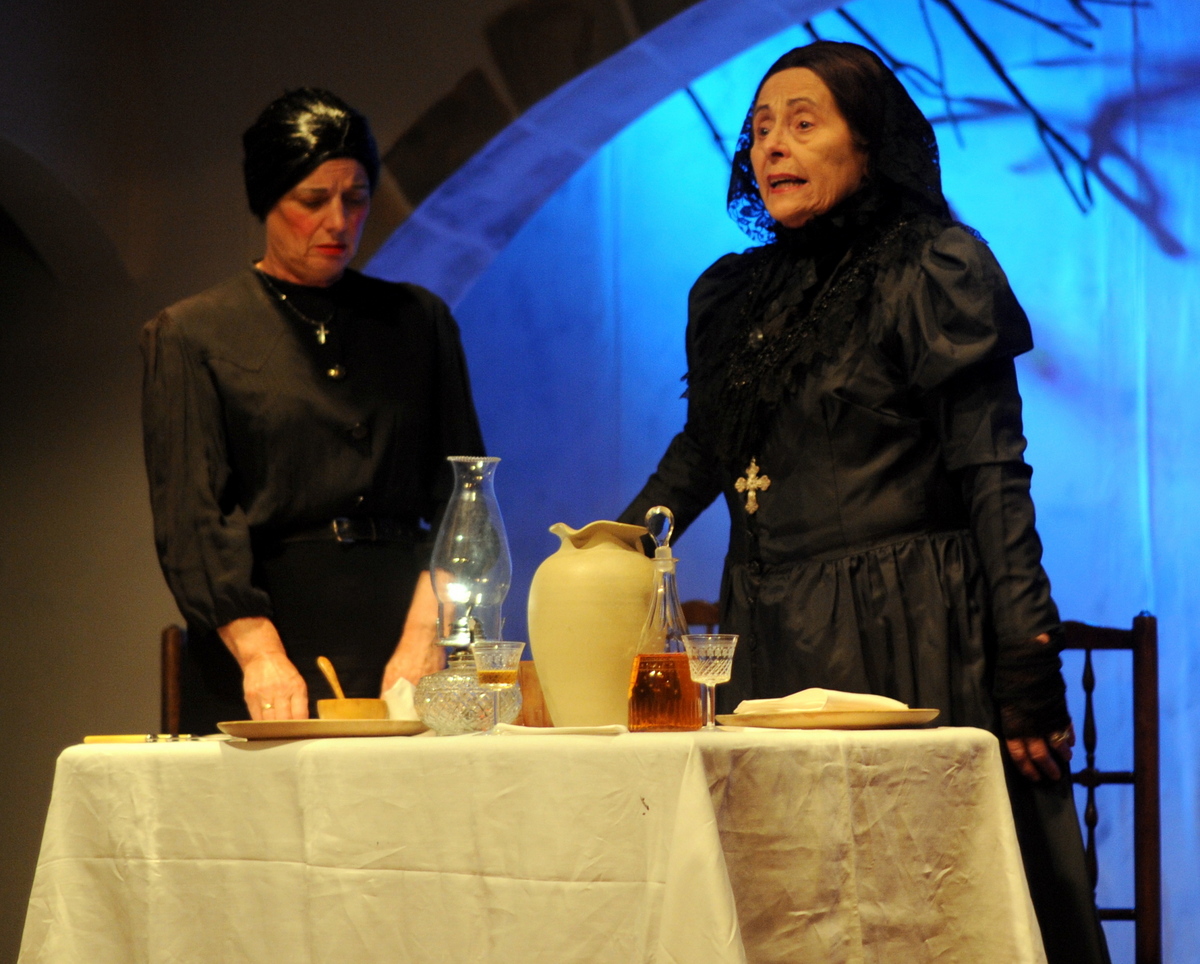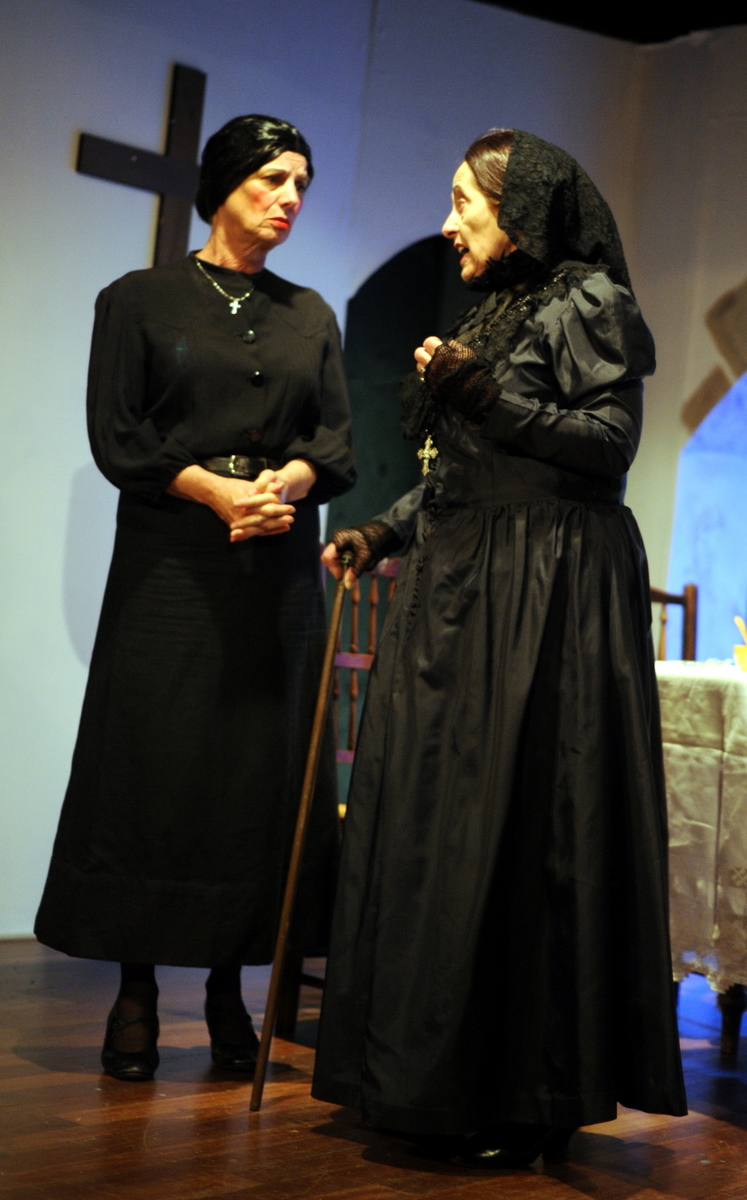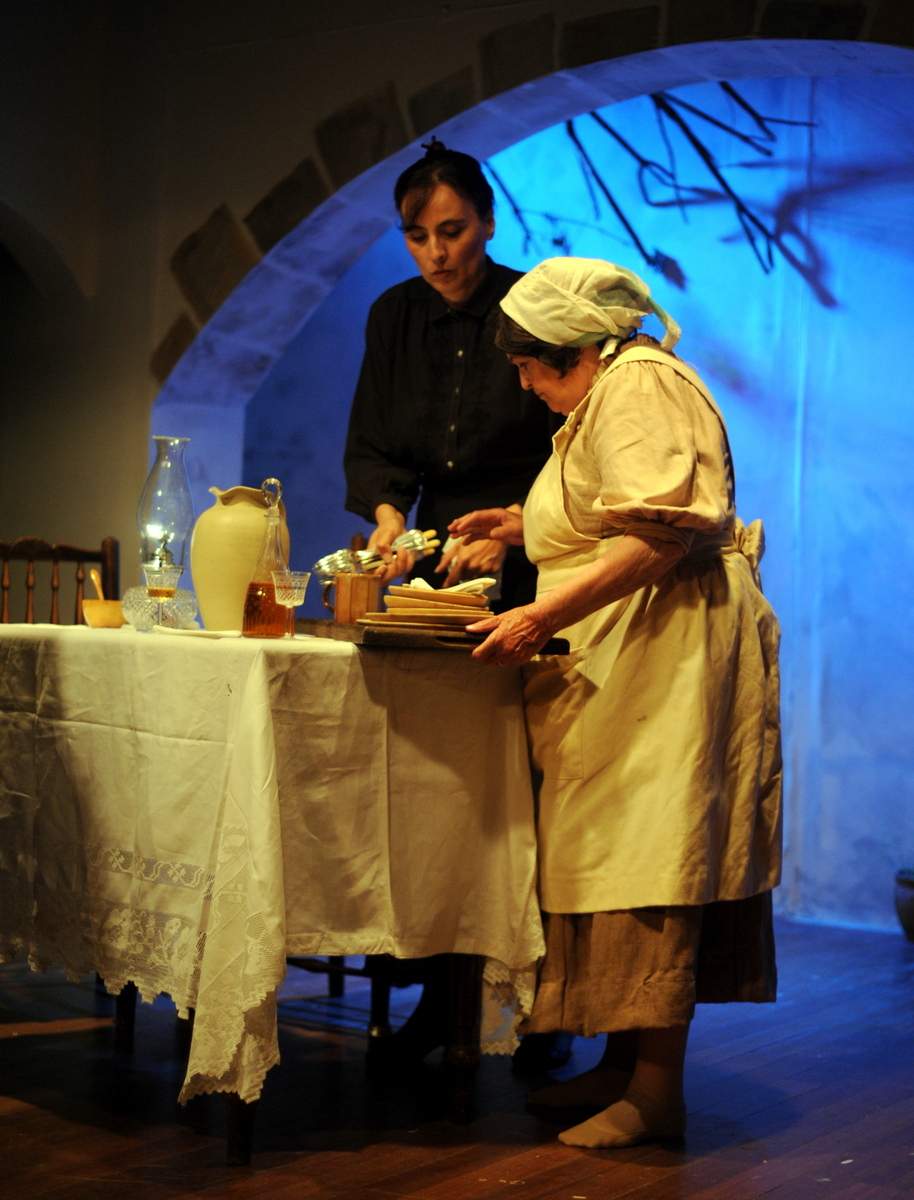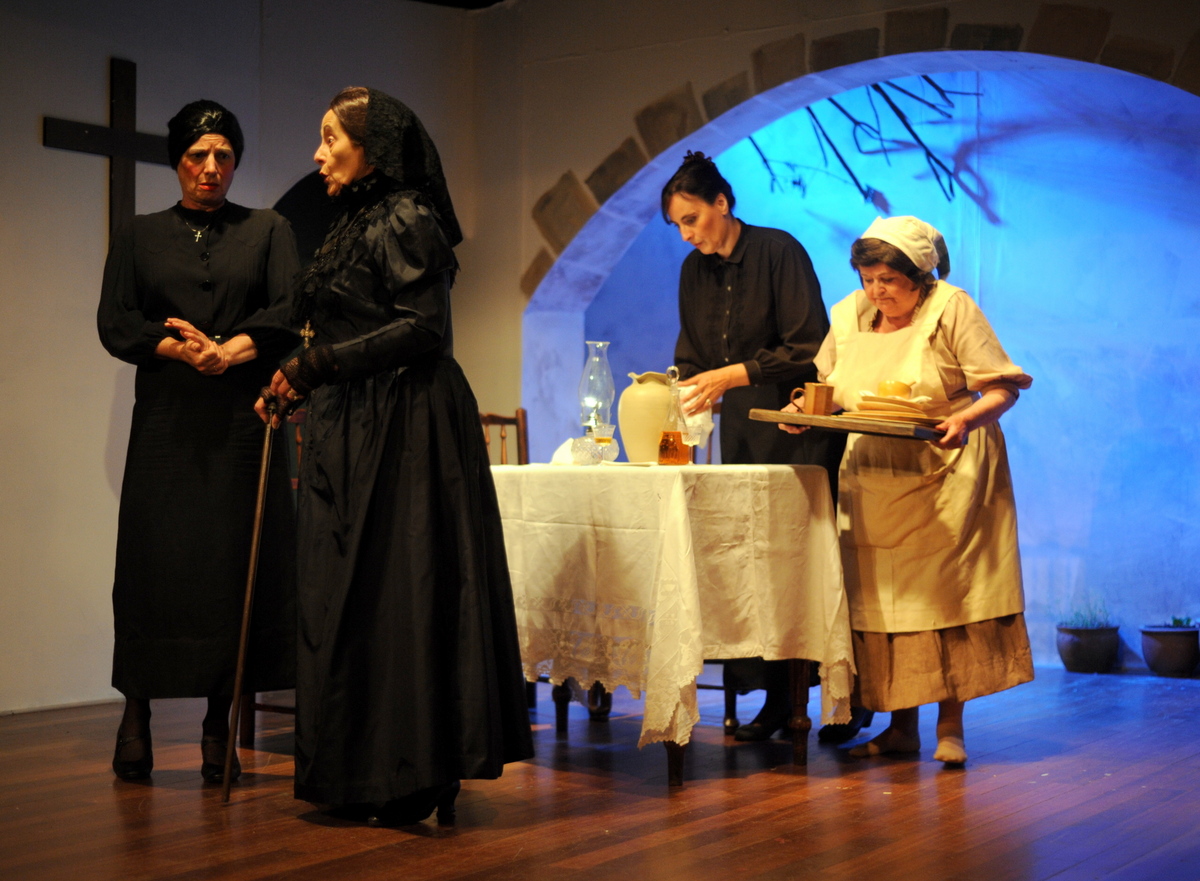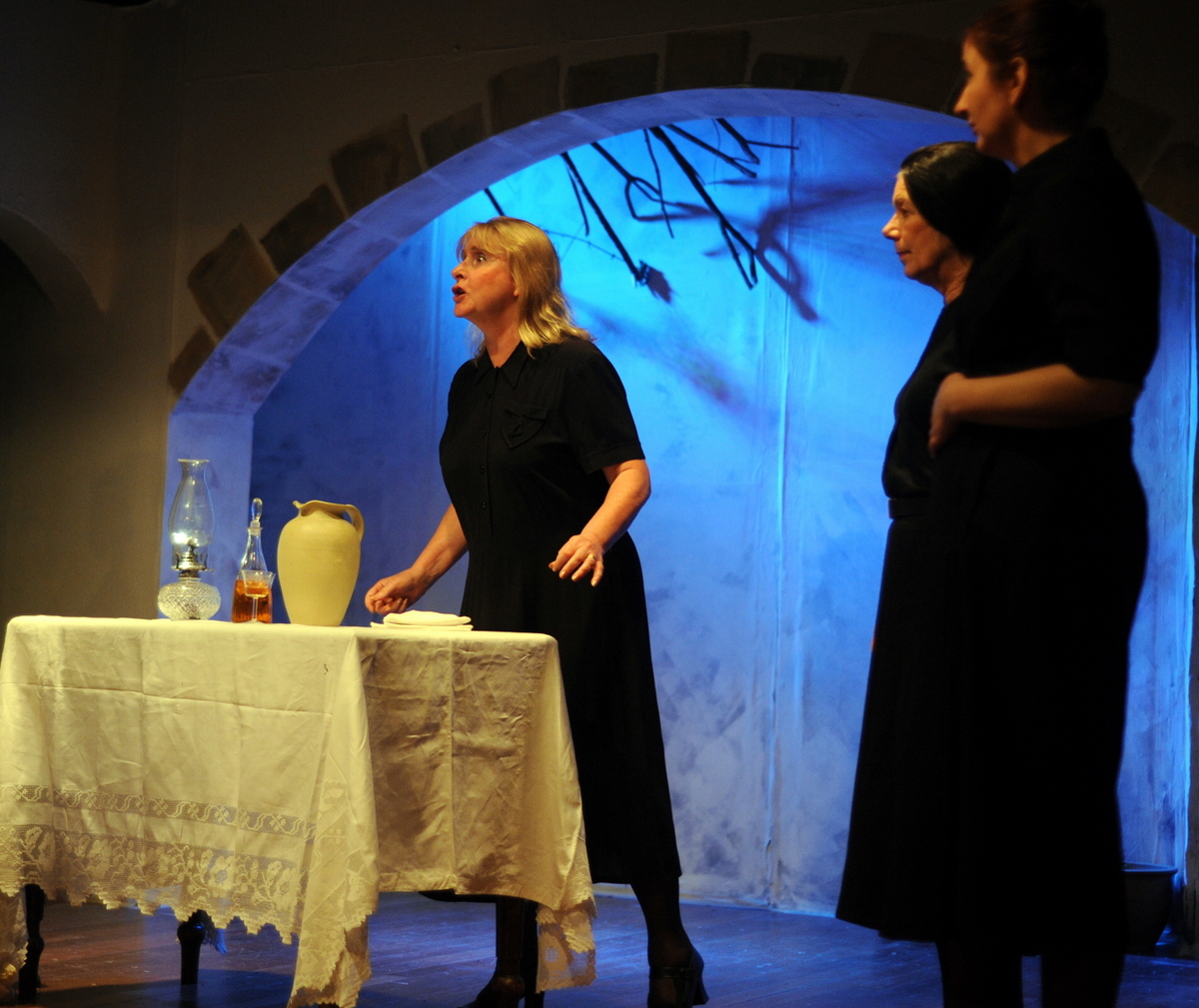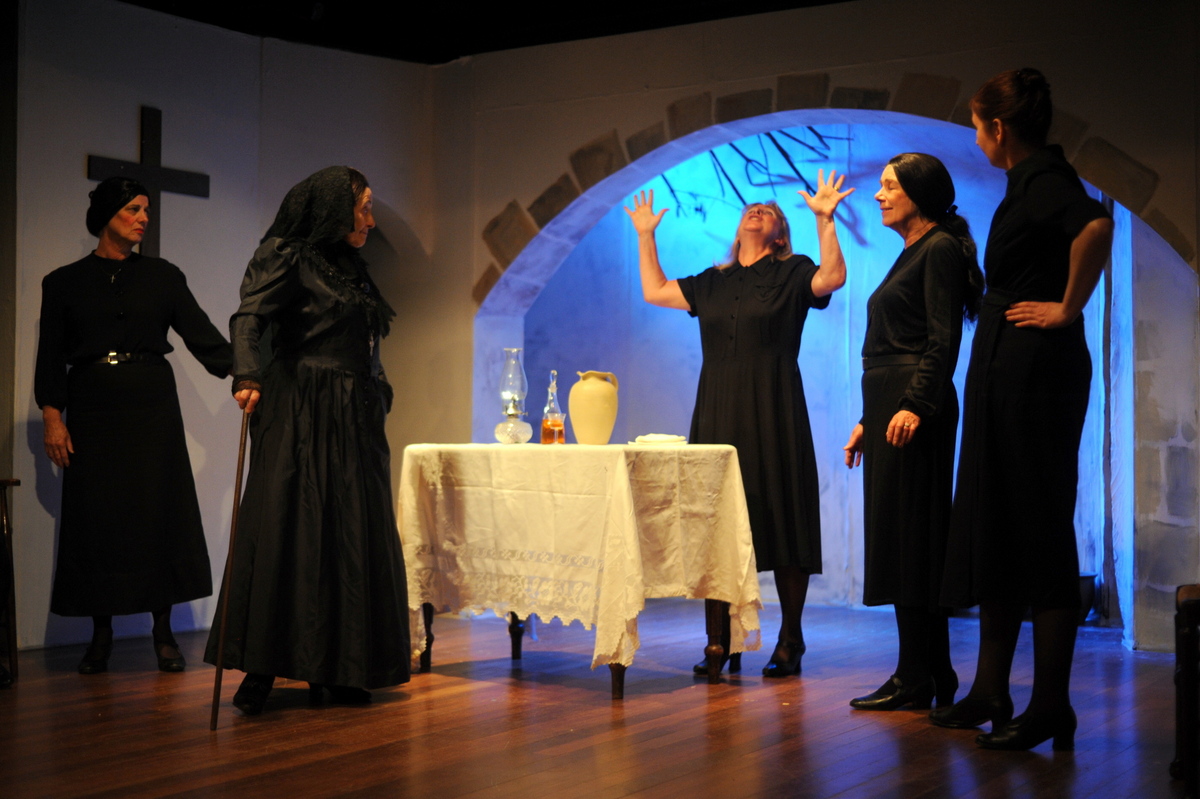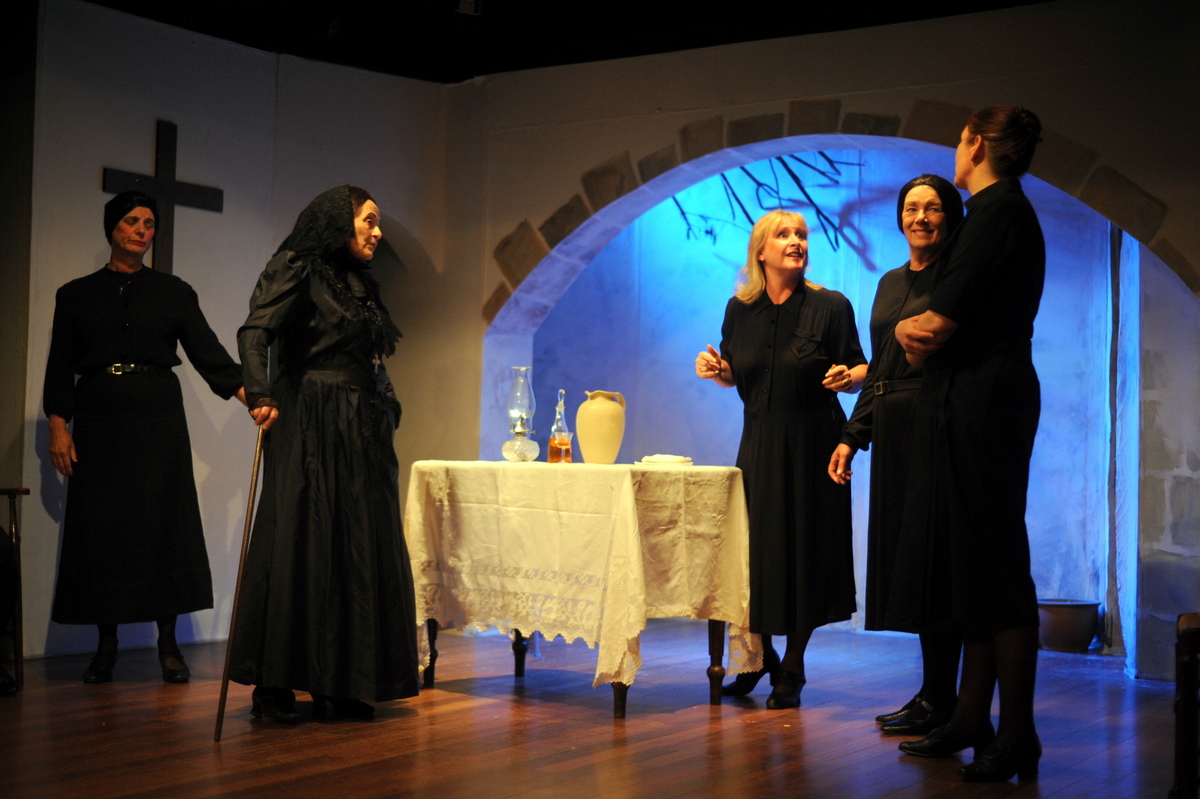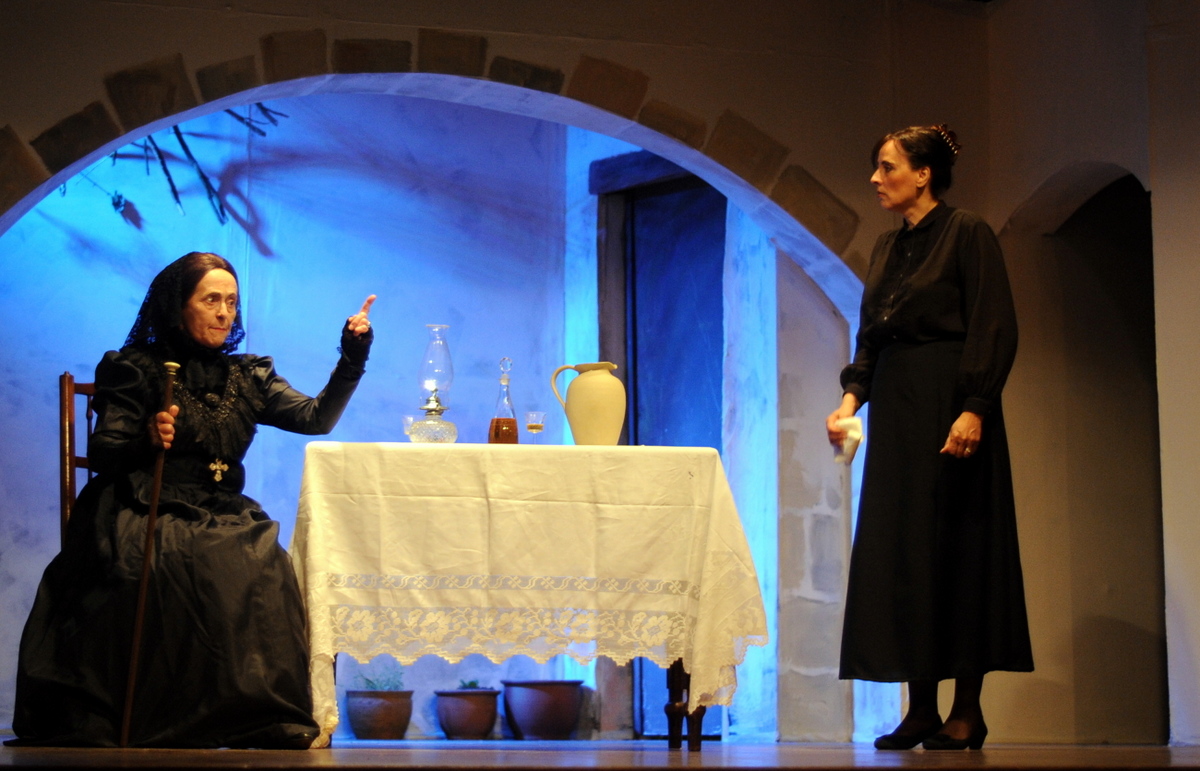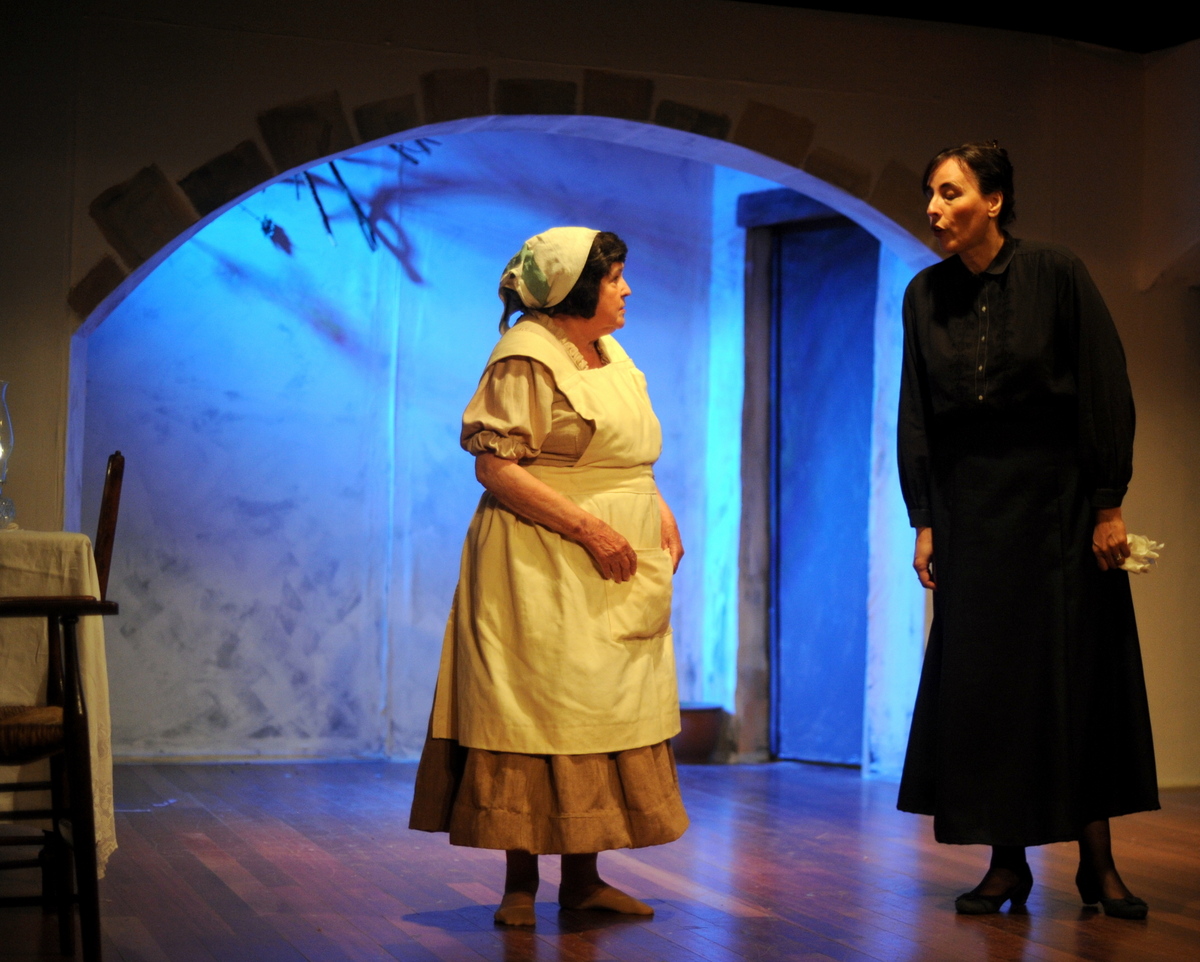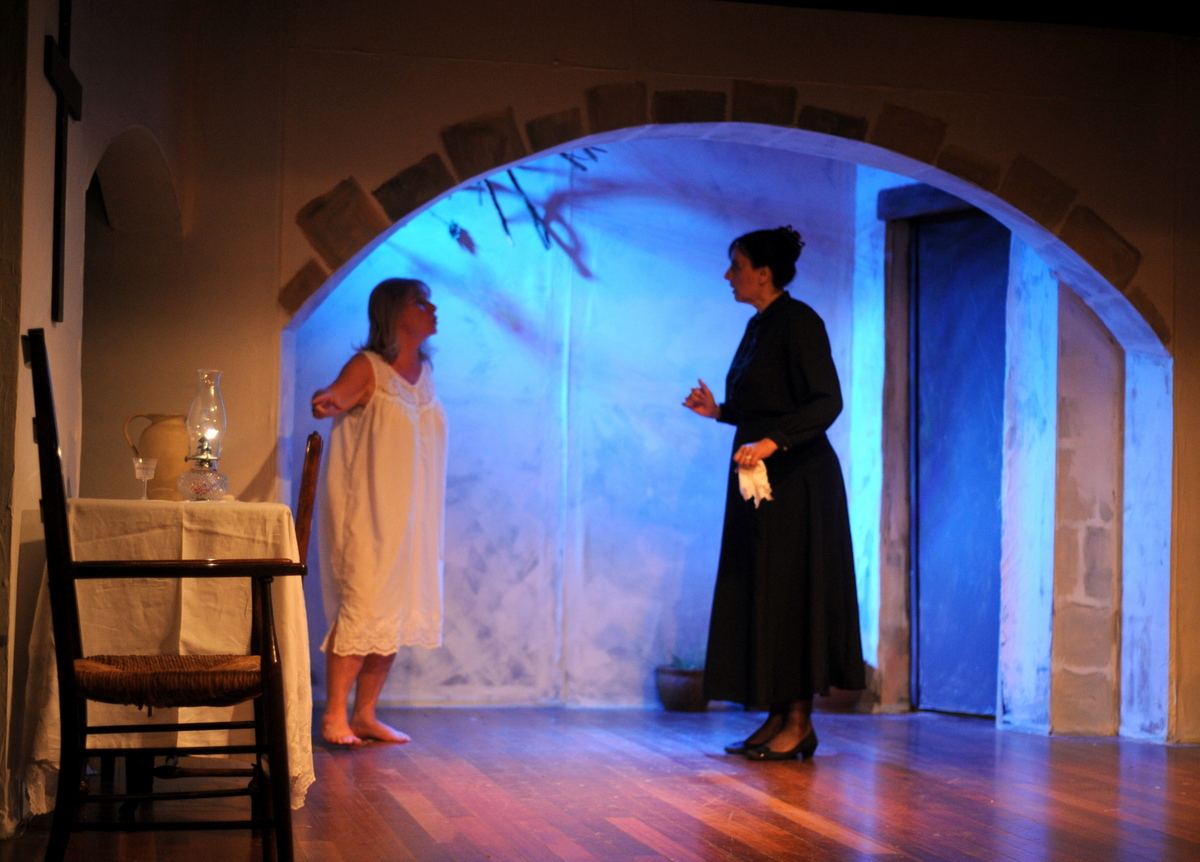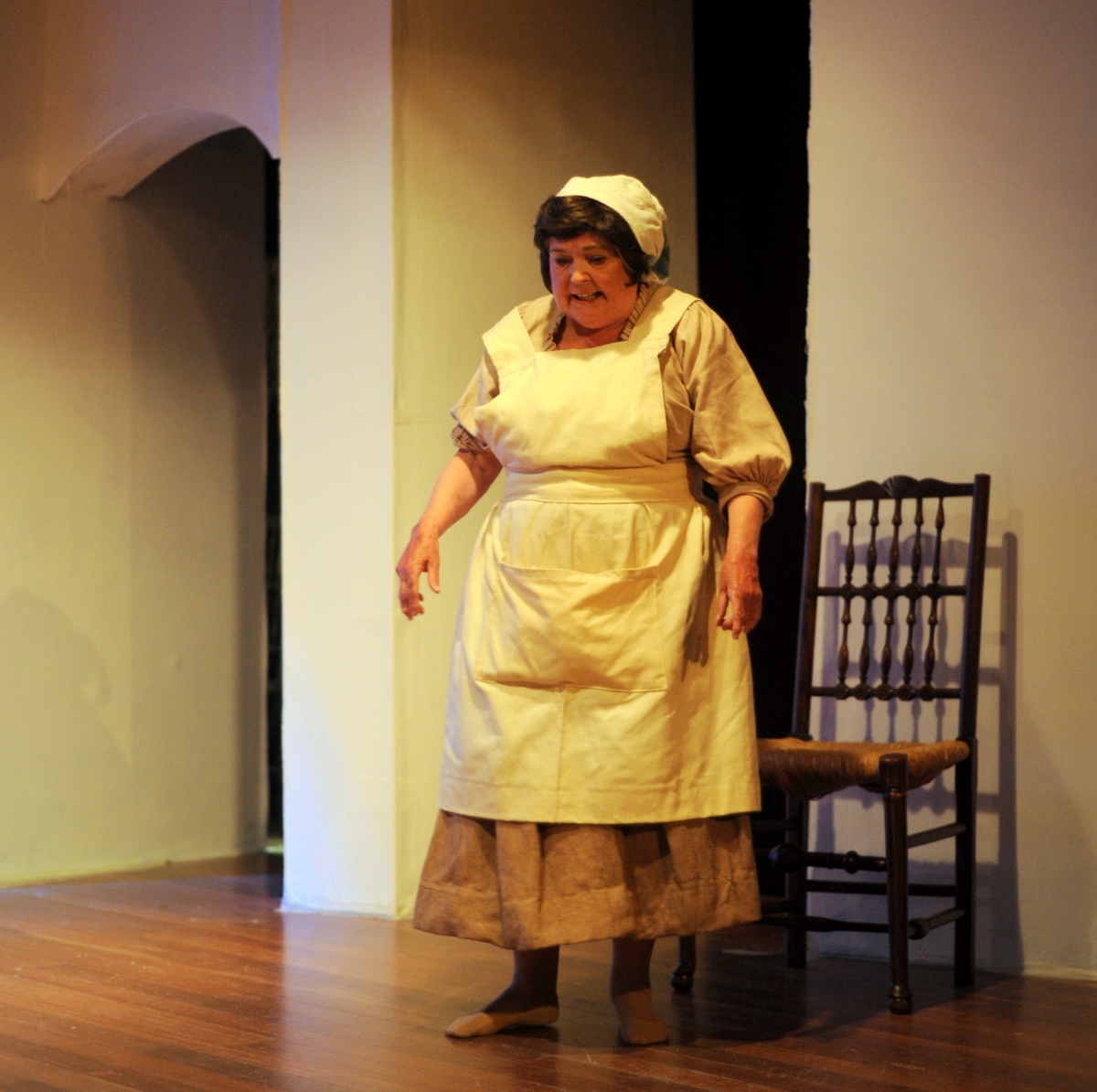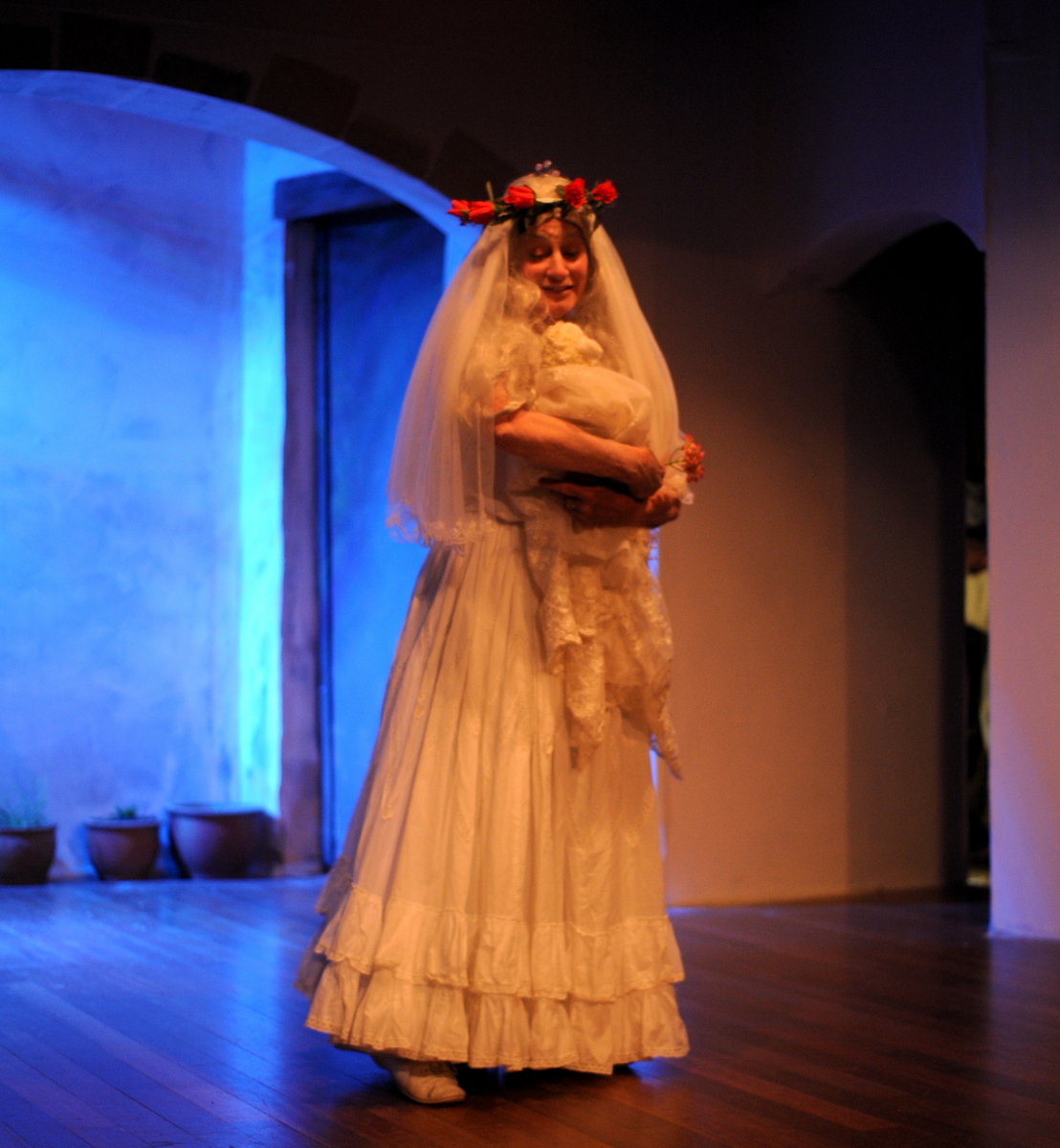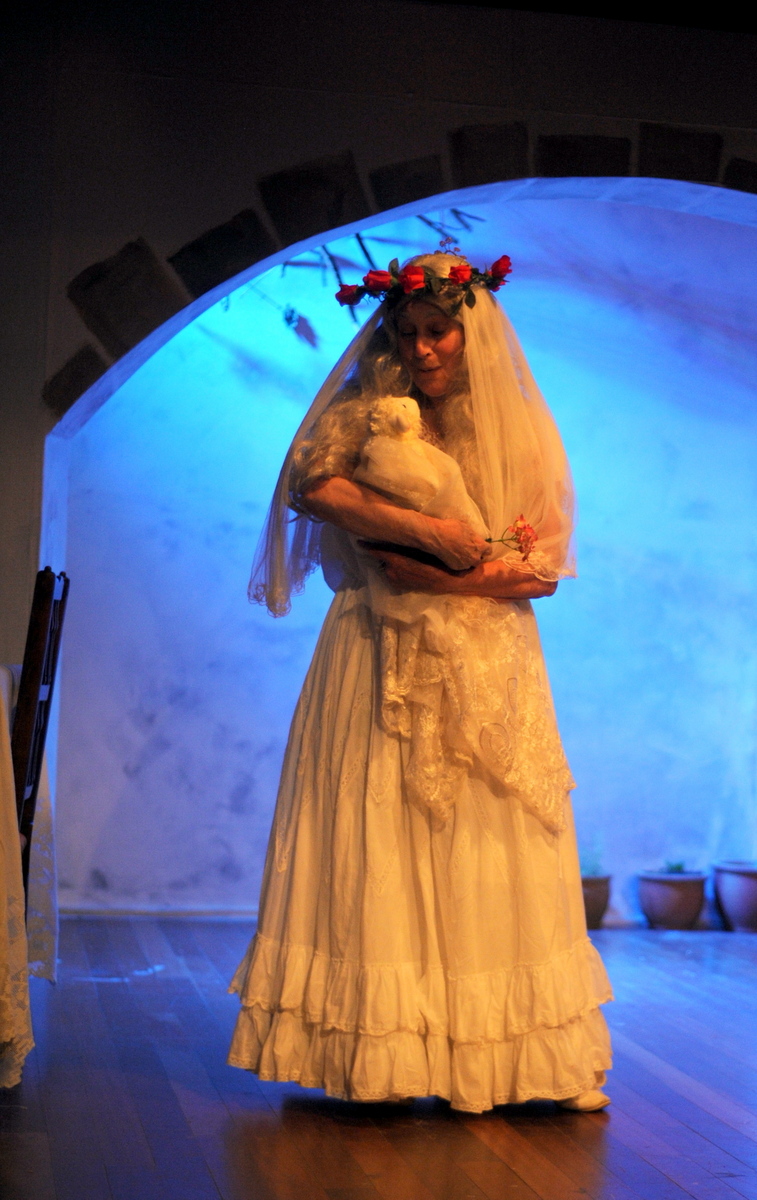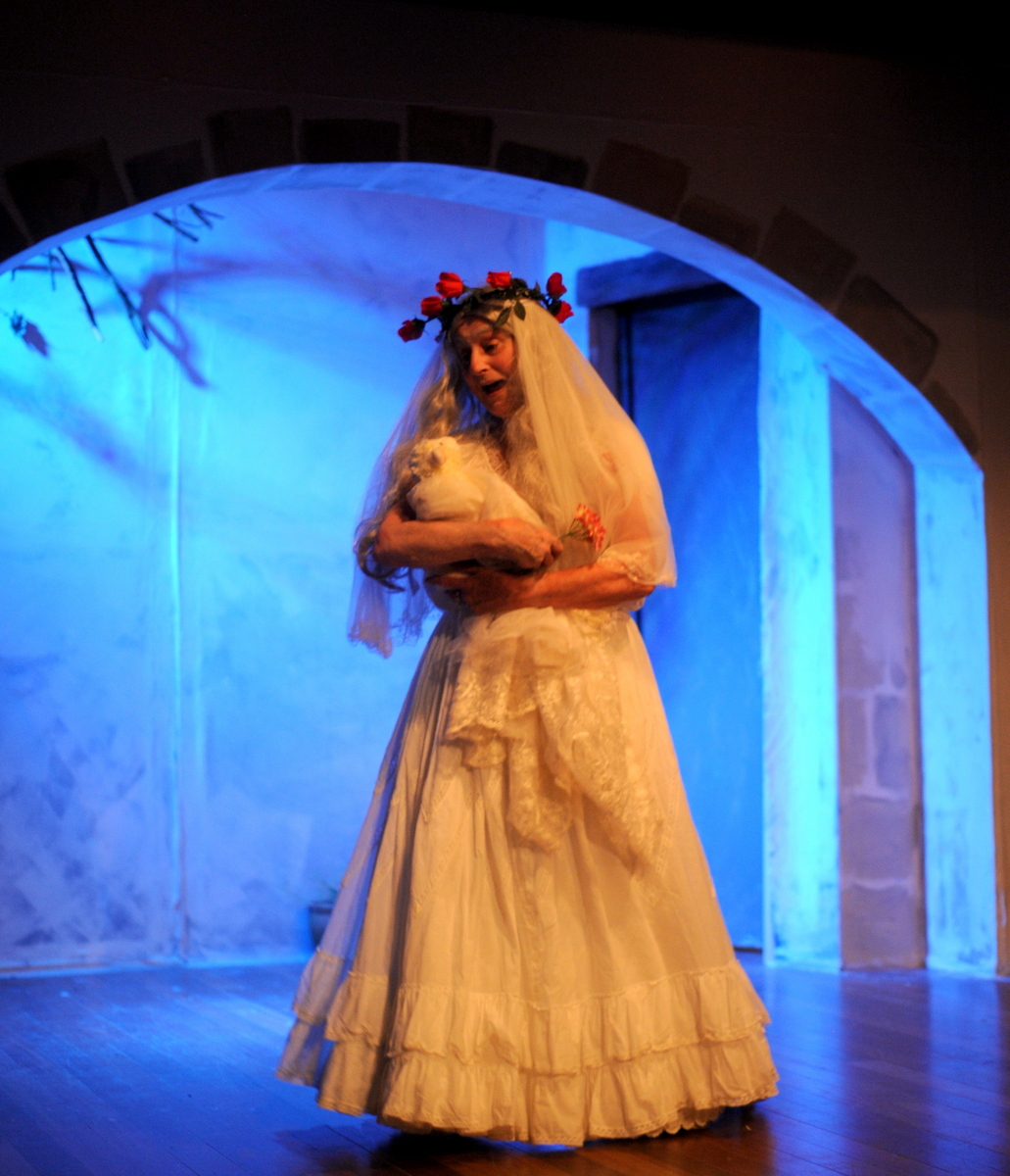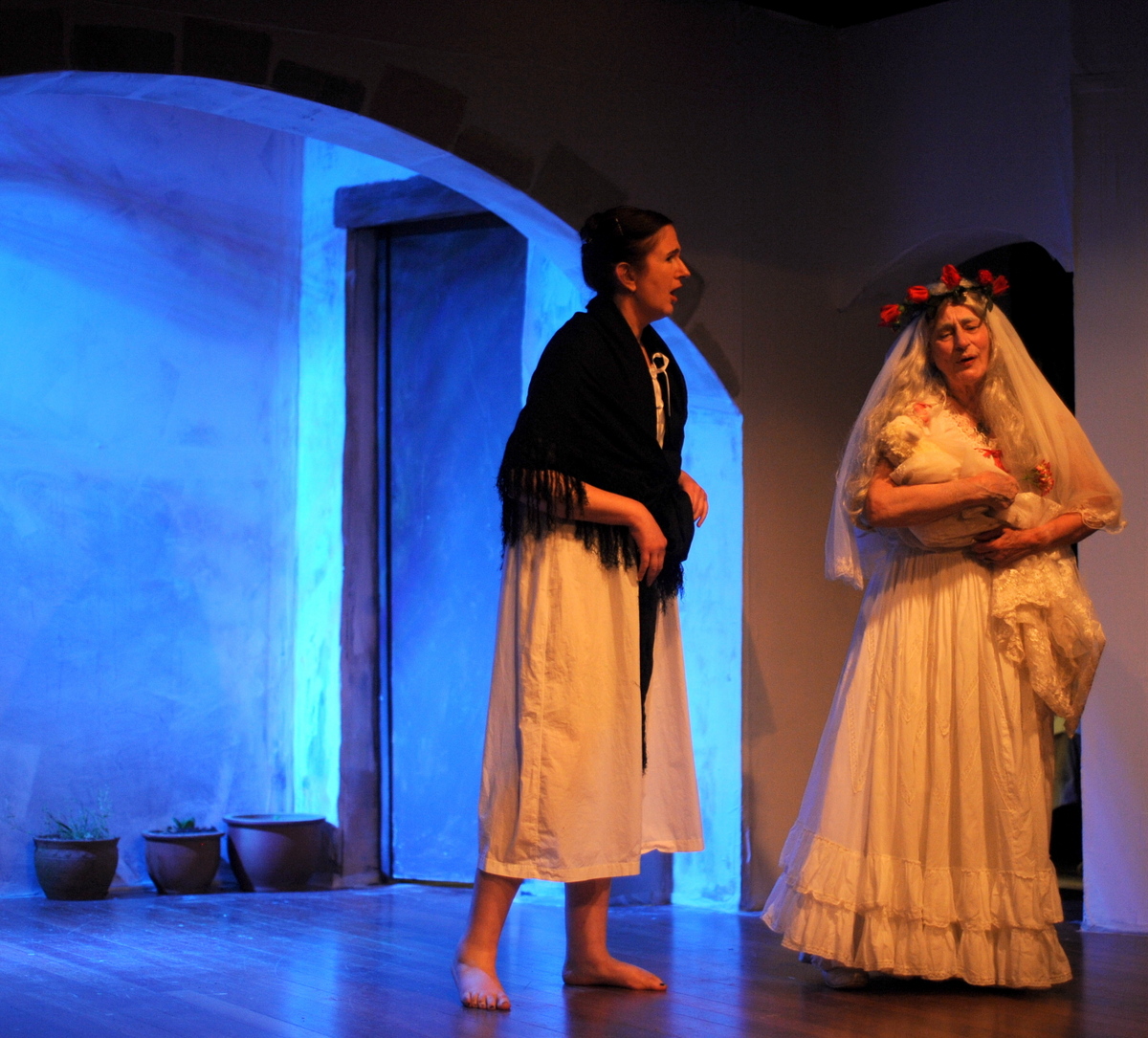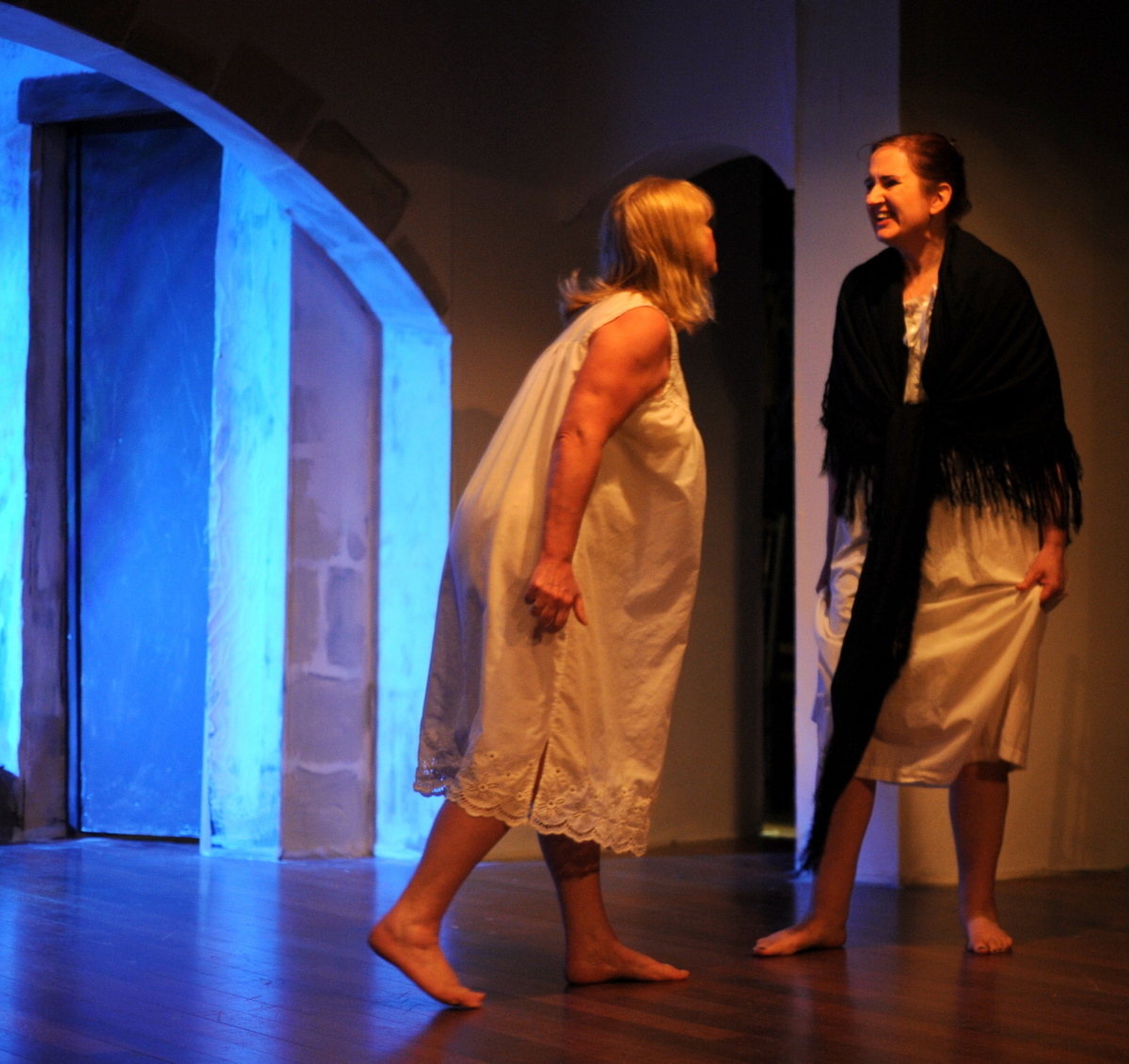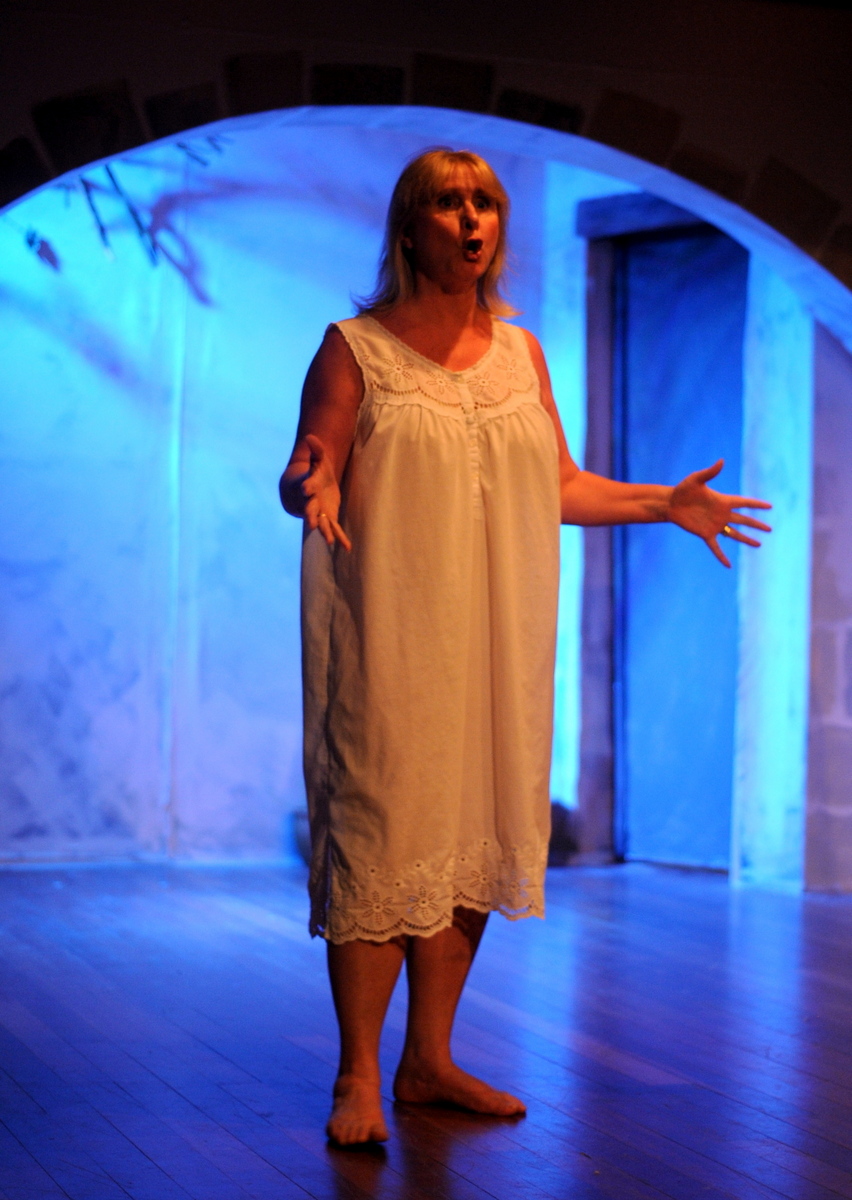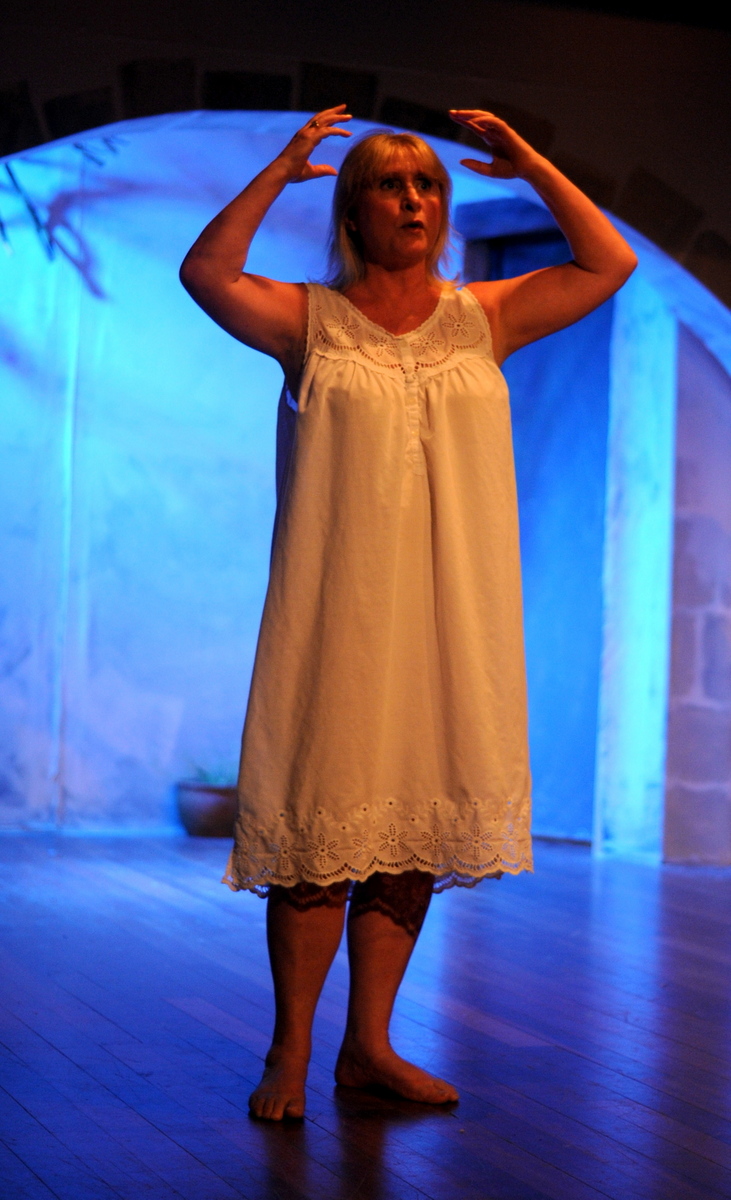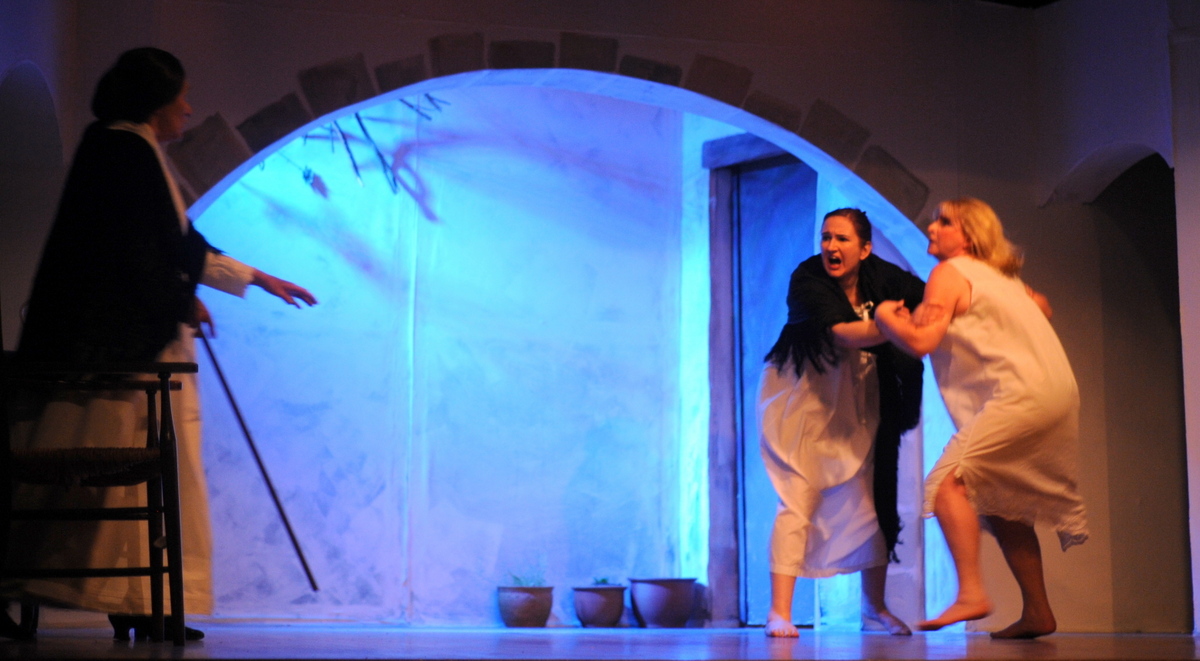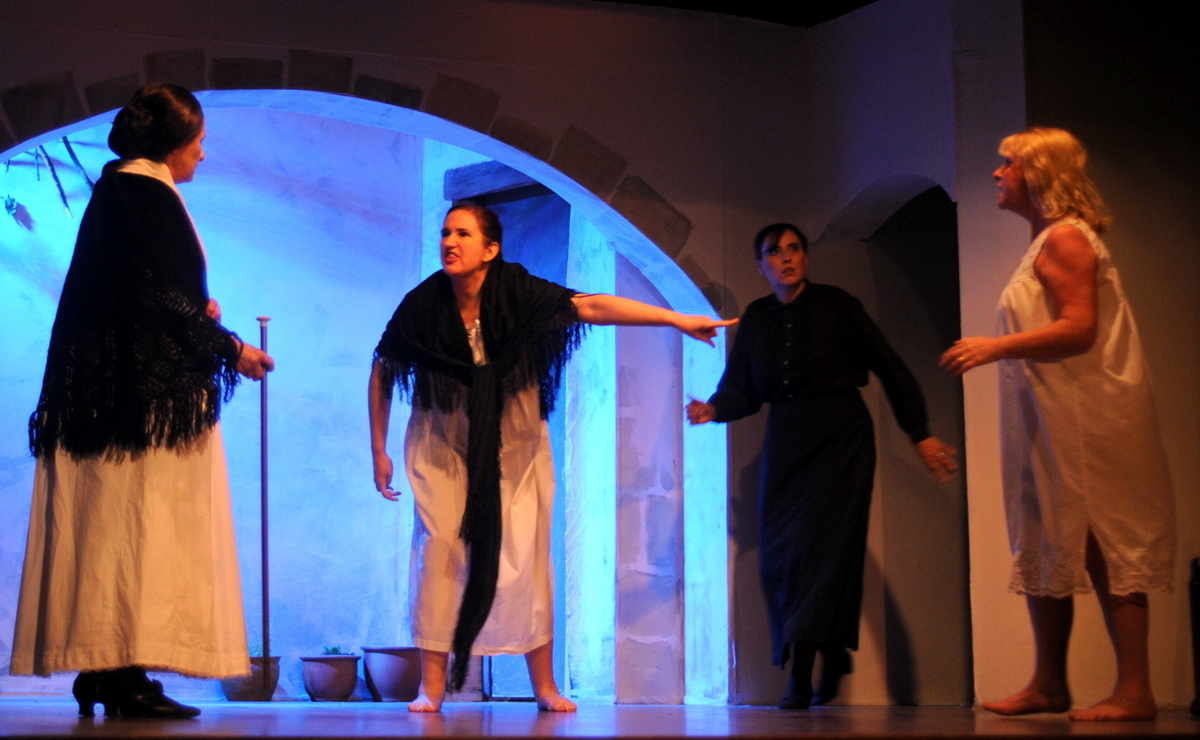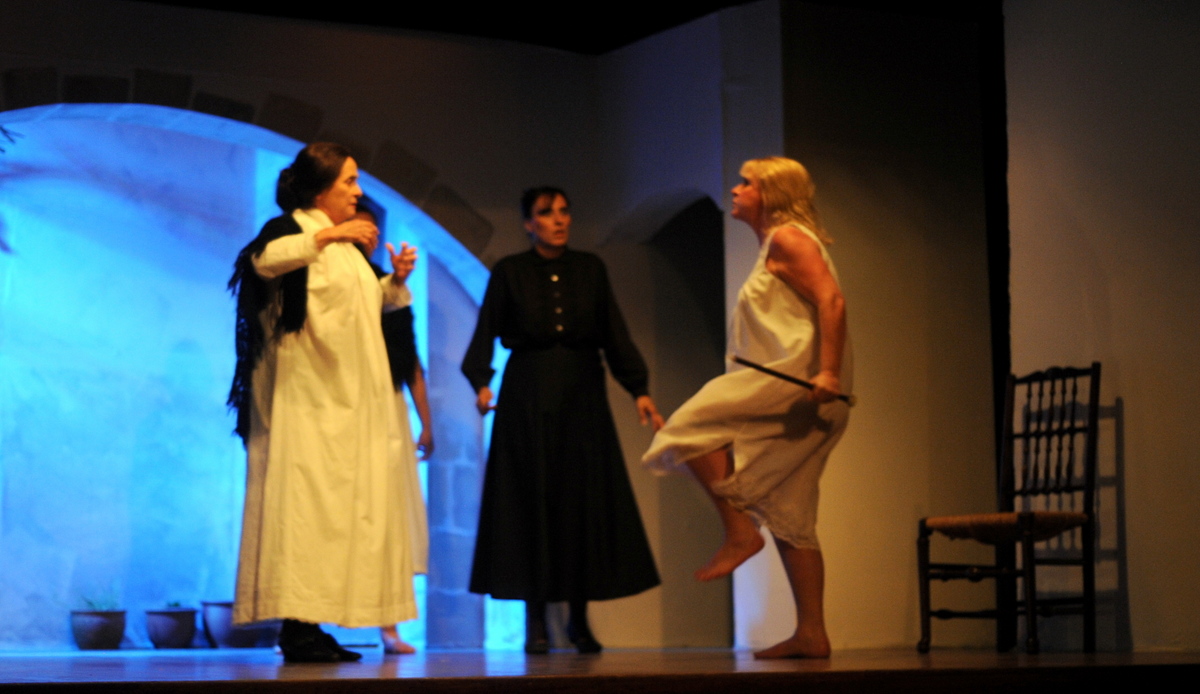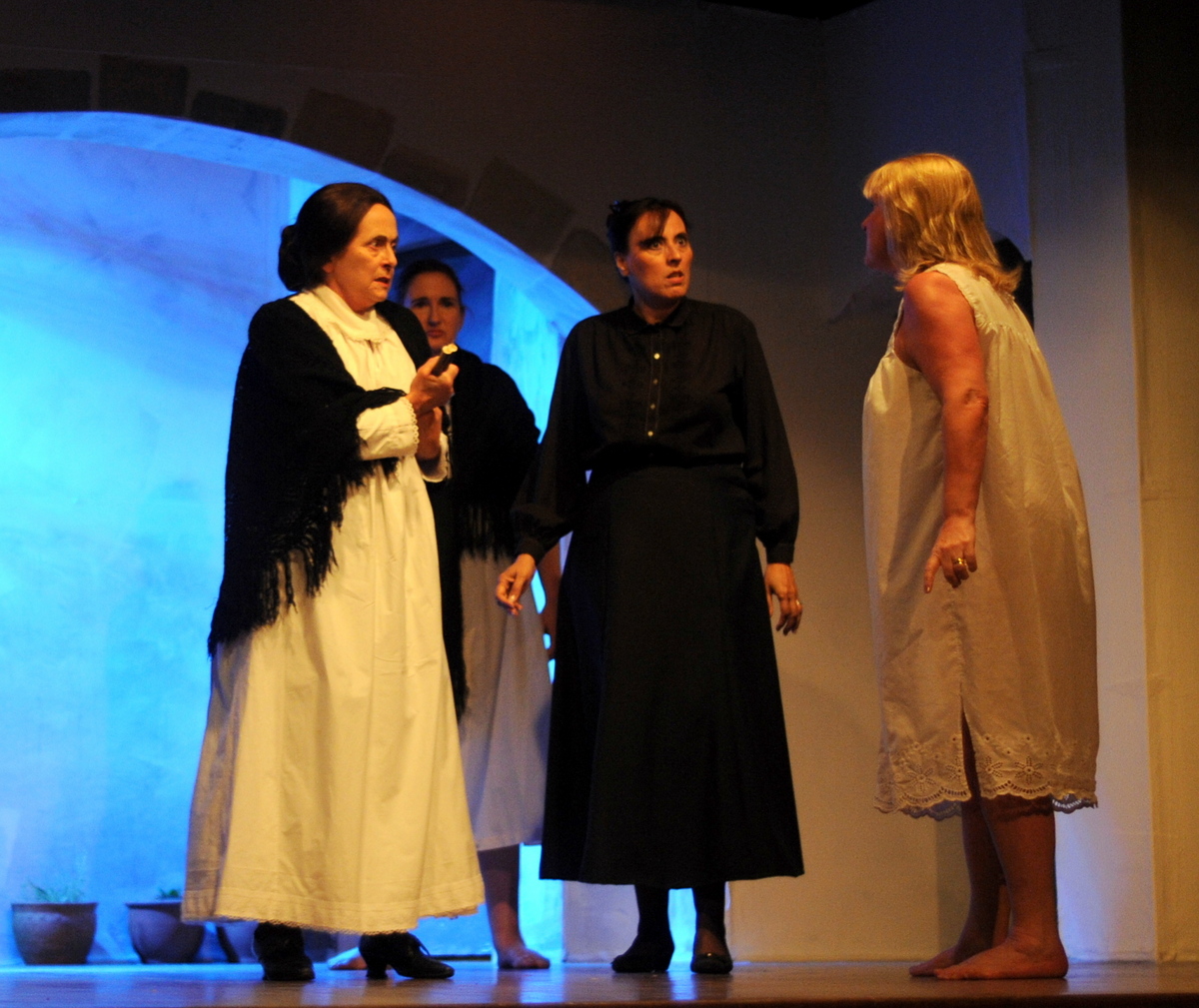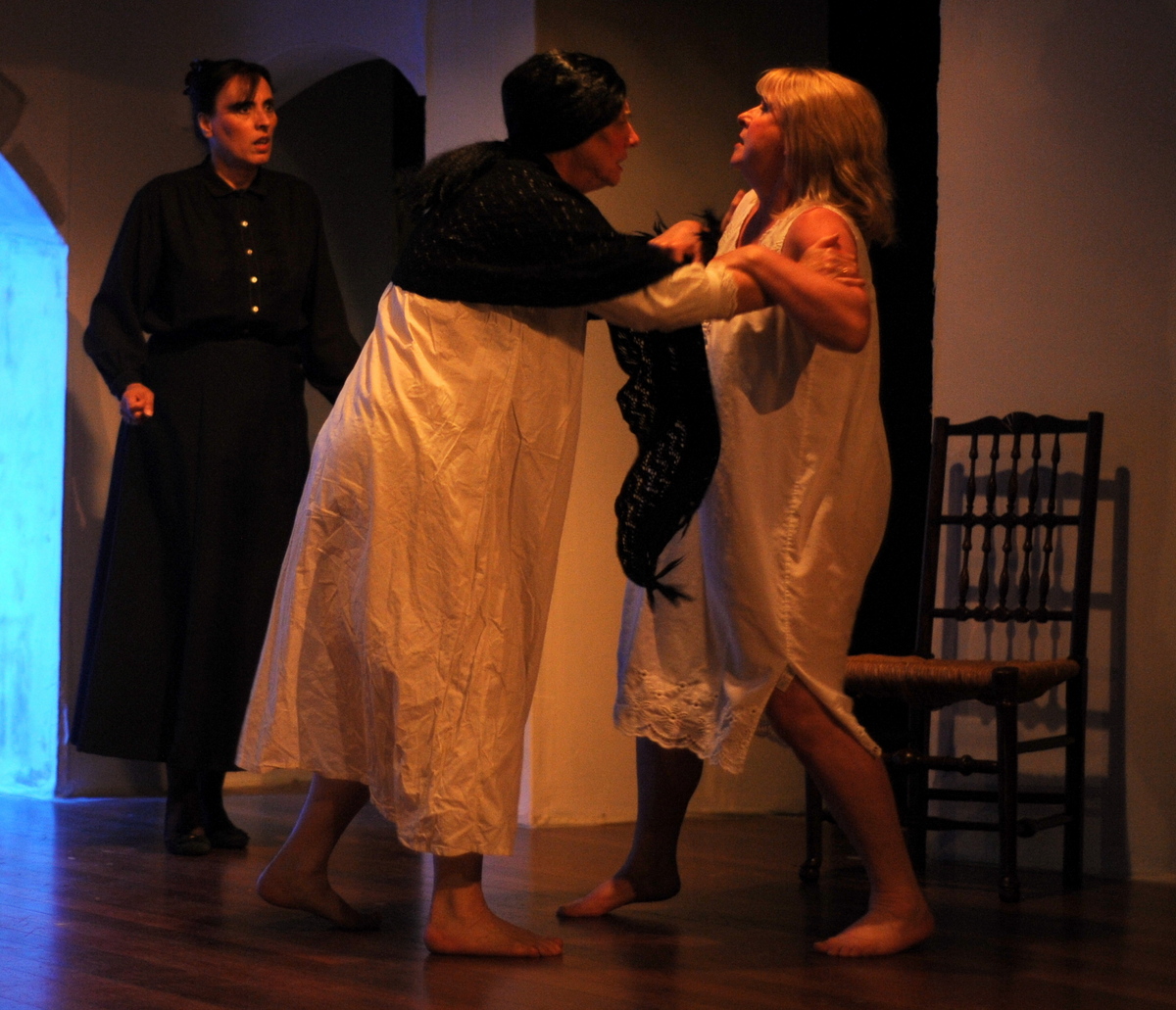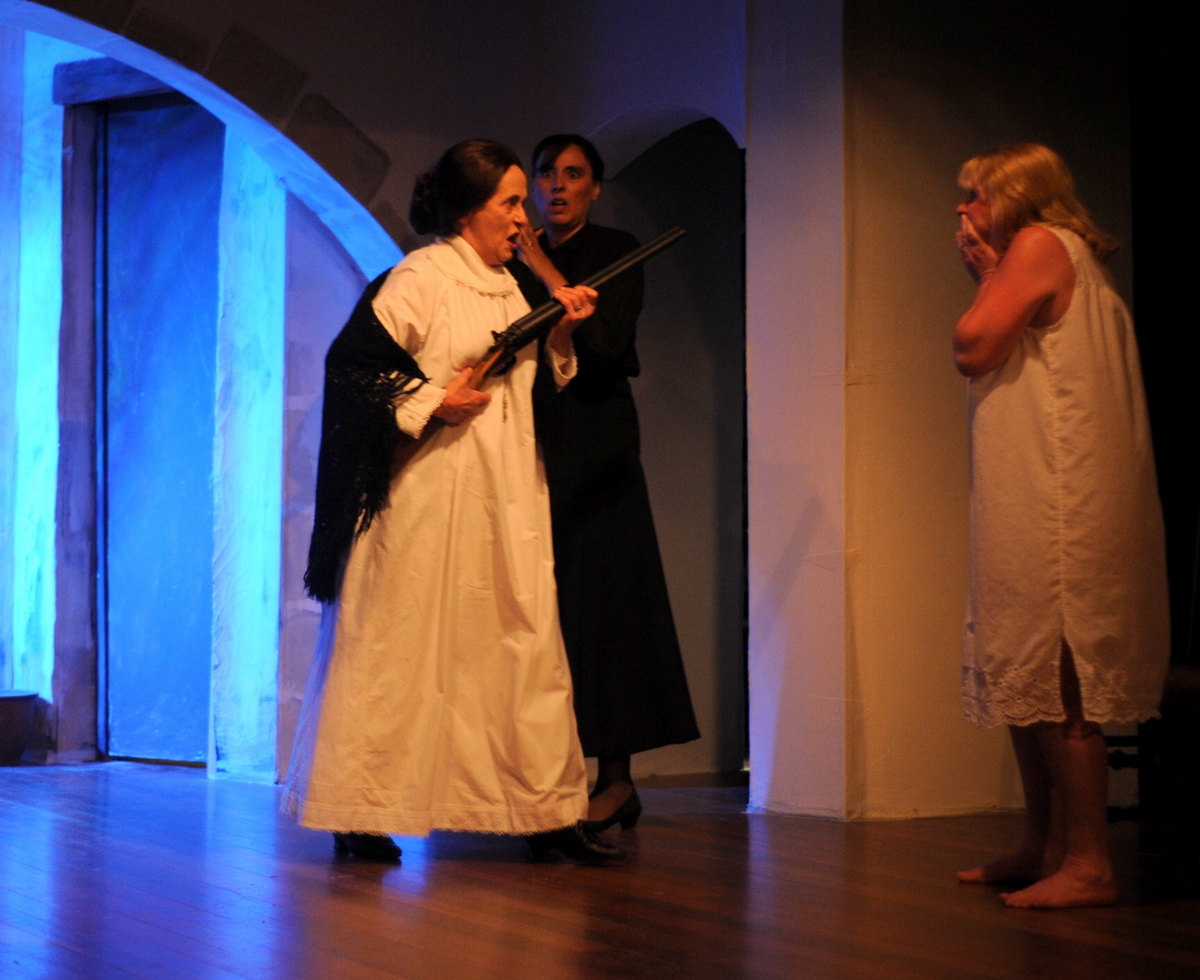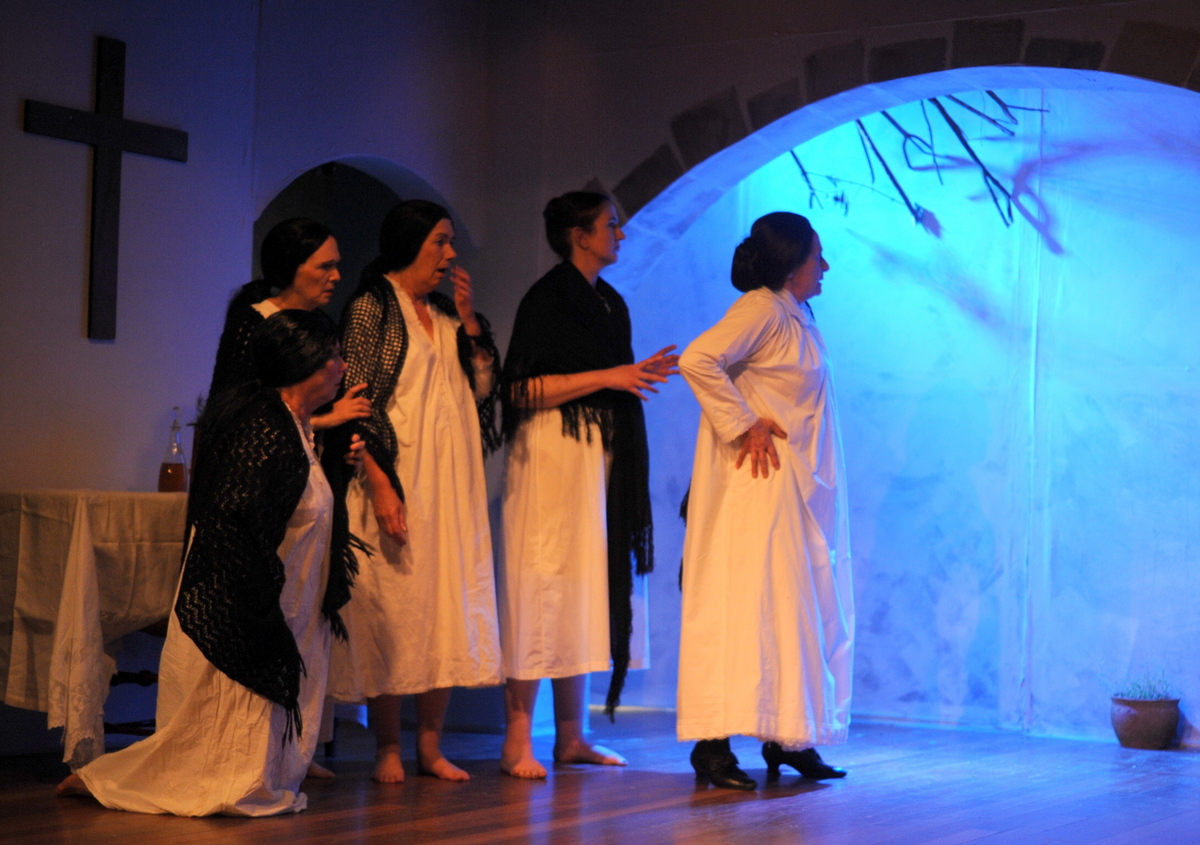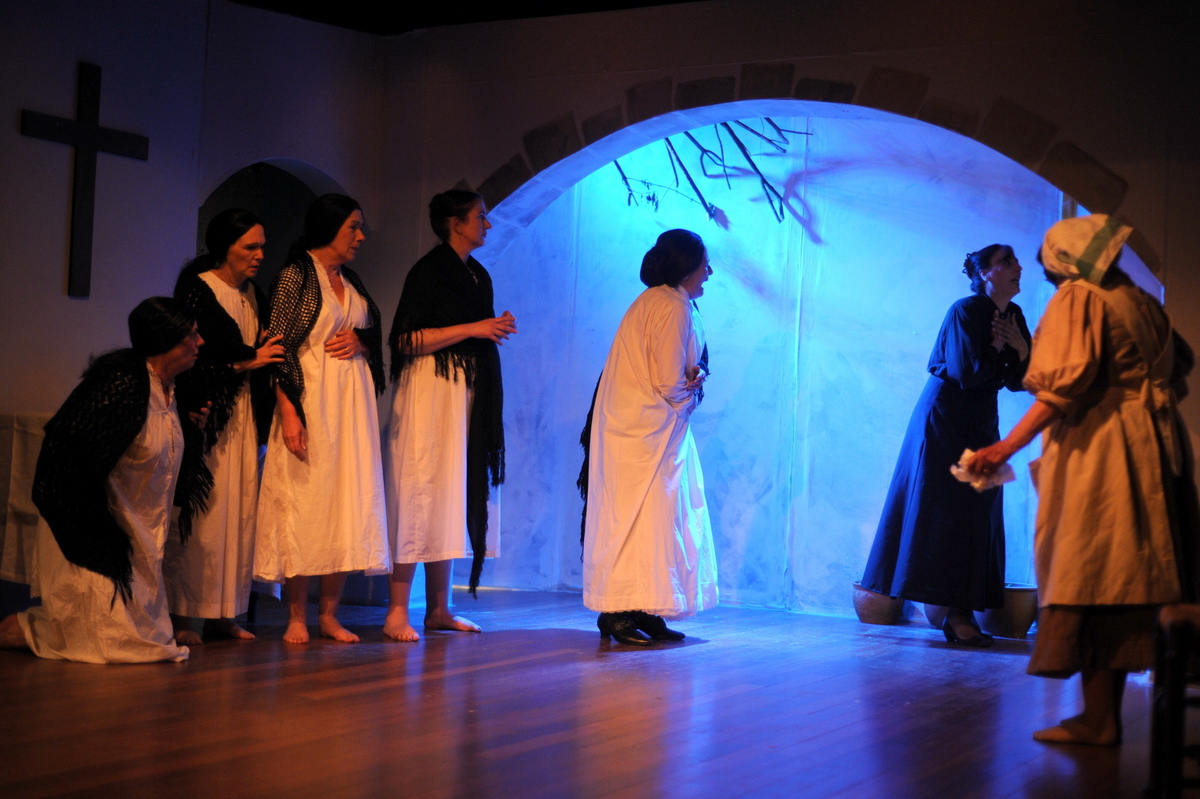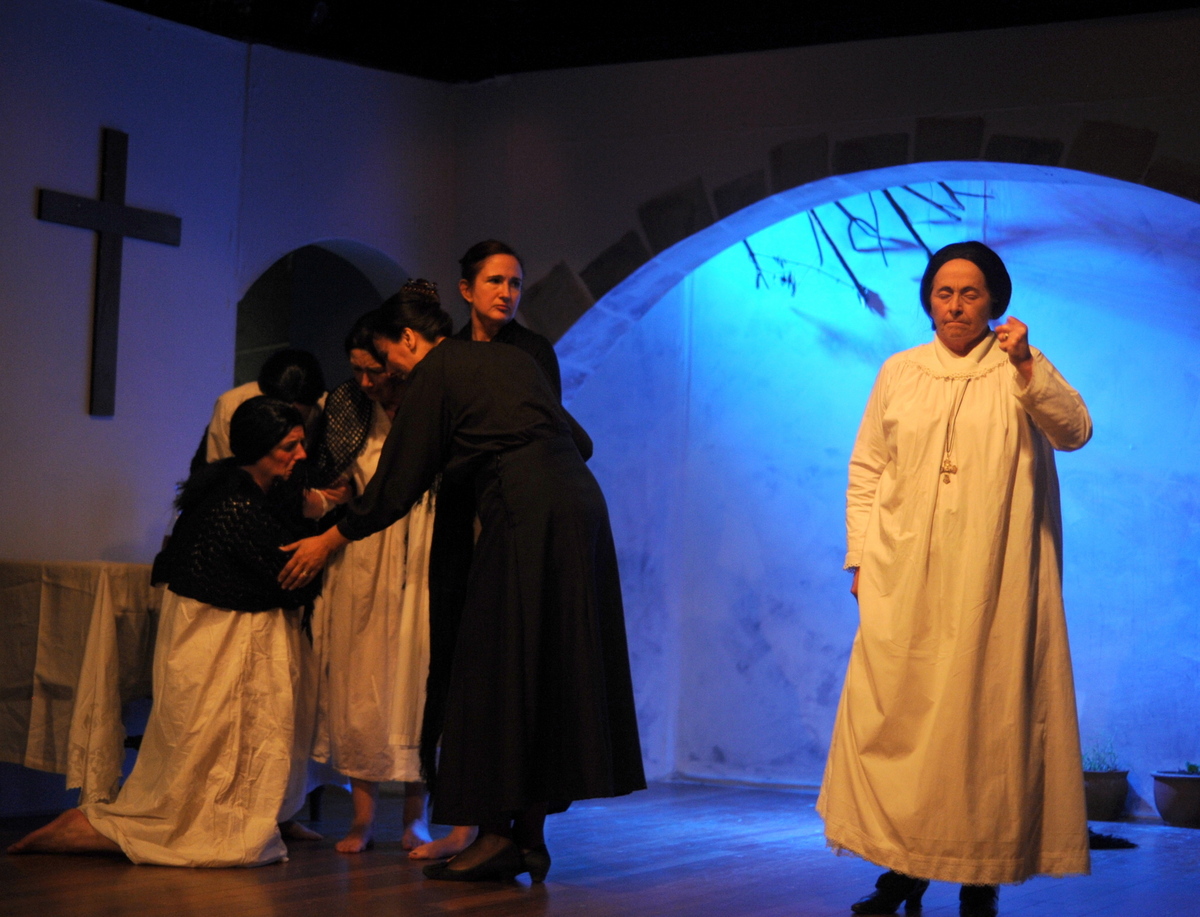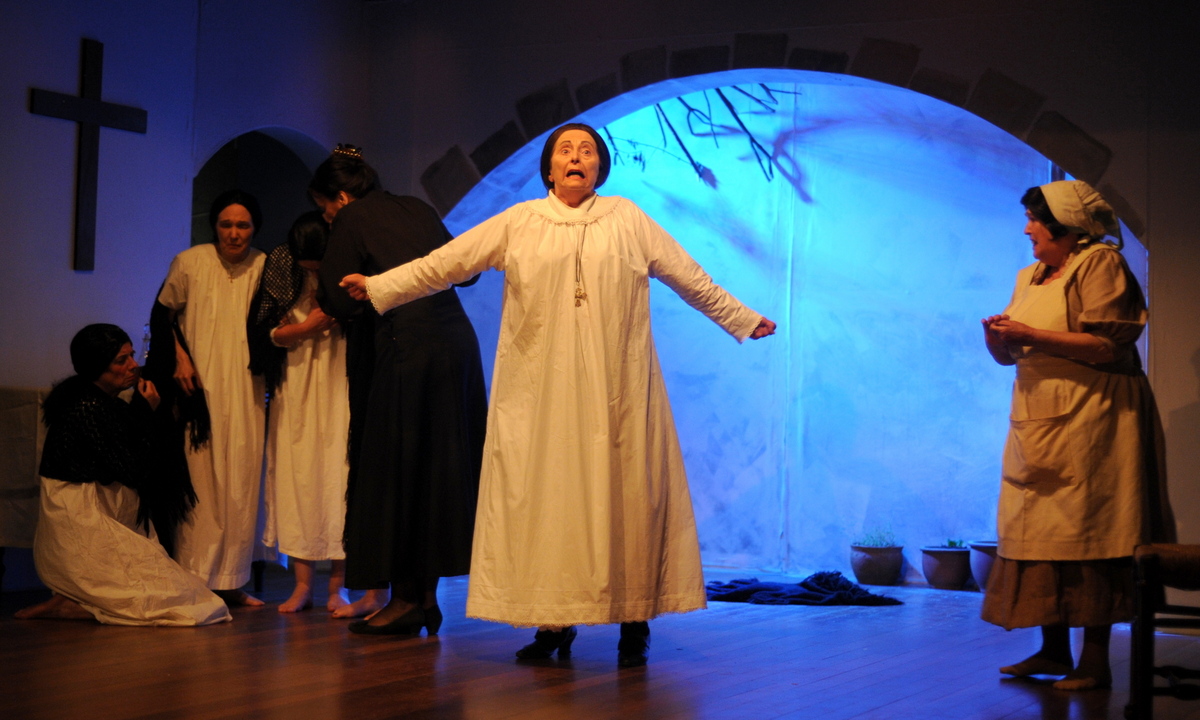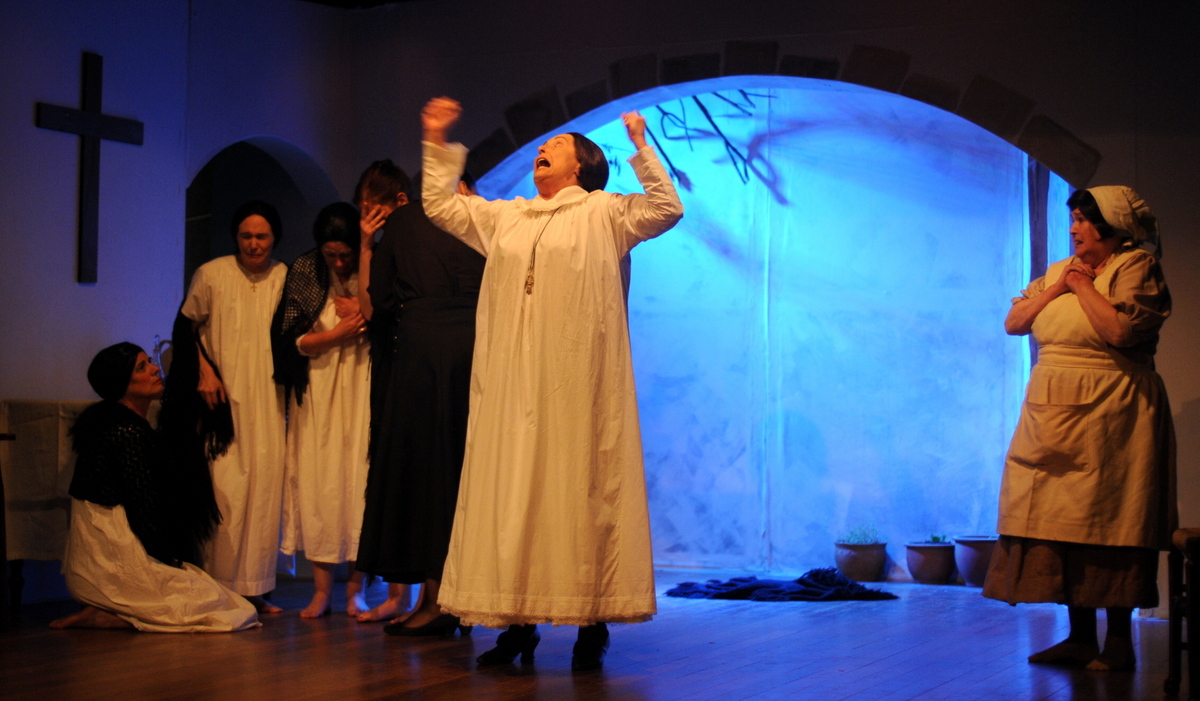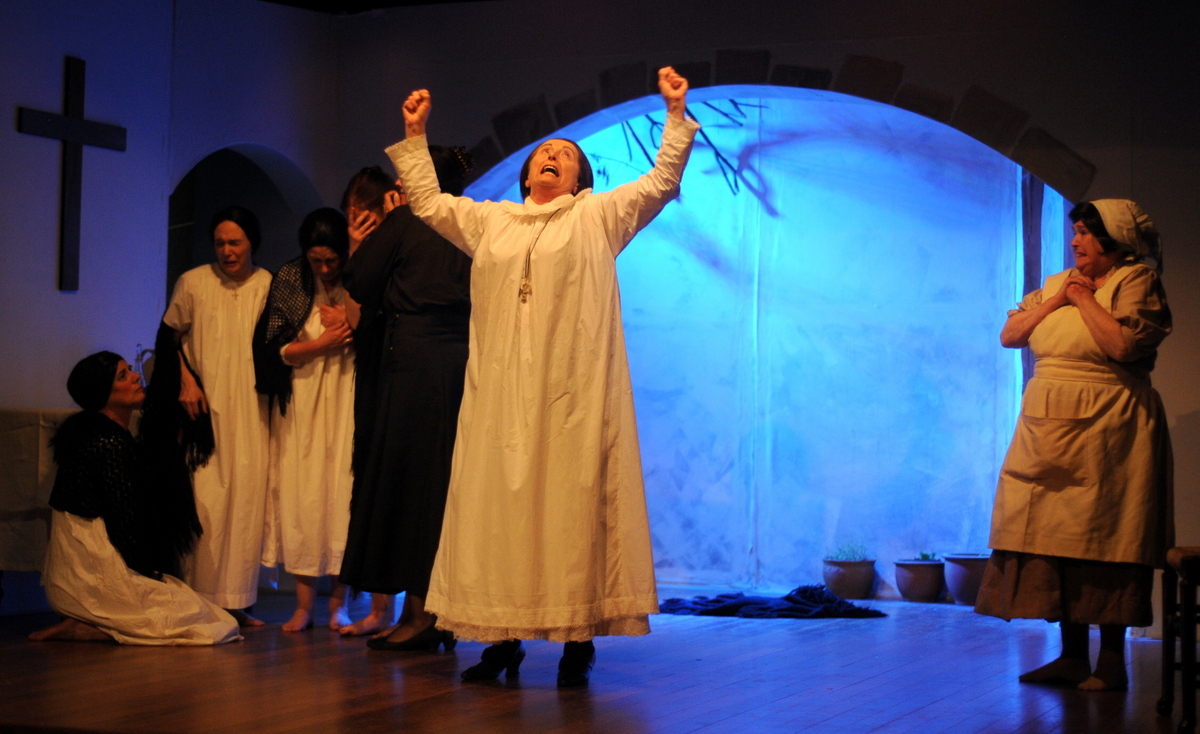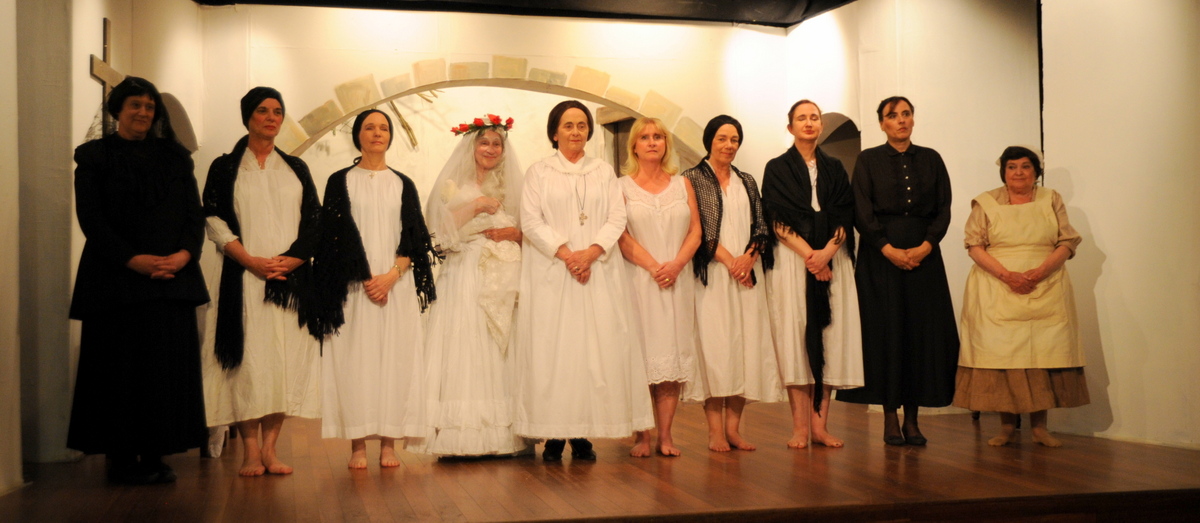2016 - The House of Barnarda Alba
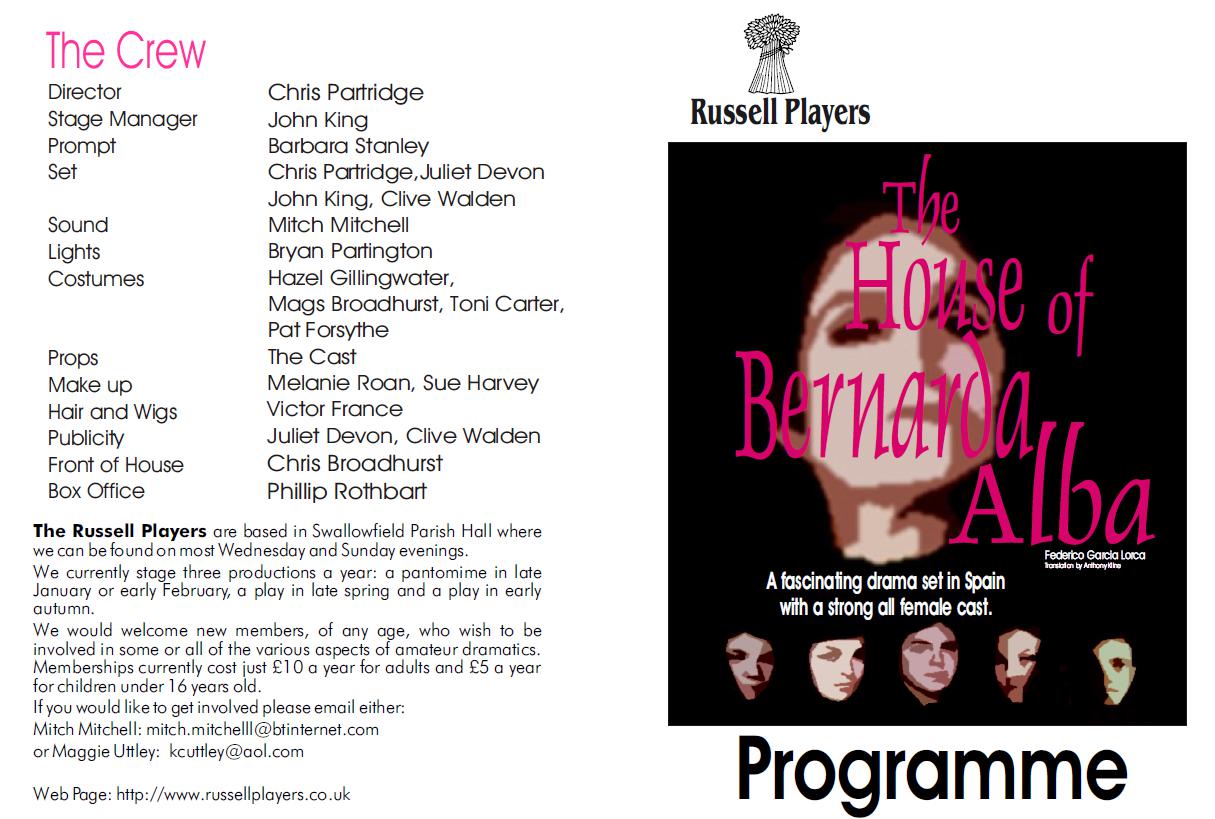
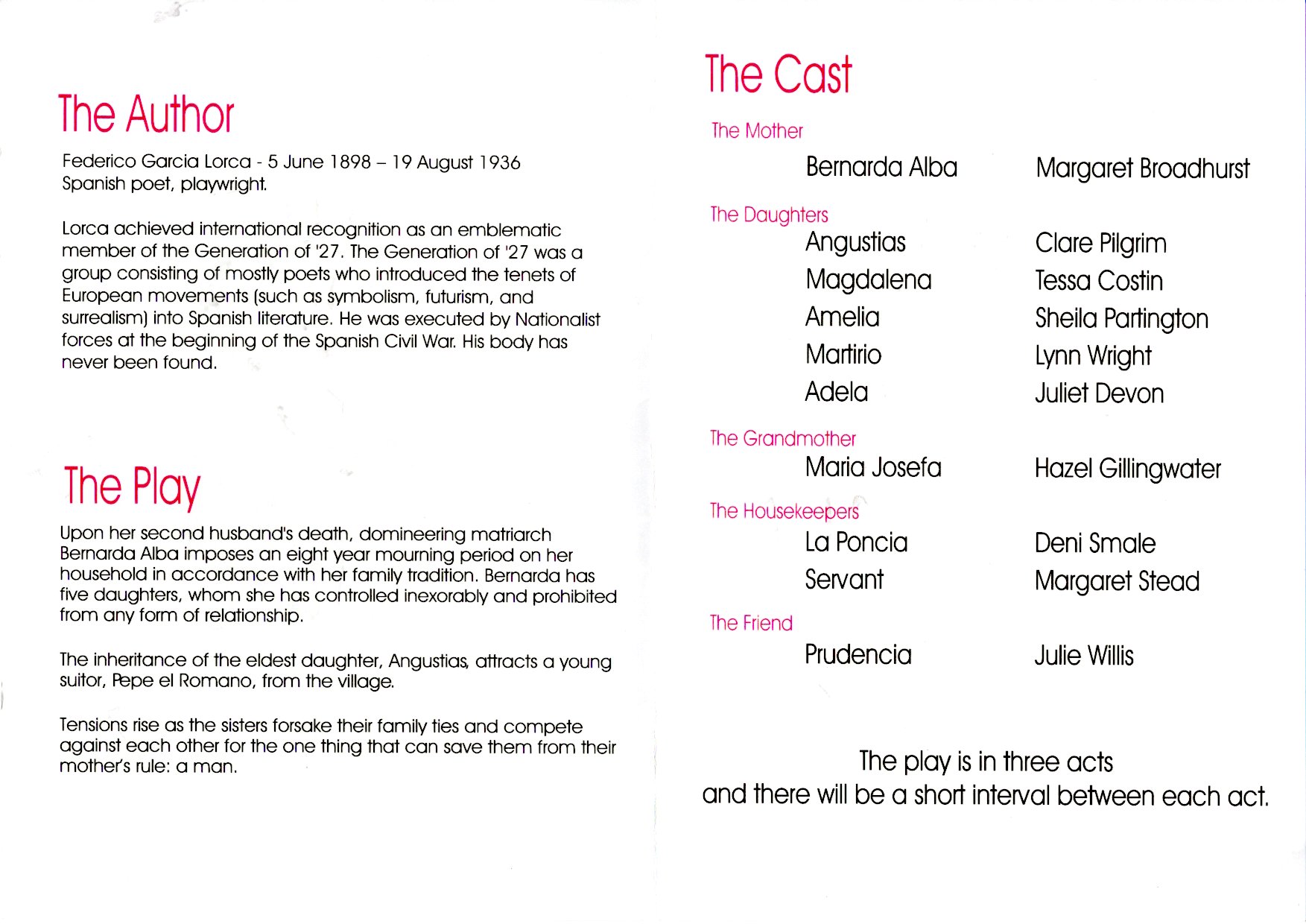
The latest production by The Russell Players saw a departure from the norm with this haunting play telling the story of a mother's domination over her household. The author, Federico Garcia Lorca, helped changed the course of Spanish literature, bringing it into the modern era. He portrayed young women in a sympathetic light at a time when the woman's place was in the home, under the thumb of the mother in law or, as in the case of this play, their mother.
Chris Partridge's evocative production brilliantly captured the simmering relationships between the mother, Bernarda,(played by Margaret Broadhurst) and her five daughters, all of whom are desperate to escape into the outside world by the only means they know-through marriage.Tensions rise as tempers fray and frustration mounts: Bernarda forbids any activity which infringes the eight year period of mourning for her dead husband. Above all, appearances must be kept up at any cost, even when tragedy strikes the family once again. The closely held Spanish belief in not giving cause for gossip ('el que diran' -what will the neighbours say?) means that the four walls of the house close in even more tightly around the girls.
Margaret Broadhurst gave a tour de force performance as the domineering mother, showing an excellent range of tone and emotions and providing the pivot around which her five daughters revolved. The characterisations of all the daughters were very well portrayed: the anguished Augustias(Clare Pilgrim), Magdalena and Amelia(Tessa Costin and Sheila Partington),both fearful but keen to keep the peace, Martirio (Lynn Wright), the tortured, rebellious sister, and the youngest, Adela (Juliet Devon), who challenges her mother and wants to be set free.Hazel Gillingwater played the mad grandmother who, in a tragic parody of the notion of marriage and motherhood, gave us some poignant moments and Deni Smale as the Housekeeper, La Poncia, captured very well the dilemma of being both the servant and confidante of Bernarda.Margaret Stead was the down to earth voice of reason falling on deaf ears and Julie Willis (Prudencia) was the suitably prying neighbour.
The excellent standard of performance from all the cast was greatly enhanced by the beautiful set, a Spanish hacienda with a courtyard, and the lighting emphasised the freedom and sunny outdoors denied to the characters within.The costumes were sombre yet elegant and appropriate for mourning. Adela's startling appearance in a green dress, suitably symbolic of youth and fertility, provided a welcome splash of colour.
Although this can be a dark play, there were several scenes of light and hope, cleverly incorporated by the director, such as the scene when the girls are sewing Angustias's trousseau; the white lace providing a foil for the brewing tension.
The sound effects were absolutely on cue and the crowd scene (which took place off stage) was terrifyingly convincing. I would have liked a rather more evocative style of Spanish music to set the scene.
The props were minimal and perfectly chosen and the makeup outstanding, emphasising the all-seeing eyes of Bernarda, who in fact is unable to foresee the tragic consequences that her tyranny will wreak.
Claire Hamilton
